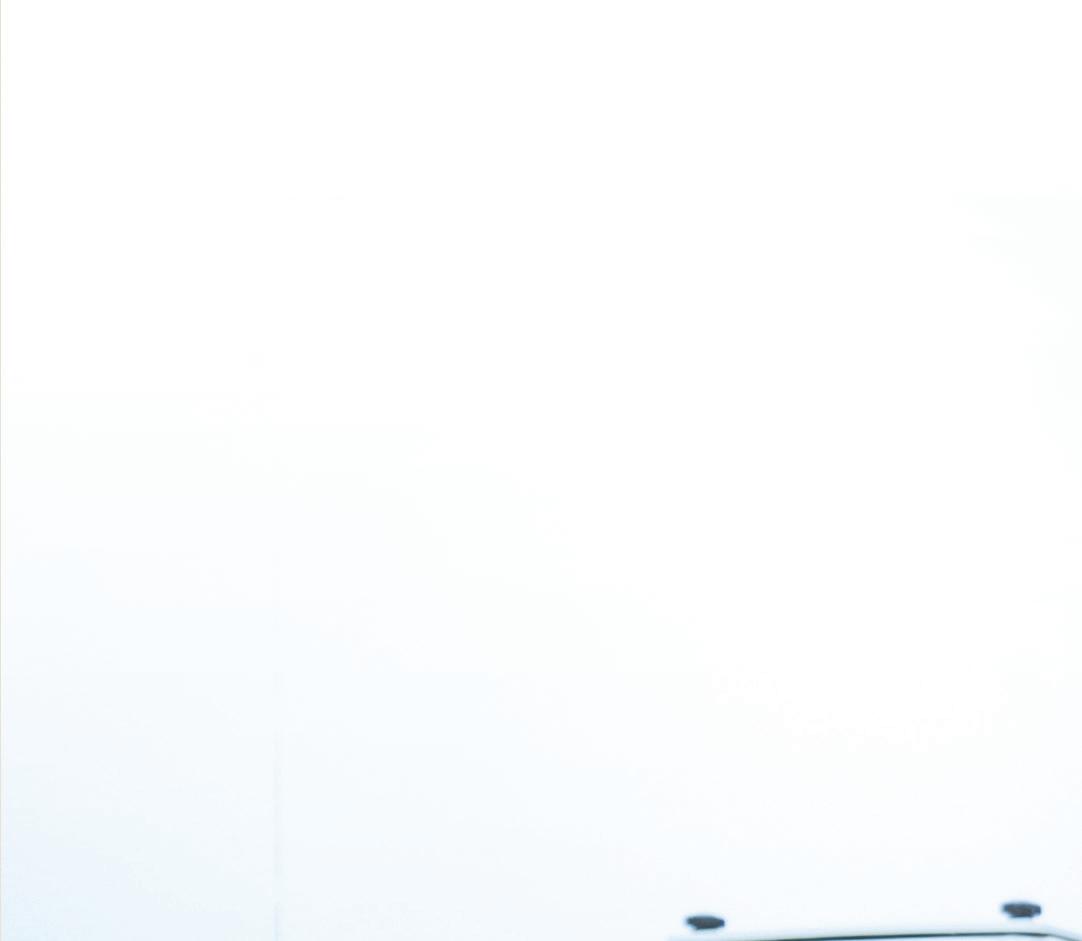

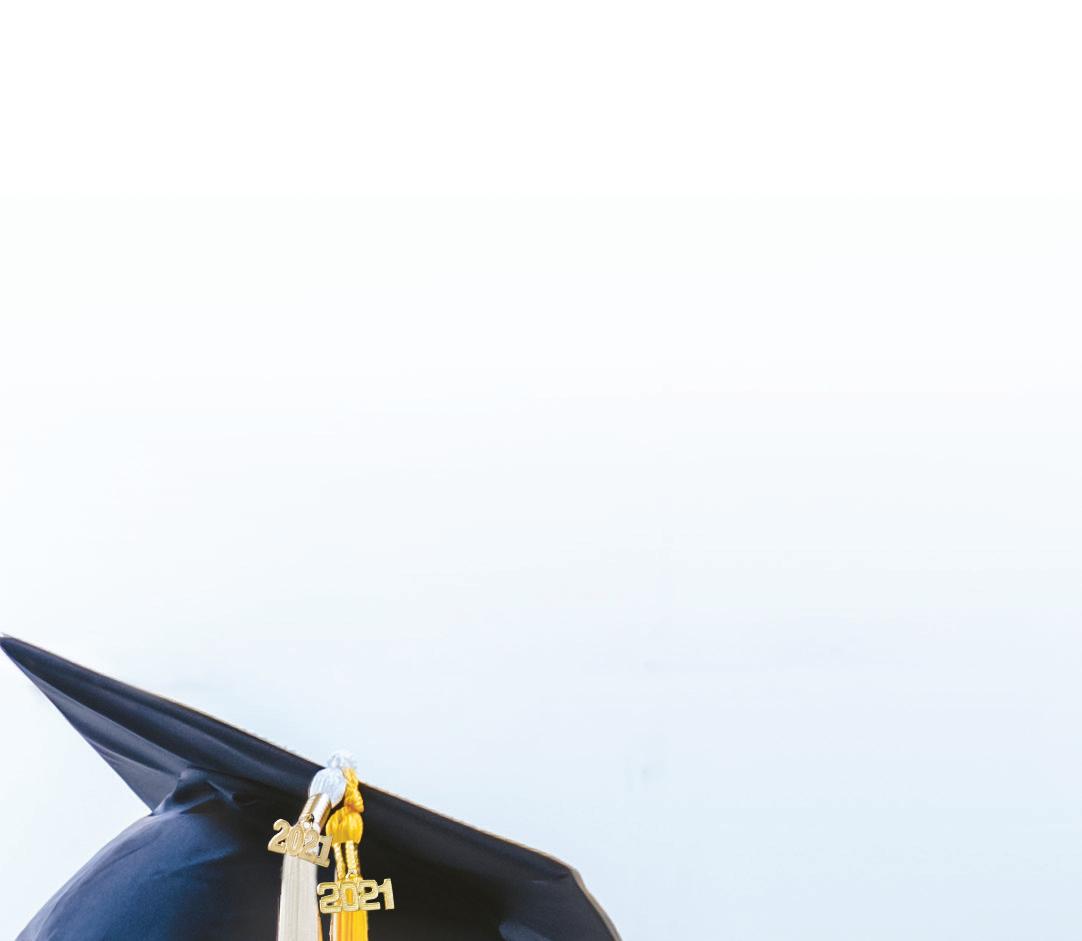
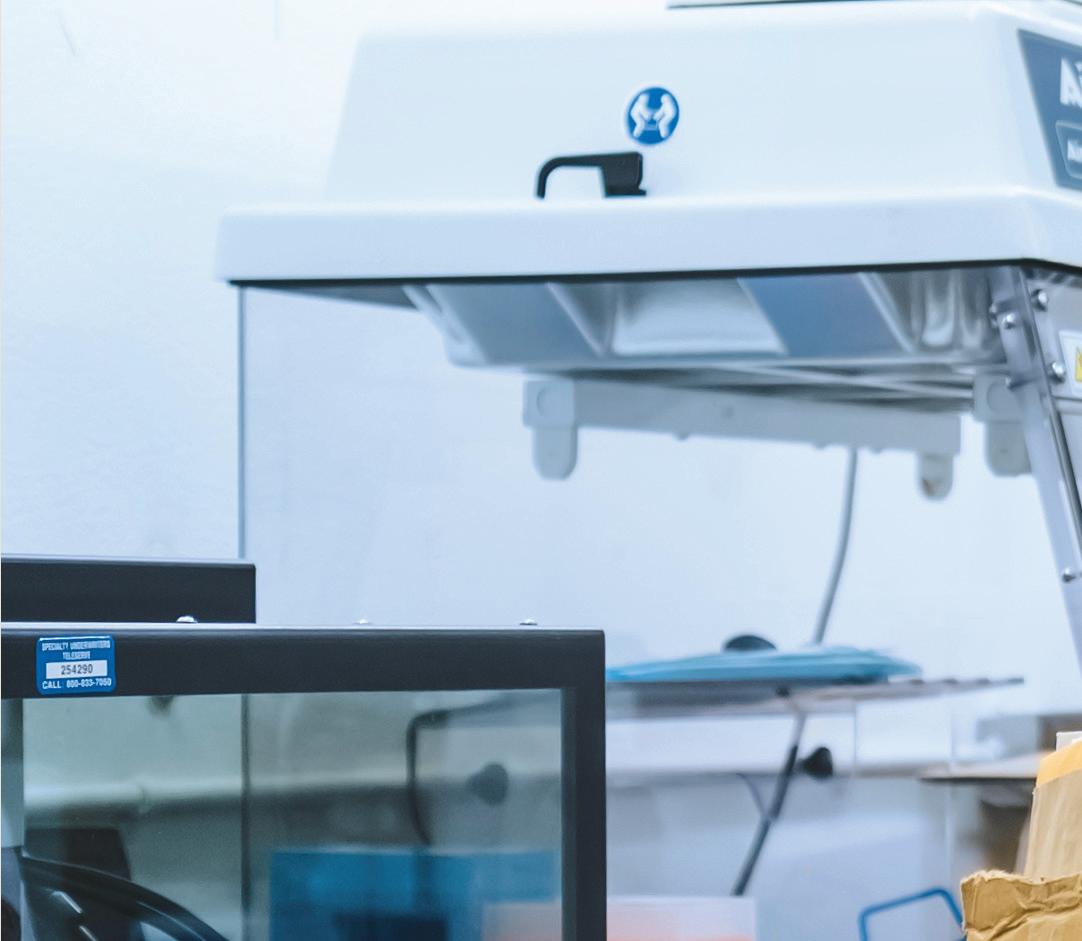
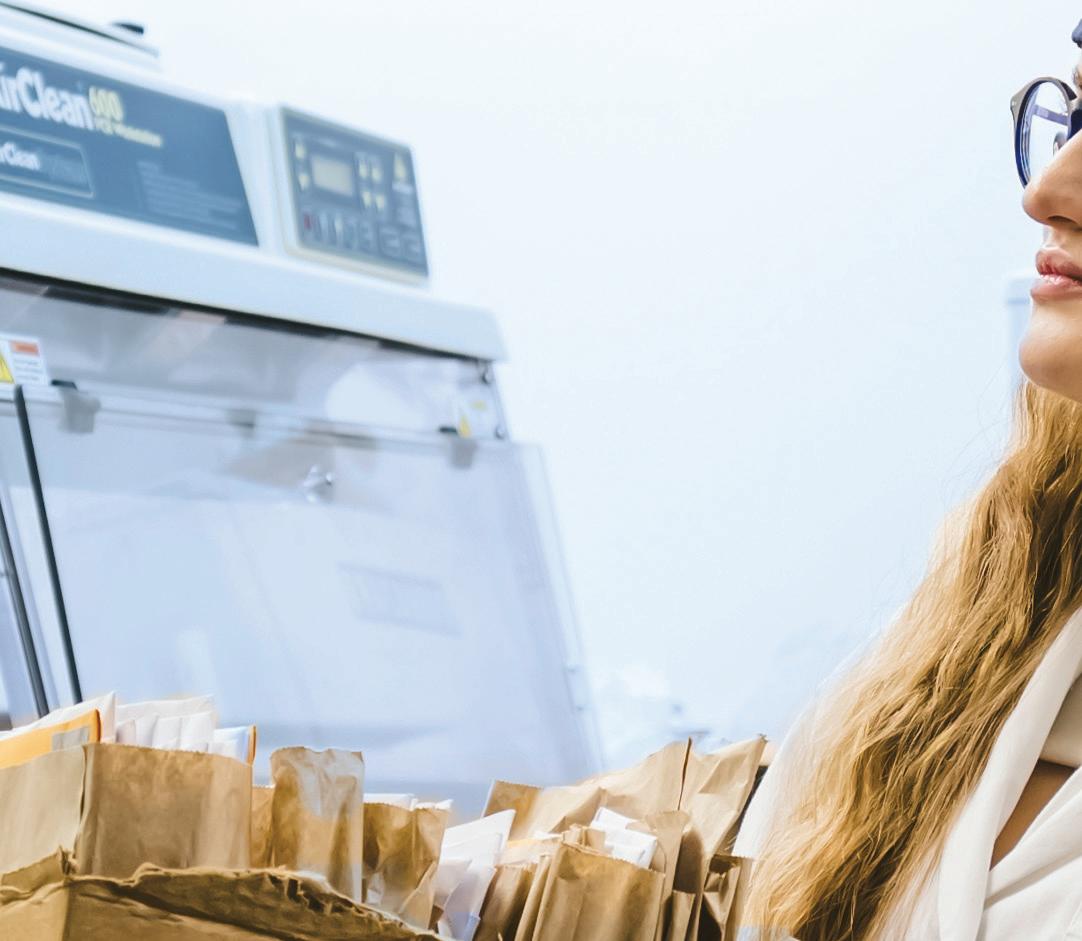
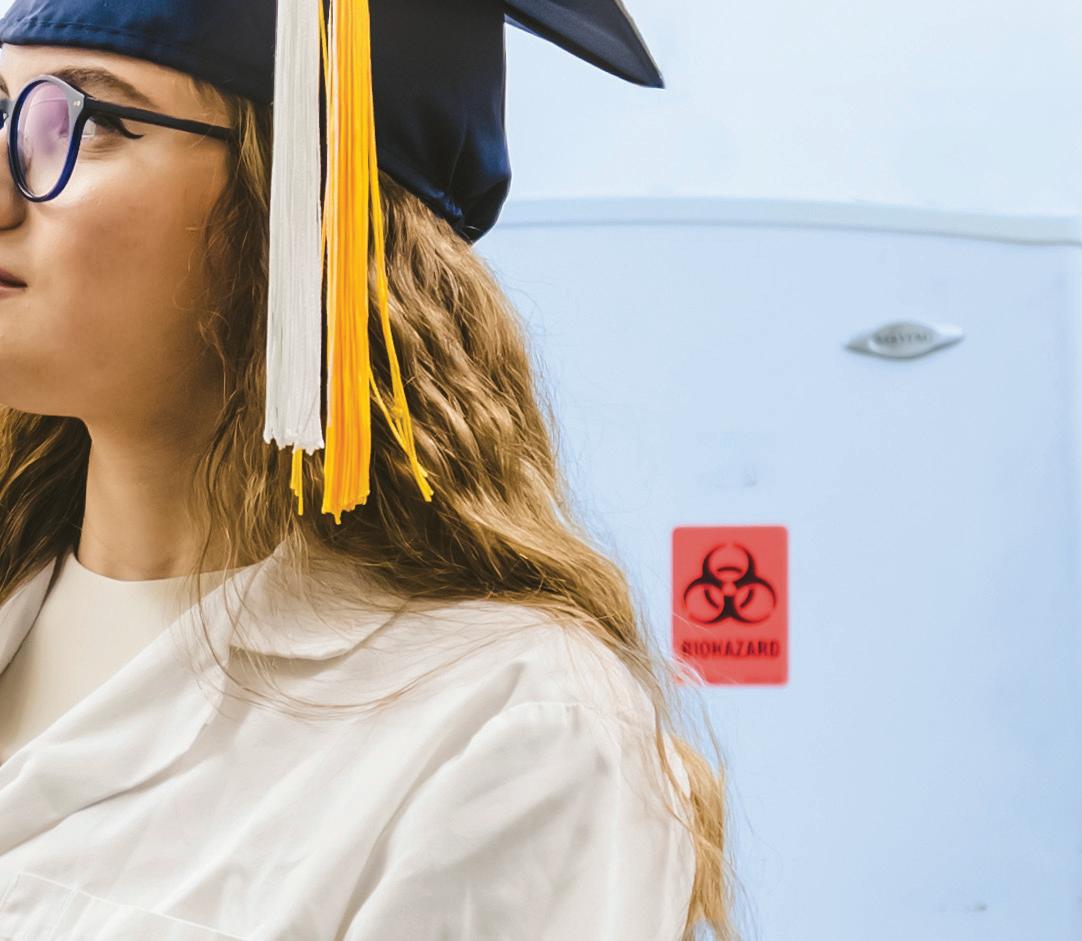
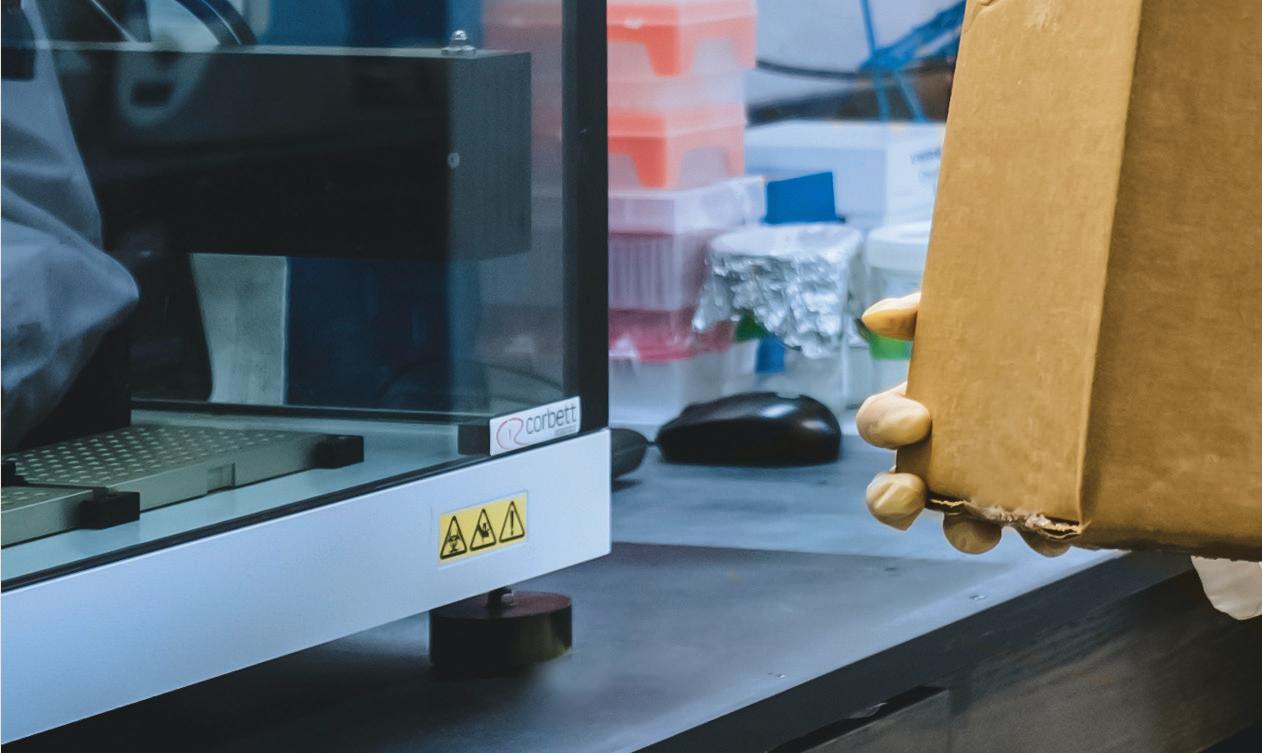
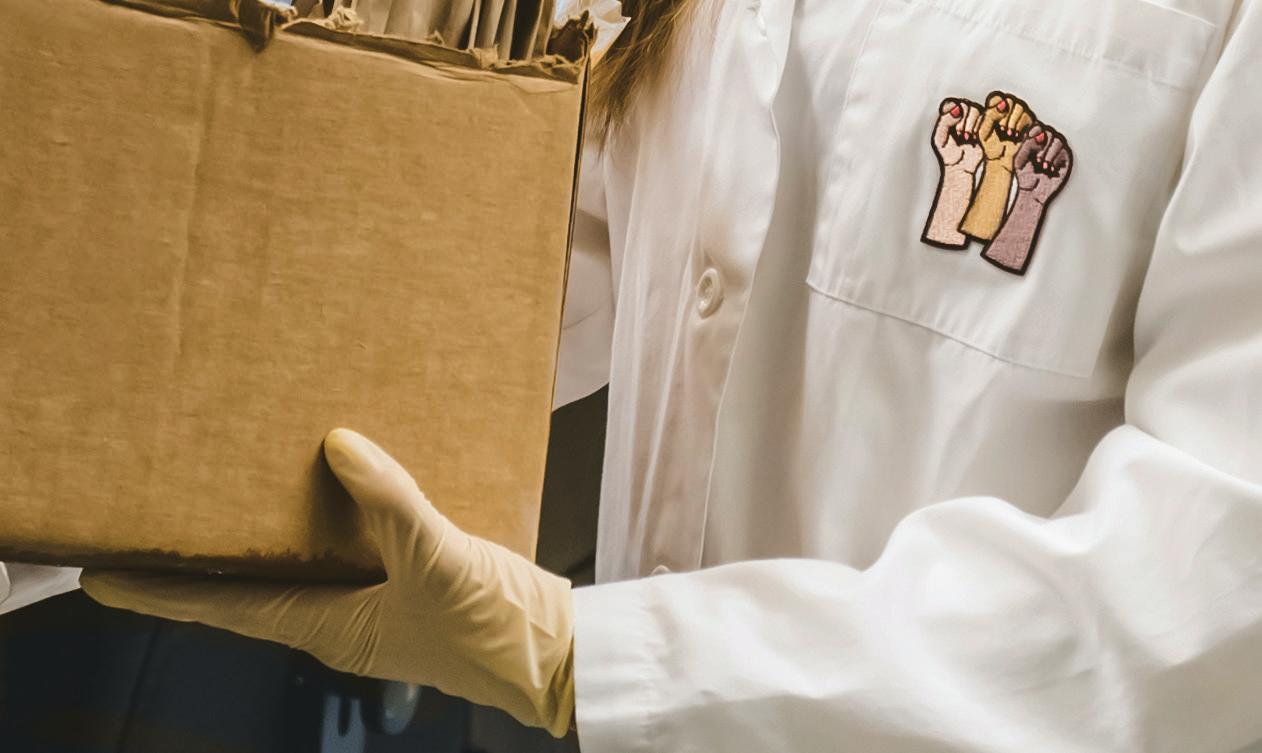
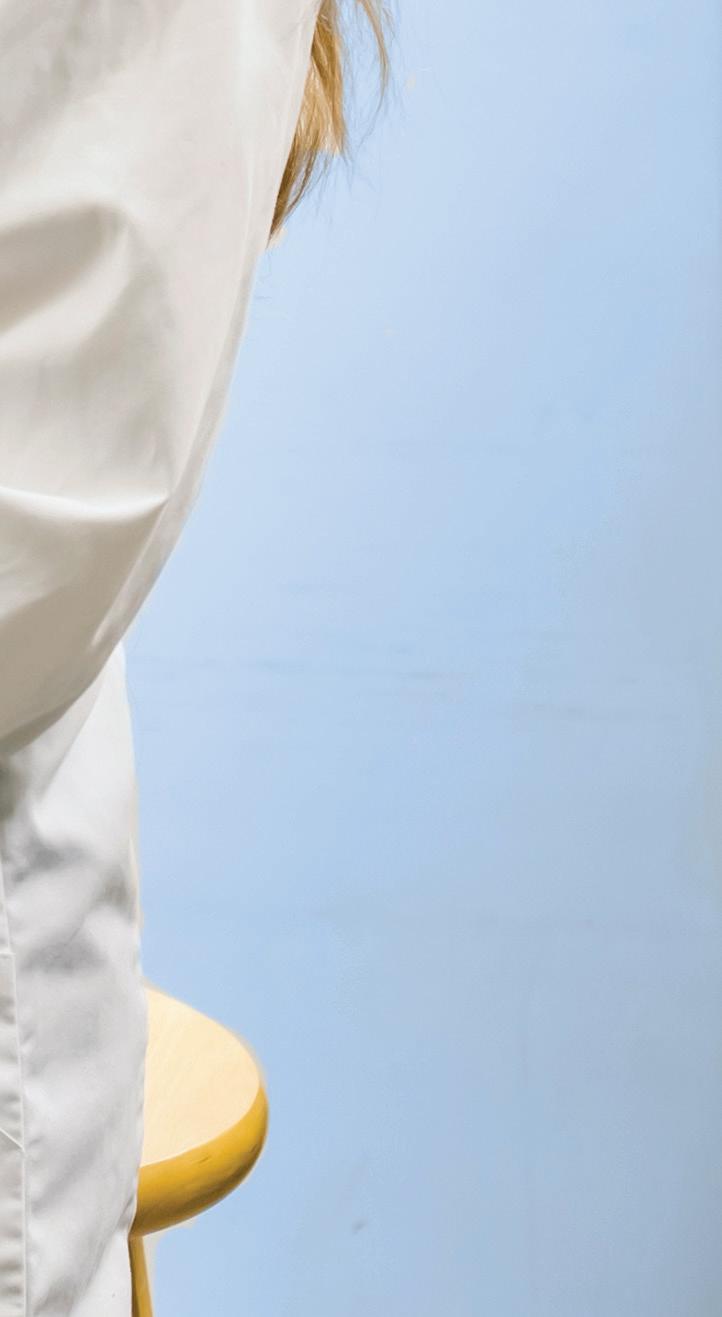


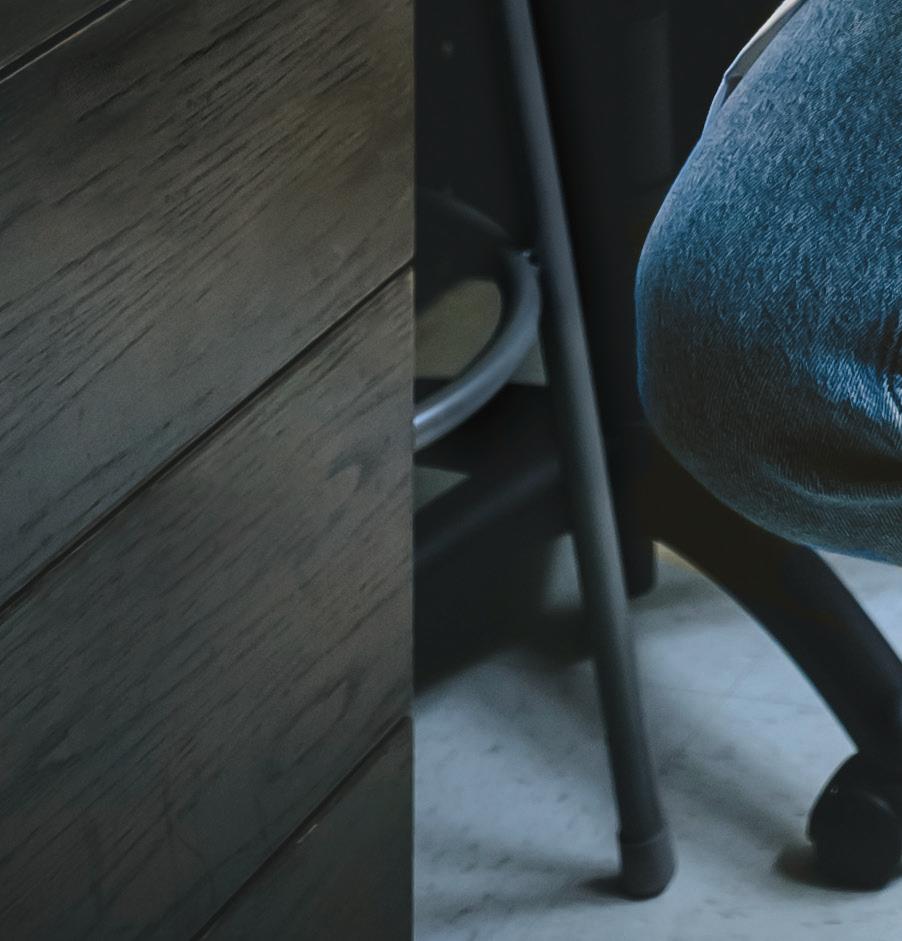
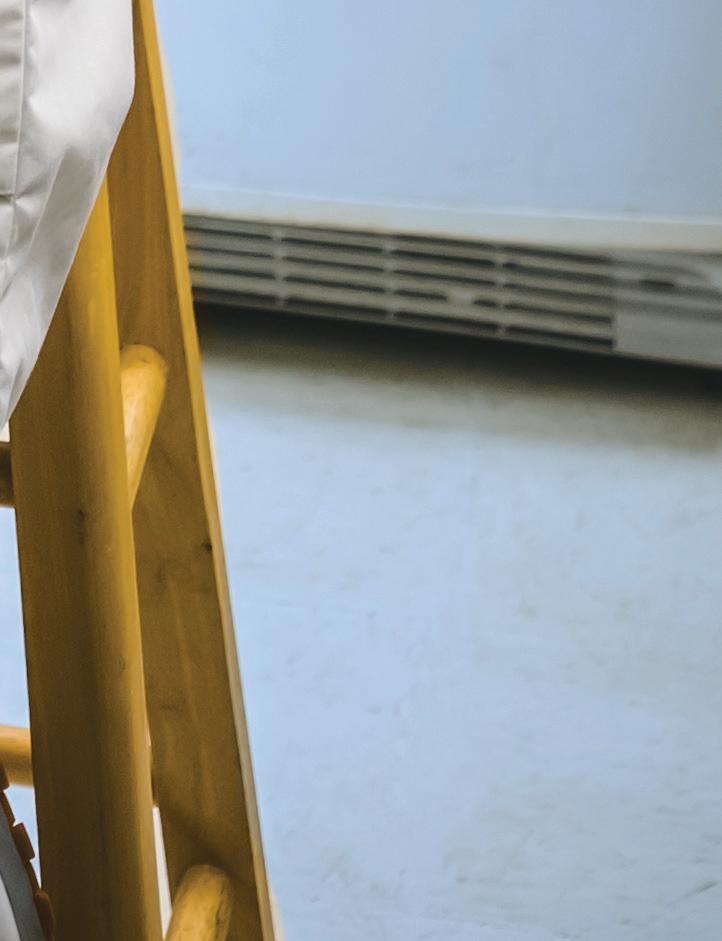
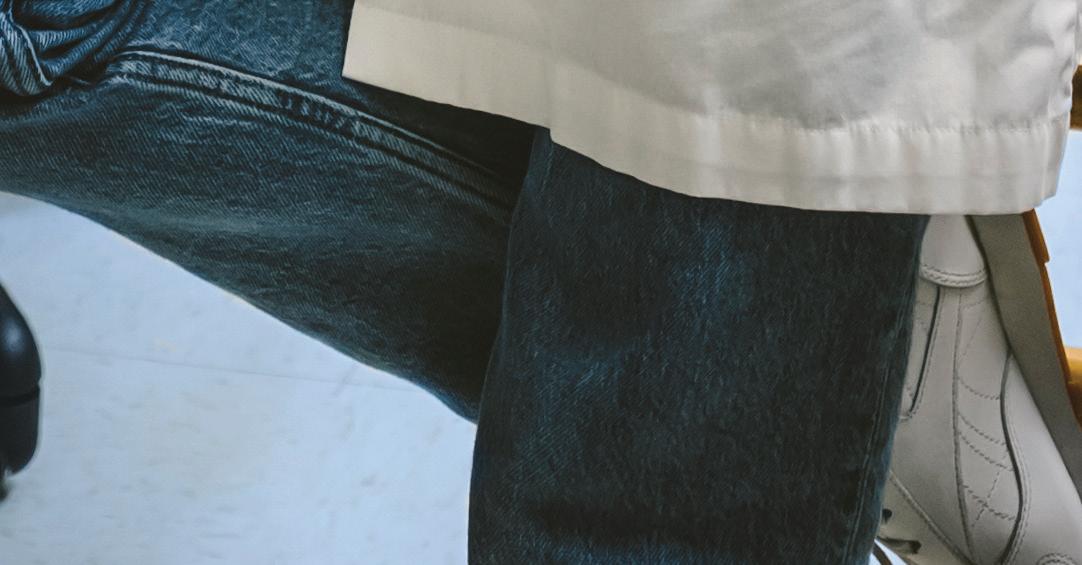
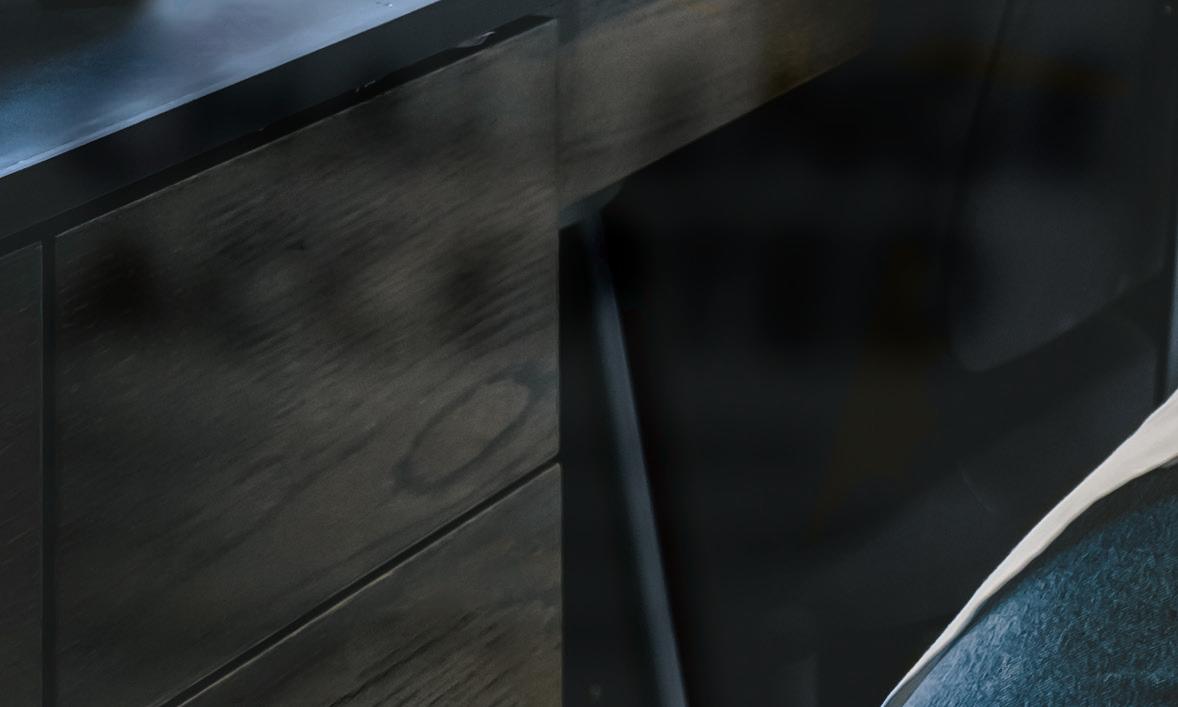



SPRING 2022 VOLUME 47 FLORIDA INTERNATIONAL UNIVERSITY Rewriting the narrative of the 21st-century public research institution CHALLENGE ACCEPTED
EXCELLENCE ELEVATED
The Green School earns a prestigious membership. 8
DISTINCTIVE IN D.C.
FIU has grown a standout presence in the nation’s capital.

A RESEARCH UNIVERSITY UNICORN
Graduating the nation’s most diverse student body in record numbers defies convention.
COLLABORATION PROLIFERATION
Cooperative medical research is about to pay off big time.
UNDOING THE DAMAGE
Scientists are working to help Earth bounce back.
PEOPLING MIAMI’S TECH BOOM

The Knight Foundation School of Computing and Information Sciences is educating movers for the movement.




TO SLAY A DEADLY BRAIN TUMOR
A new discovery puts researchers a step closer to treatment.
CLOSING IN ON $750M
The FIU campaign gathers a community of dreamers.
SCAN FOR VIDEO CONTENT WHENEVER YOU SEE A CODE GOOD COMMOTION
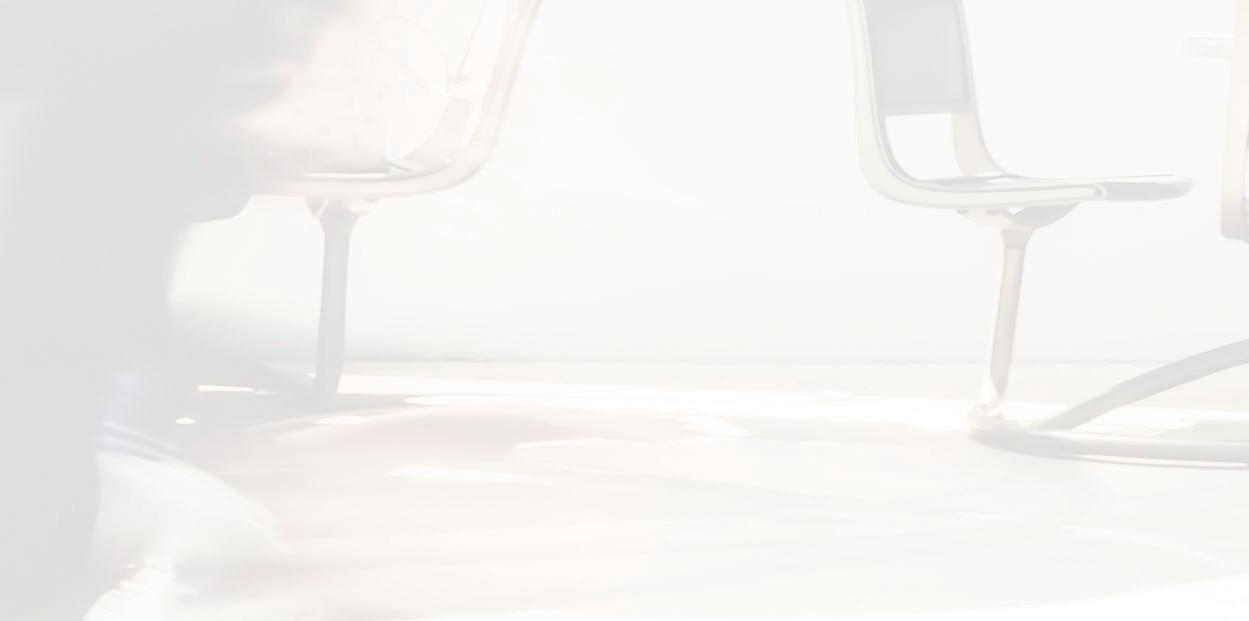
Changes in athletics leadership have Panthers roaring.

32 6
10
14
16
22
28
31
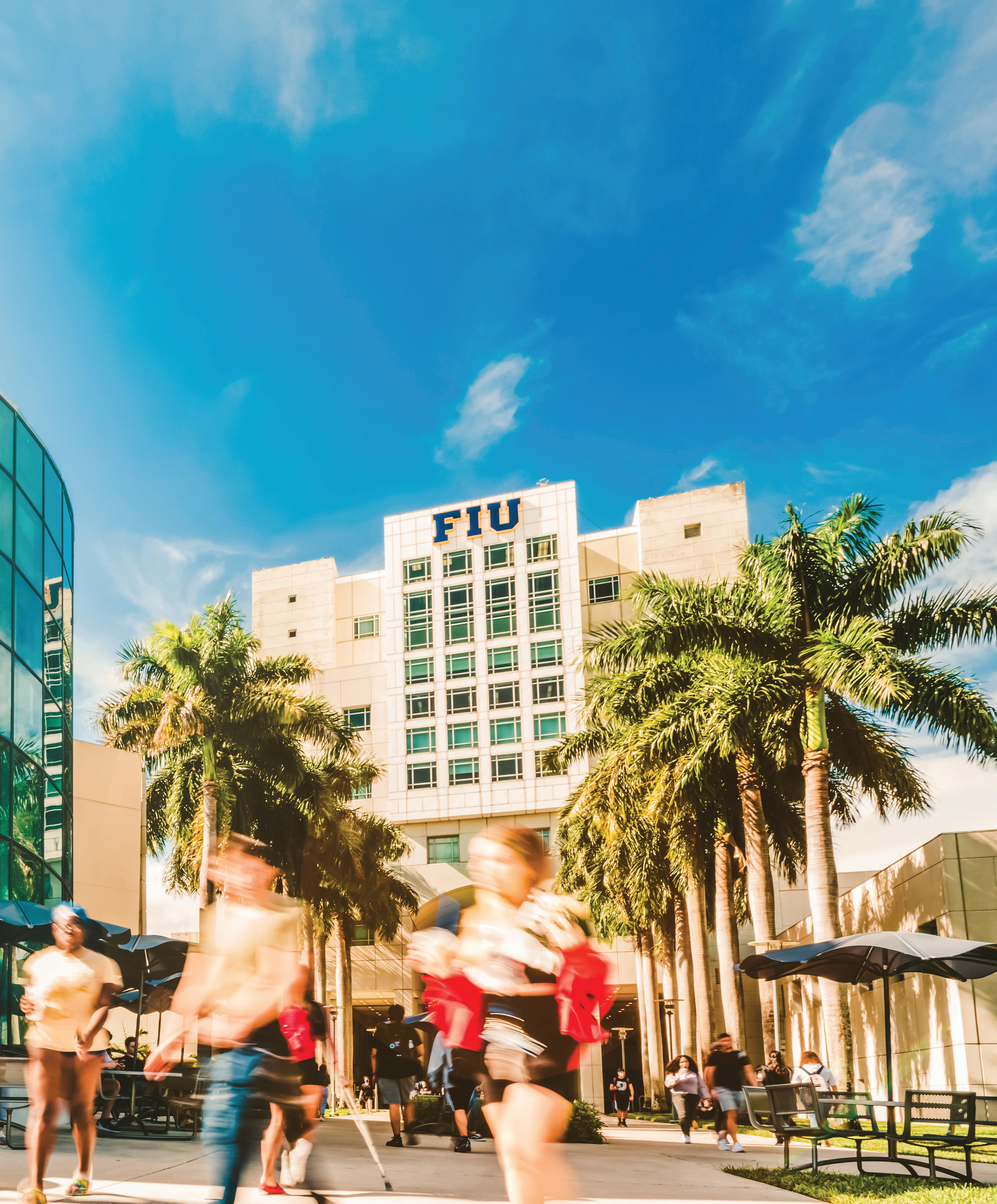
SEE HOW WE RISE
FROM


THE INTERIM PRESIDENT

To those of you I’ve not yet met, let me introduce myself.
I have served the Panther community with pleasure for more than 12 years as chief financial officer. While taking responsibility for FIU’s fiscal soundness, I learned much about this indomitable institution. What I discovered fills me with pride and hope for our future as one of America’s top public, urban research universities. Our university community is committed to driving talent, discovery and innovation, and our students and faculty are solving some of the greatest challenges of our time. It is an incredible honor for me to now serve our community as interim president.
At FIU, we know what it takes to fulfill our university mission and keep driving to achieve our Next Horizon Strategic Plan — outstanding teaching, world-class research and exemplary service.
We know that making student success our highest priority means that every graduate will achieve their full potential and contribute to a society that benefits everyone.
We know that attracting and retaining excellent faculty to teach and conduct research gives us the power to solve problems with the creativity and intentionality today's global reality demands.

And finally, we remain committed to living out our values with dignity, respect, awareness and accountability, and we will continue to ensure FIU meets the highest institutional standards.
We certainly cannot accomplish these goals without all of you.
Through my interactions over the past dozen years with our students, faculty, staff, alumni and our broader community, I have come to understand the dynamism that keeps this place evolving. Fifty years ago, FIU set out to educate a diverse population looking for a high-quality public education. We started with a powerful engine with which we have continued to tinker on the long and winding road to ever-greater success.
So many of you have played a role in that success: students who regularly astound us with visions — and plans — for a better world, faculty who push the boundaries of science and medicine for the good of humanity, and alumni who lead and inspire. That important work makes us who we are today: a university on the rise.
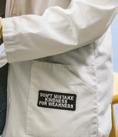
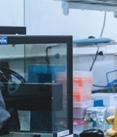

Thank you for helping build an FIU of which we are all proud. I can only imagine what the next 50 years will bring and I look forward to continuing on our path forward together.
Interim President Kenneth A. Jessell
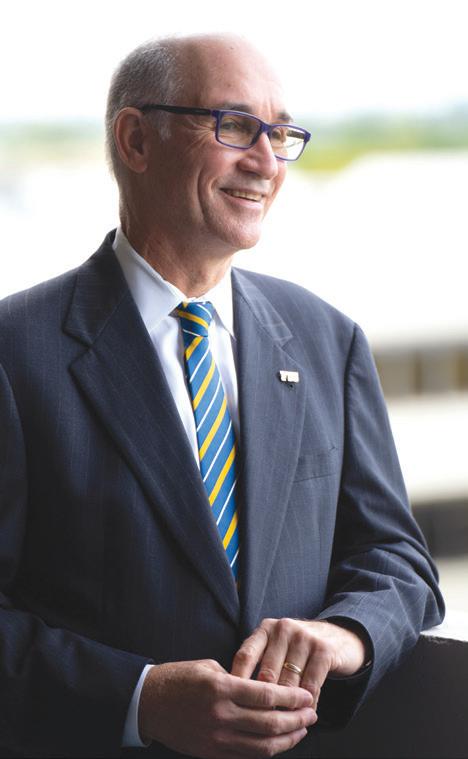
FIU Board of Trustees
Dean C. Colson ’09, Chair

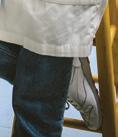
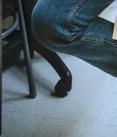

Rogelio Tovar ’92 ’94, Vice Chair Cesar L. Alvarez
Jose J. Armas
Carlos A. Duart ’94, MACC ’99 Donna J. Hrinak
Natasha Lowell T. Gene Prescott
Joerg Reinhold Chanel T. Rowe ’14 Alexander Rubido Marc D. Sarnoff Carlos Trujillo
FIU MAGAZINE
Strategic Communications, Government and External Affairs
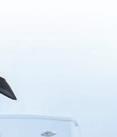

Michelle L. Palacio Senior Vice President
Anthony Rionda Associate Vice President
Karen Cochrane Assistant Vice President Alexandra Pecharich Editor
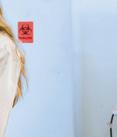
Aileen Solá-Trautmann MSM ’18 Art Director
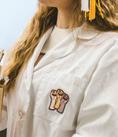
Contributing writers
JoAnn Adkins David Drucker ’18 Clara-Meretan Kiah ’15 Maydel Santana '91, MSM '16 Gisela Valencia ’15, MA ’19
Photographers
Carl-Frederick Francois ’16, MS ’17 Eduardo Merille ’97, MBA ’00 Christopher Necuze ‘11, MS ’20 Margarita Rentis ’17
Copyright 2022, Florida International University. FIU Magazine is published by the Florida International University Division of Strategic Communications, Government and External Affairs and distributed free of charge to alumni, faculty and friends of the university. Reproduction in whole or in part without written permission is prohibited. To reach us, call 305-348-7235.
Alumni Office: Write to Office of Alumni Relations at MMC MARC 510, Miami, FL 33199, or call 305-348-3334 or toll-free at 800-FIU-ALUM. Visit fiualumni.com.
Change of Address: Please send updated address information to FIU University Advancement, MARC 5th Floor, Miami, FL 33199 or by email to pecharic@fiu.edu.
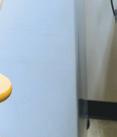
On the Cover: Andrea Ramírez Torres ’21 graduated in December with bachelor’s degrees in biochemistry and natural and applied sciences. As an undergraduate, she distinguished herself as an Honors College student, a standout researcher and an ambassador for the Office of Social Justice & Inclusion. She will pursue graduate studies. See page 10.
Letters to the Editor: FIU Magazine welcomes letters to the editor regarding magazine content. Send your letters via email to pecharic@fiu.edu or mail to FIU Magazine, Division of Strategic Communications, Government and External Affairs, MMC PC 515, Miami, FL 33199. Letters may be edited for length and clarity. All letters should include the writer’s full name and daytime phone number. Alumni, please include your degree and year of graduation.
21424_01/2022

Sincerely, Kenneth A. Jessell 2 | SPRING 2022
NO. IN FLORIDA
The Florida Board of Governors in 2021 ranked FIU first among the 12 public institutions in the State University System, based on key student success metrics such as four-year graduation rate, retention rate and employment of recent graduates.
MOST DIVERSE UNIVERSITY
FIU is No. 1 in the nation for awarding bachelor’s degrees to minorities and No. 1 for awarding bachelor’s and master’s degrees to Hispanic Americans, according to data collated by Diverse Issues in Higher Education.
A HUB OF INNOVATION

U.S. News ranks FIU No. 17 in the United States for most innovative public universities and Top 20 for utility patents awarded to a public university. And FIU is one of just 45 designated “changemaker” campuses worldwide, a recognition of cutting-edge innovation in the service of socially conscious education and entrepreneurship.
WAYS FIU SETS THE BAR
Miami’s public research university opened its doors less than 50 years ago and has achieved measures of success once considered unattainable by a large urban institution. FIU has met and exceeded benchmarks set by much older universities as well as established new standards now chased by others. Committed to a vibrant South Florida and a global community in need of creative solutions, the university continues to capture attention while operating at a pace that makes it unstoppable.
FASTEST-RISING UNIVERSITY
FIU in 2021 continued its rapid ascent with a 17-spot improvement to No. 78 among public universities, according to U.S. News & World Report.
BEST BAR PASSAGE RATES IN FLORIDA
The FIU College of Law is the youngest in the state, and its firsttime takers of the twice-annual Florida bar exam collectively pass at rates that consistently put them ahead of cohorts from the state’s 10 other public and private law schools, including ones founded more than a century earlier.
AMONG THE YOUNGEST UNIVERSITIES TO ACHIEVE TOP RESEARCH STATUS FIU has been recognized as an institution with “very high research activity,” or Carnegie Research 1 designation, since 2015, putting it among the top 3% of research-producing universities in the country alongside institutions with head starts of hundreds of years.
AN ENGINE OF SOCIAL MOBILITY
FIU ranks No. 5 for social mobility among public universities (and No. 6 among all universities, both public and private), according to U.S. News & World Report, a measure of the extent to which an institution makes possible the upward movement of individuals who start life at an economic disadvantage.
A STANDOUT IN BUSINESS
FIU’s undergraduate international business program is ranked No. 2 in the country by U.S. News & World Report and its international MBA No. 3. The College of Business has also seen its Center for Leadership land on the European Business Review’s Top 10 list for executive education, which includes the Wharton School, the Columbia Business School and others around the world.
A CULTURAL MECCA FIU’s three Smithsonian-affiliated museums, a 46,000-square-foot space on campus and two others on Miami Beach, give students and the larger South Florida community access to a wide range of exhibits, lectures and receptions, author talks, family days and more. And its Herbert and Nicole Wertheim School of Music and Performing Arts mounts concerts and theater productions throughout the year.
ONE OF THE NATION’S BIGGEST — BUT WITH A PERSONAL TOUCH
FIU is the fourth largest university in the country with 58,000 students. Even so, a low faculty-to-student ratio means students can take small classes, get to know professors on an individual basis and, subject to academic eligibility, apply to the Honors College, with its intimate, multidisciplinary approach to building academic community.
NEWS.FIU.EDU/MAGAZINE | 3
ON THE PROWL
CHAMPIONING GREEN ENERGY


A solar-powered microgrid and virtual control room now operate at the FIU engineering center following a decade-long collaboration with the country‘s largest utility, NextEra Energy/FPL. The facility gives students and researchers hands-on experience with cutting-edge technology and supports studies to improve Florida’s energy infrastructure.

Microgrid technology uses a local energy source to power homes, schools and businesses in the wake of disruptive weather. At FIU, energy is collected via a solar canopy installed in 2016 (pictured) over a parking lot adjacent to the 480,000-square-foot engineering building. Continuously collected data about power availability — solar being an intermittent source of energy — has been used by Eminent Scholar Chaired Professor Arif Sarwat and a team of students to perform simulations to determine usage optimization.
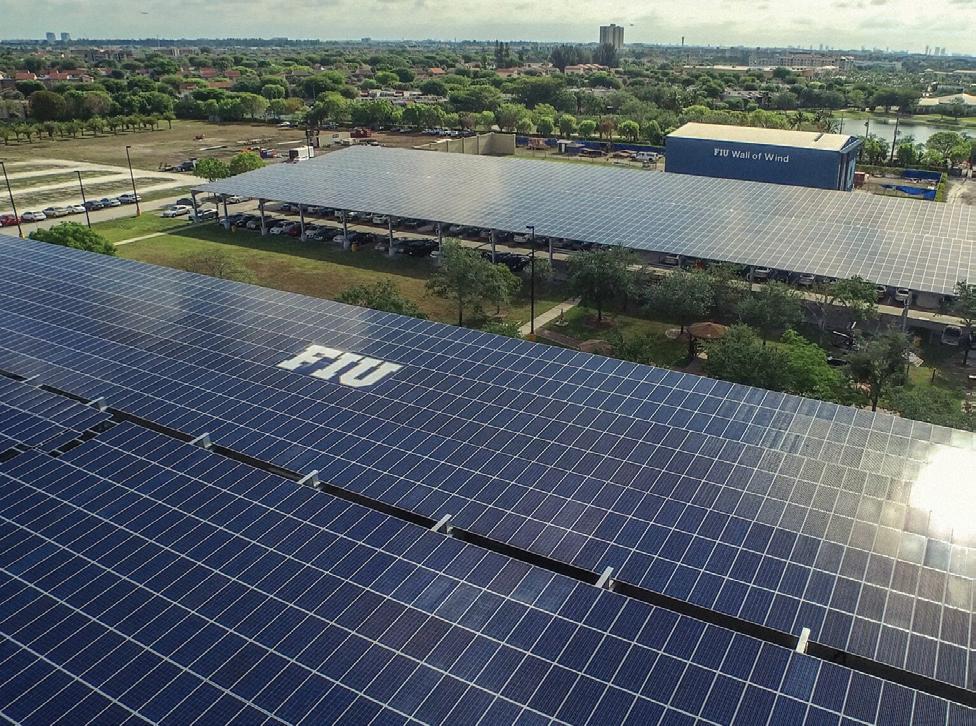
The microgrid will generate backup energy for the engineering center, roughly a mile from the university's main campus, should a hurricane or another extreme event cut power from the main utility distribution grid. Nearly 1,400 FIU students are pursuing electrical and computer engineering studies, which support the pursuit of careers related to energy systems, with the department offering an undergraduate track and a graduate concentration in power/energy.
SIMULATING MONSTER STORMS TO SAVE LIVES
The National Science Foundation in January awarded a $12.8 million cooperative agreement to FIU’s Extreme Events Institute to support the design of a national testing facility that can generate hurricane winds of up to 200 mph.
“Climate change is fueling more intense and more dangerous storms, and cutting-edge research and testing capabilities are clearly needed to meet the nation’s evolving risks,” said Richard S. Olson, the institute’s director.
FIU is already home to the Wall of Wind (pictured), an 8,400-horsepower simulator that can create 157 mph winds and has been used to test components as well as whole structures in the interest of refining designs, retrofitting existing construction and strengthening building codes.
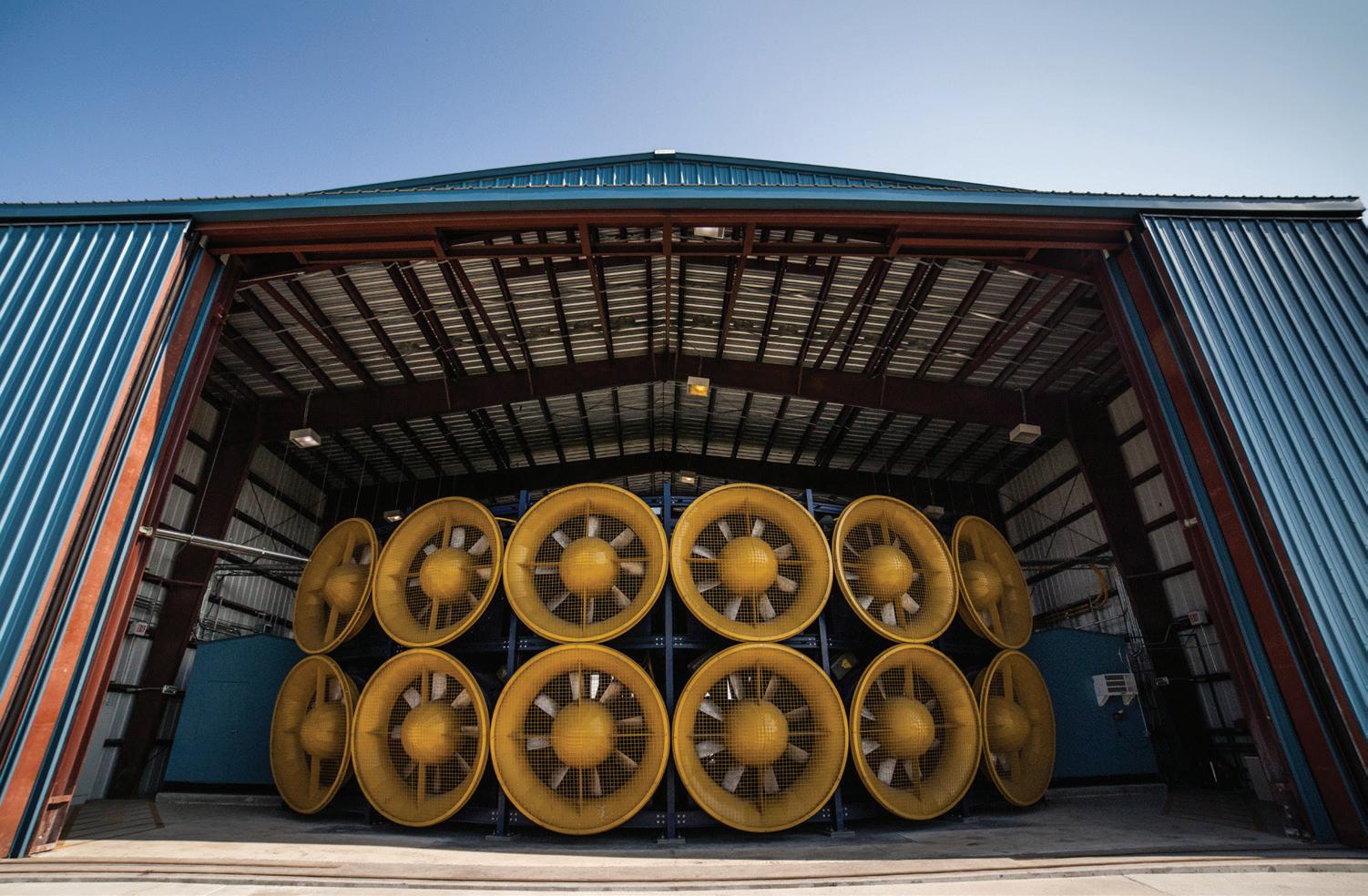
The new facility has informally been dubbed “the Category 6 project” as it will have the capacity to create a windstorm, complete with storm surge and wave action, that far exceeds the minimum threshold of a Category 5 hurricane. (The latter is defined by windspeeds of at least 157 mph and currently has no upper limit.) Work will be led by faculty from the department of civil and environmental engineering with a multidisciplinary team of researchers and practitioners from other universities and the private sector collaborating on design.
AMPLIFYING THE QUEEN OF SALSA’S LEGACY
Some 230 musical scores that belonged to the late Celia Cruz now reside within FIU’s extensive Cuban and Latin American music collection. The dazzling entertainer gave voice to various genres of Afro-Caribbean music, recorded more than 50 albums over five decades, won several Grammys and, as a naturalized American, received the National Medal of Arts. The donation includes works with margin notes by the singer herself, a handwritten composition by famed bandleader Bebo Valdés and arrangements by other renowned artists. The materials will enhance activities in the school of music and serve specialists in cultural studies. FIU CasaCuba, a research and cultural initiative, will host related exhibitions, scholarly presentations and performances.

4 | SPRING 2022
PRIORITIZING CHILDREN’S MENTAL HEALTH
As the U.S. surgeon general in January sounded the alarm on the pandemic’s impact on youth mental health, FIU’s own Center for Children and Families had already found ways to meet needs during the global crisis. With nearly 40 of the nation’s best researchers and clinical experts, led by renowned clinical psychologist and Distinguished University Professor William E. Pelham Jr. (pictured), the center had taken advantage of telehealth and hybrid offerings to care for children diagnosed with anxiety and other disorders. In 2021, the staff safely served more than 2,400 families and, after skipping a year, held the nationally acclaimed on-campus summer camp program, which provided more than 72,000 hours of needed treatment to 241 children.
PROVIDING CAREGIVERS PEACE OF MIND
A nursing professor’s new app in development aims to alleviate the stress of caring at home for a loved one with dementia. Ellen Brown (pictured) leads a team that includes the country’s leading geriatric psychiatrist, computer engineers and others intent on improving communication with health care providers through real-time snapshots of how a patient is faring. The information is based on caregiver responses to questions such as ones about an individual’s capacity to dress without assistance or whether symptoms such as repetitive questioning are present or worsening. Immediate, virtual sharing of data — which includes trend lines with color coding to indicate frequency or severity — allows a doctor or nurse practitioner to quickly see changes in memory or behavior. Such exchanges can reduce the pressure on family to remember details between doctor’s visits and articulate them at exam time.
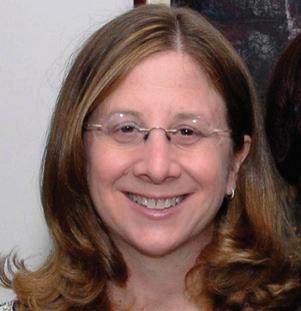
SHARING HEALTH PERSPECTIVES ACROSS THE AMERICAS
FIU served as an international resource on COVID-19 for health and other leaders throughout Latin America, the Caribbean, the United States and elsewhere by convening experts for a series of virtual symposia in 2021. Led by the dean of FIU’s Robert Stempel College of Public Health & Social Work and viewed live by thousands, the events provided timely information in both English and Spanish and featured representatives of the World Health Organization, the West African Health Organization and other groups in Asia, Europe, Latin America and the United States. In December, FIU’s Global Health Consortium, led by Dr. Carlos Espinal (pictured), organized the in-person Global Health Conference of the Americas in Cartagena, Colombia, with the Colombian Society of Pediatrics and in association with the Pan American Health Organization and the National School of Tropical Medicine at the Baylor College of Medicine. Ninety-five experts spoke over three days on global topics of concern, among them the coronavirus, immunization challenges in Latin America, antimicrobial resistance and environmental health. Nearly 500 attended.
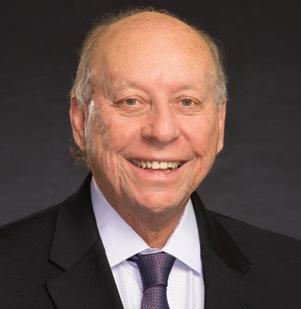
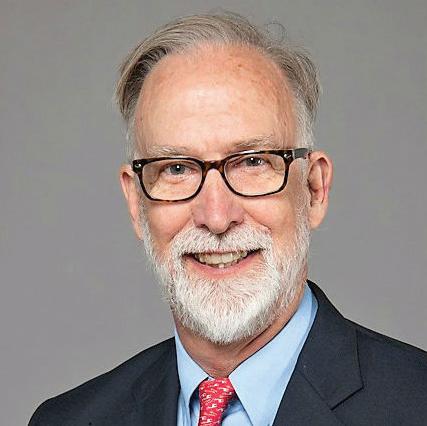
PUTTING VETERANS FIRST
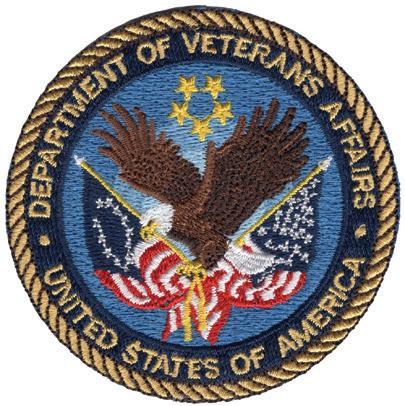
The Herbert Wertheim College of Medicine in July launches Florida’s only internal medicine residency program to specifically benefit veterans. Working at the Miami VA Healthcare System, young doctors participating in the primary care track will be uniquely prepared to manage the complex medical problems that veterans confront upon returning to civilian life, including post-traumatic stress disorder, addiction and chronic pain. The first cohort was recruited as part of national “match day,” during which soon-to-be graduated medical students learn where they will complete their residency.
CALLING ON CANINE COVID DETECTIVES


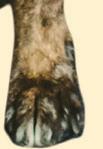
FIU chemists have turned man’s best friend into a line of defense against the spread of COVID-19. Early in the pandemic, researchers piloted a program that demonstrated the ability of seasoned detection dogs to identify individuals infected with the coronavirus with the same, or better, accuracy as a PCR test. That success led to putting canines to work in airports, on university campuses and at special events in efforts to stem the contagion.
Scientists in FIU’s Global Forensic and Justice Center have laid the ground for harnessing dogs’ superior sense of smell to sniff out explosives, invasive plant species and killer fungi. In 2015, the center tested whether the animals could be used to identify avocado trees tainted with the laurel wilt fungus. The work ultimately allowed Florida farmers to slow the spread of a potentially industrydecimating scourge by providing early treatment to infected trees even before visible signs of a problem. Other developments out of FIU include creation of a system that allows for quick assessment of a canine’s ability and thresholds, and invention of a training device that simulates mimics of homemade explosives commonly used by terrorists.
NEWS.FIU.EDU/MAGAZINE | 5
EXCELLENCE ELEVATED
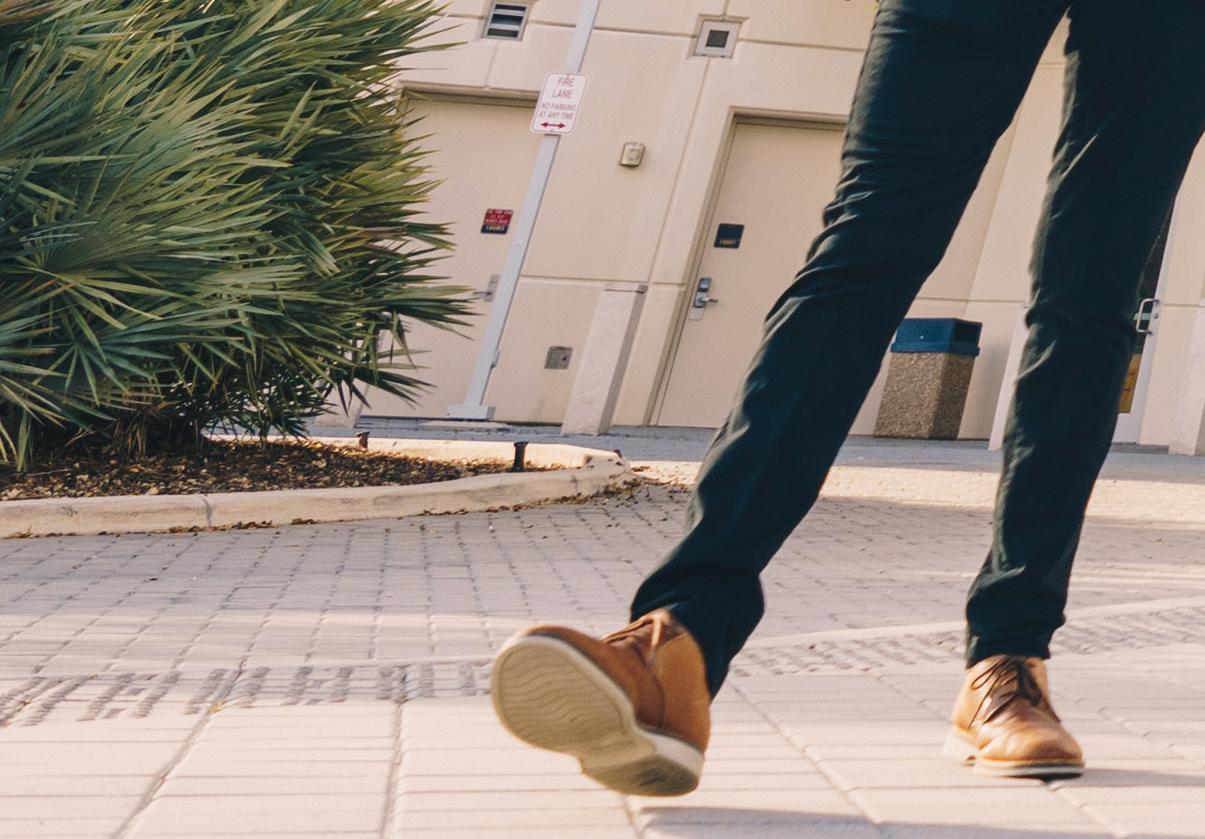
GREEN SCHOOL EARNS ELECTION INTO ELITE NETWORK OF SCHOOLS OF INTERNATIONAL AND PUBLIC AFFAIRS


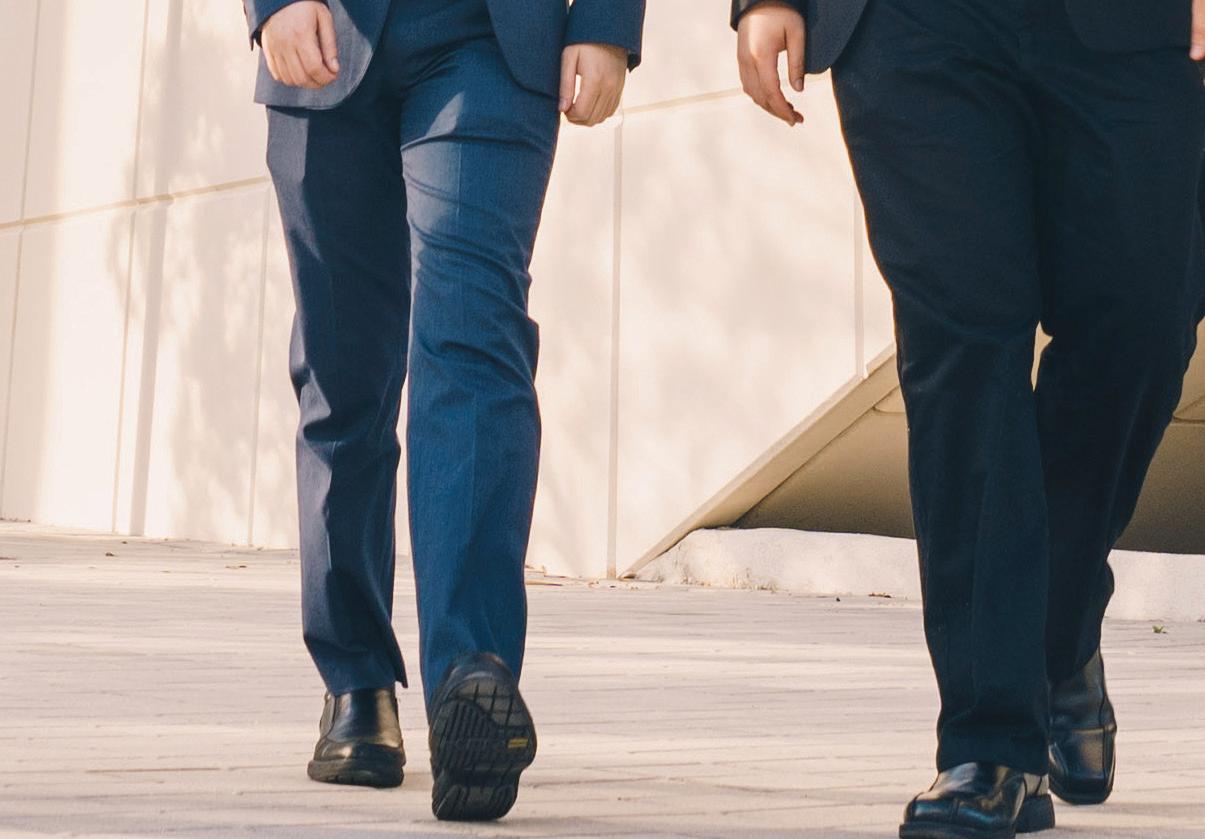
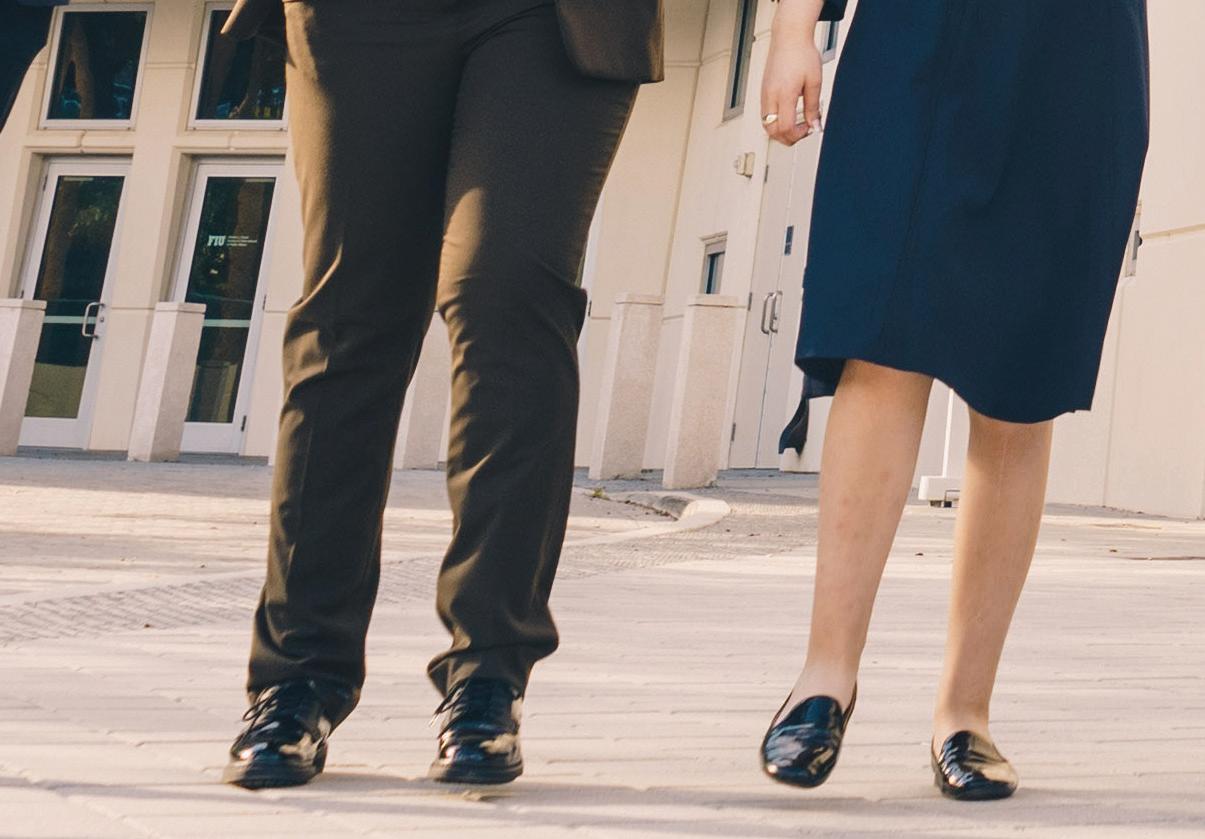
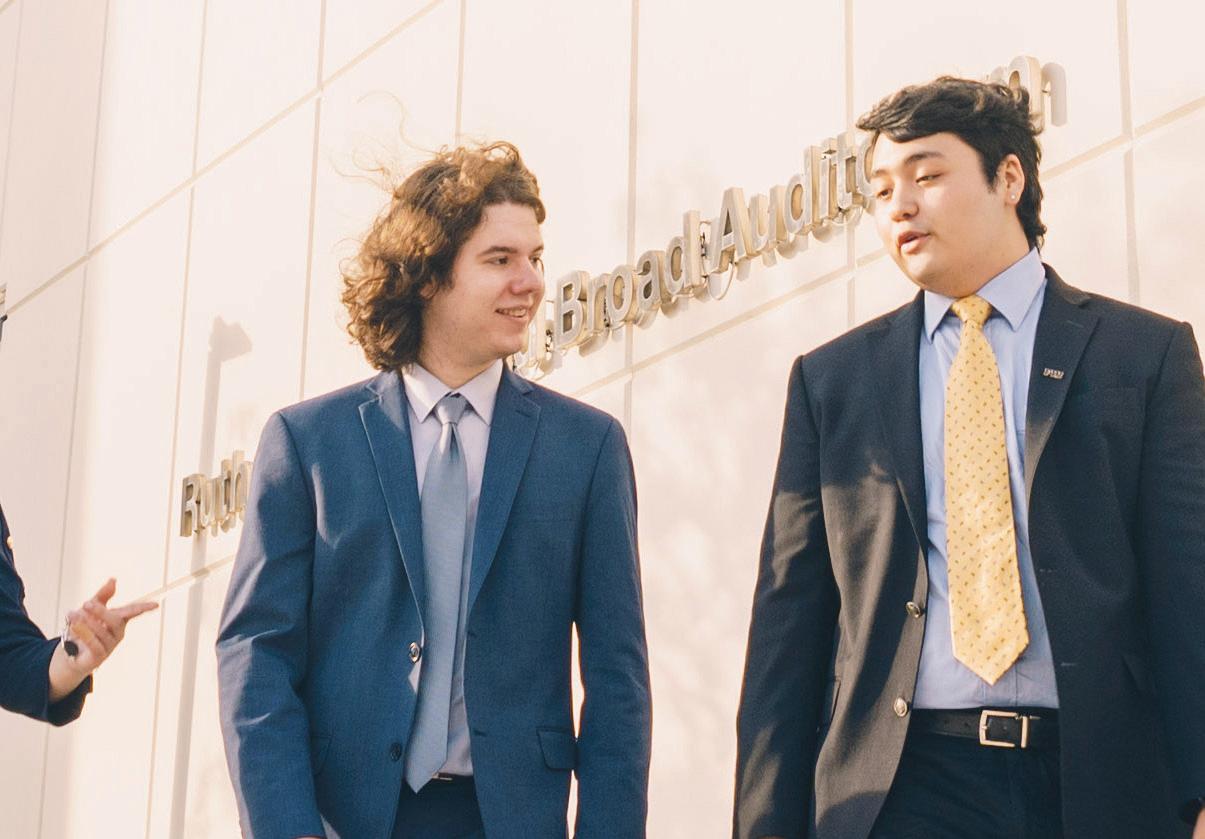
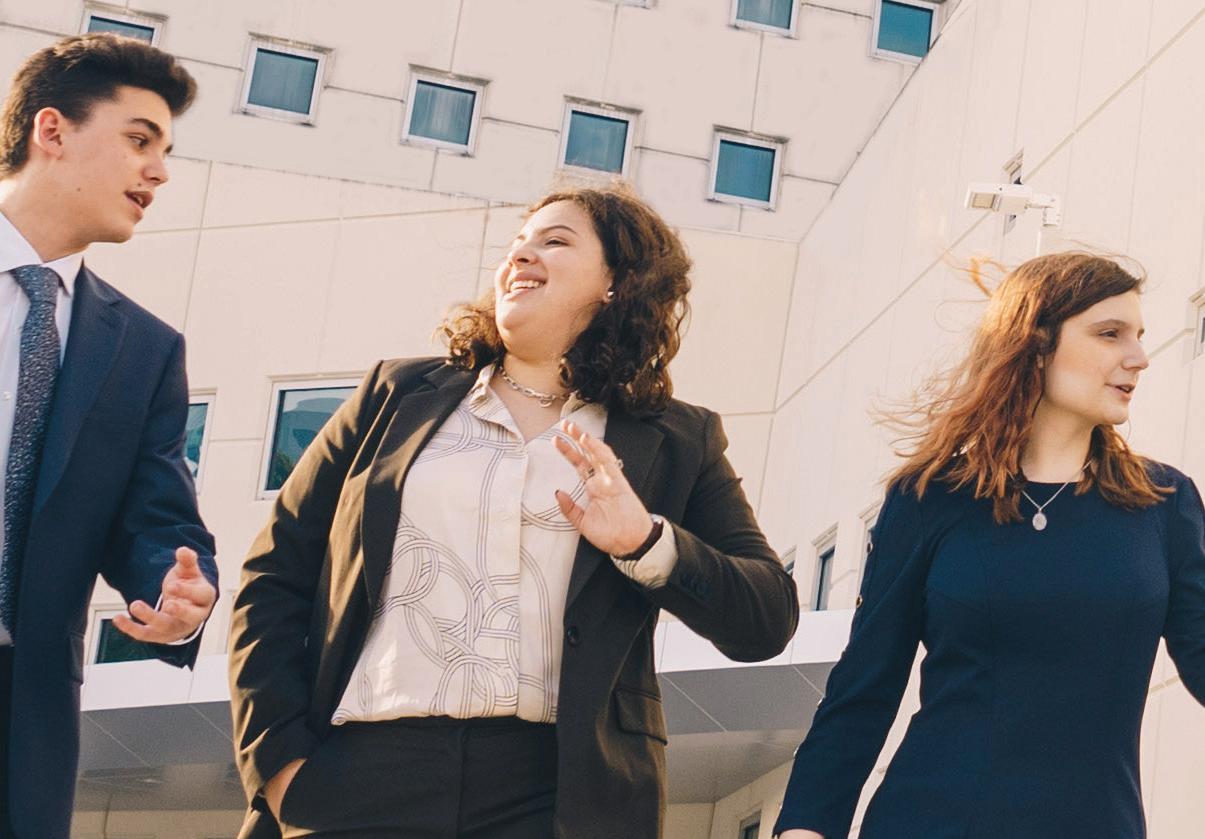
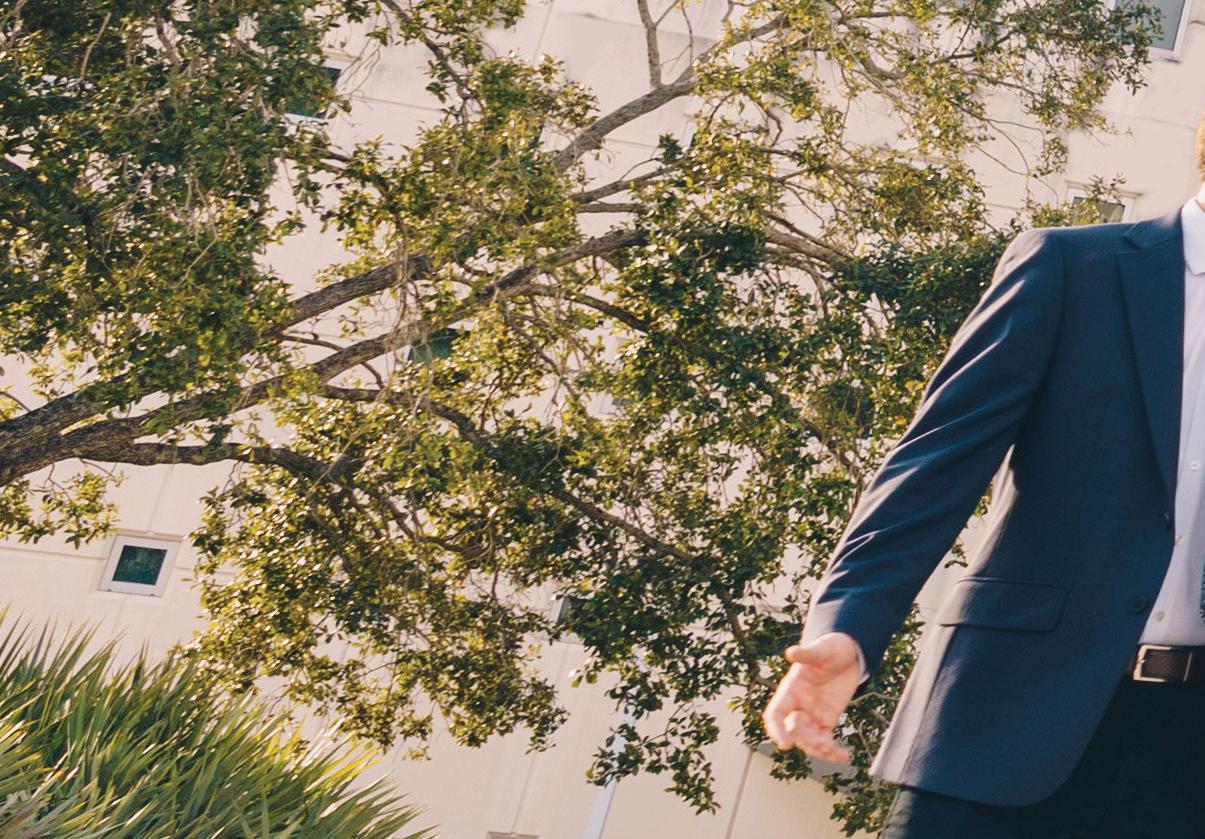
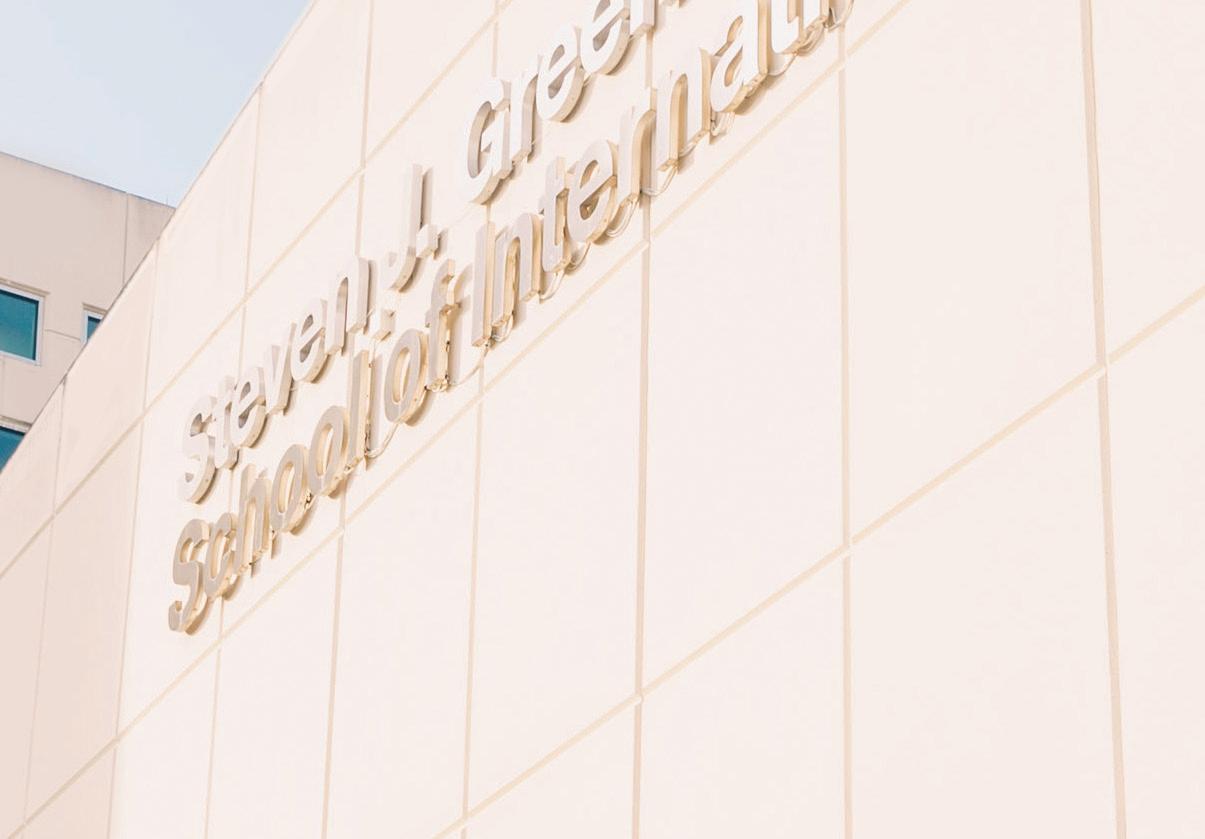

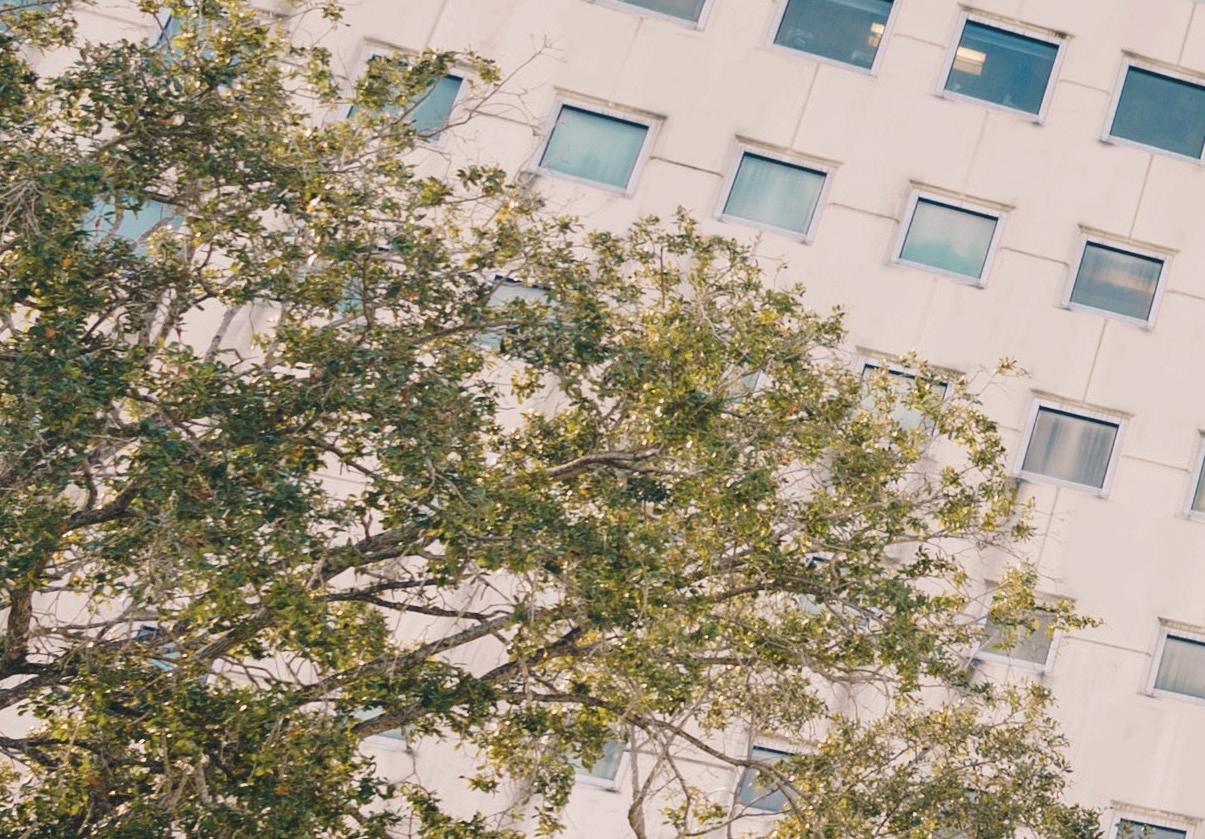
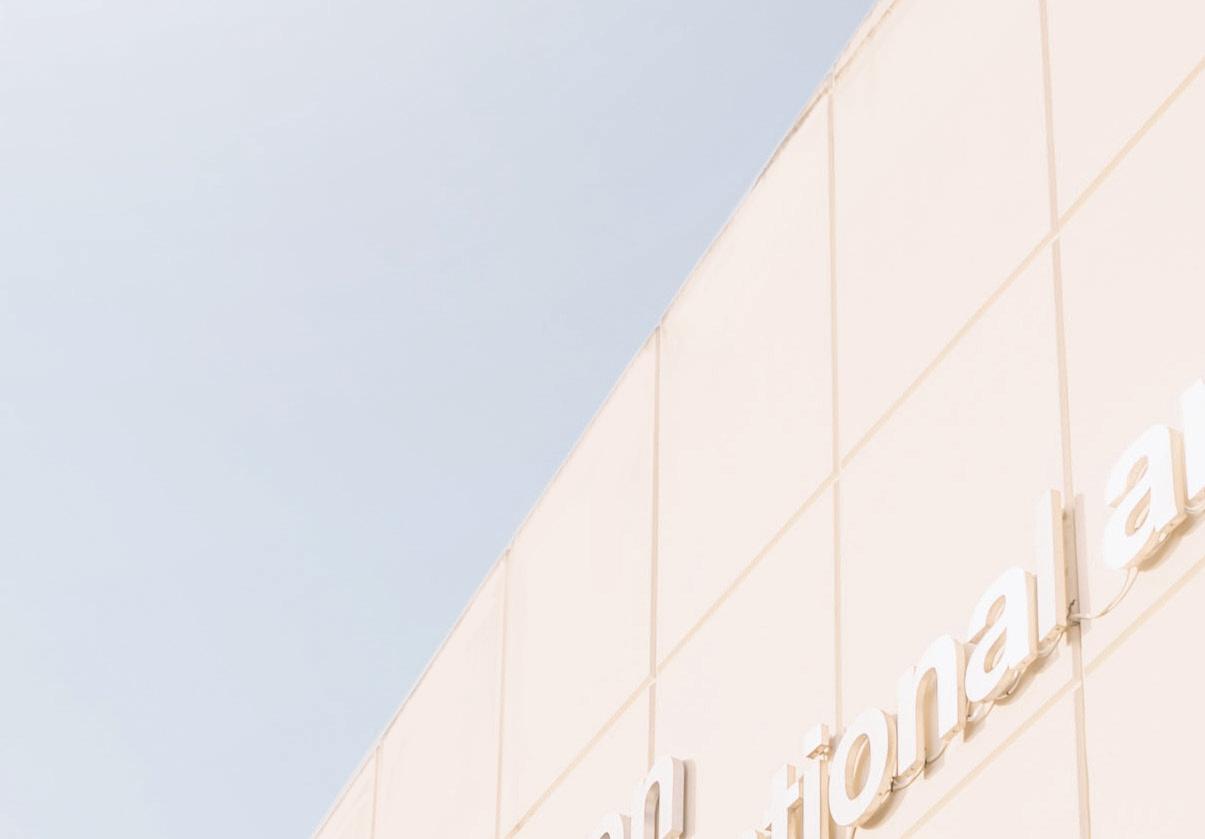
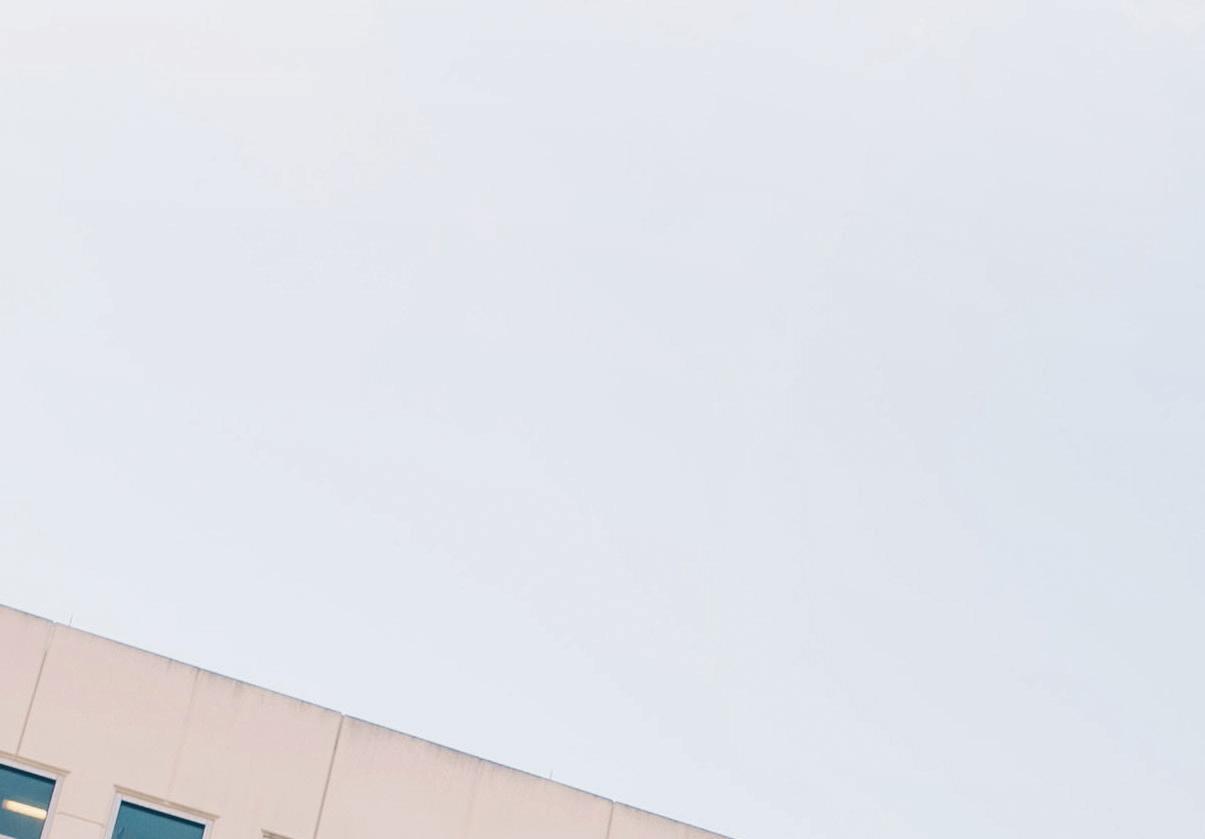

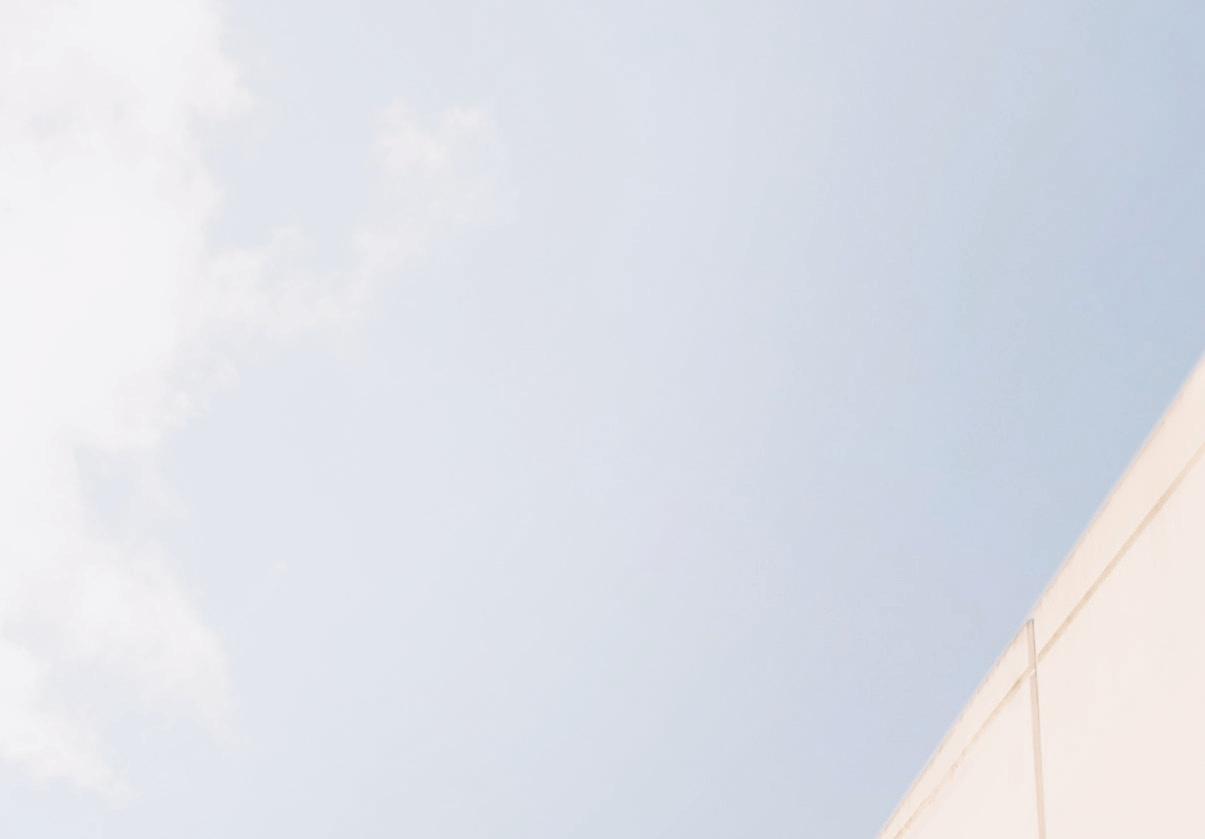

6 | SPRING 2022
Members of FIU’s perennially Top 5 Model United Nations team in front of the Steven J. Green School of International and Public Affairs, which in 2022 expands to a soon-to-be-completed, 80,000-square-foot second, adjacent building
INNOVATIVE, MULTIDISCIPLINARY APPROACH

 — JOHN F. STACK JR., FOUNDING DEAN
— JOHN F. STACK JR., FOUNDING DEAN
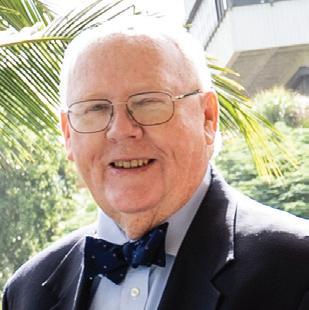
The Steven J. Green School of International & Public Affairs has been named a full member of the Association of Professional Schools of International Affairs (APSIA), making it the only university in Florida and the youngest in the United States to achieve the prestigious designation.
Only 40 institutions worldwide hold membership in the association, which brings together the leading graduate schools of international affairs worldwide to improve global affairs education and advance international understanding. FIU now stands alongside Georgetown University’s Edmund A. Walsh School of Foreign Service, Harvard University’s John F. Kennedy School of Government and Sciences Po's Paris School of International Affairs.
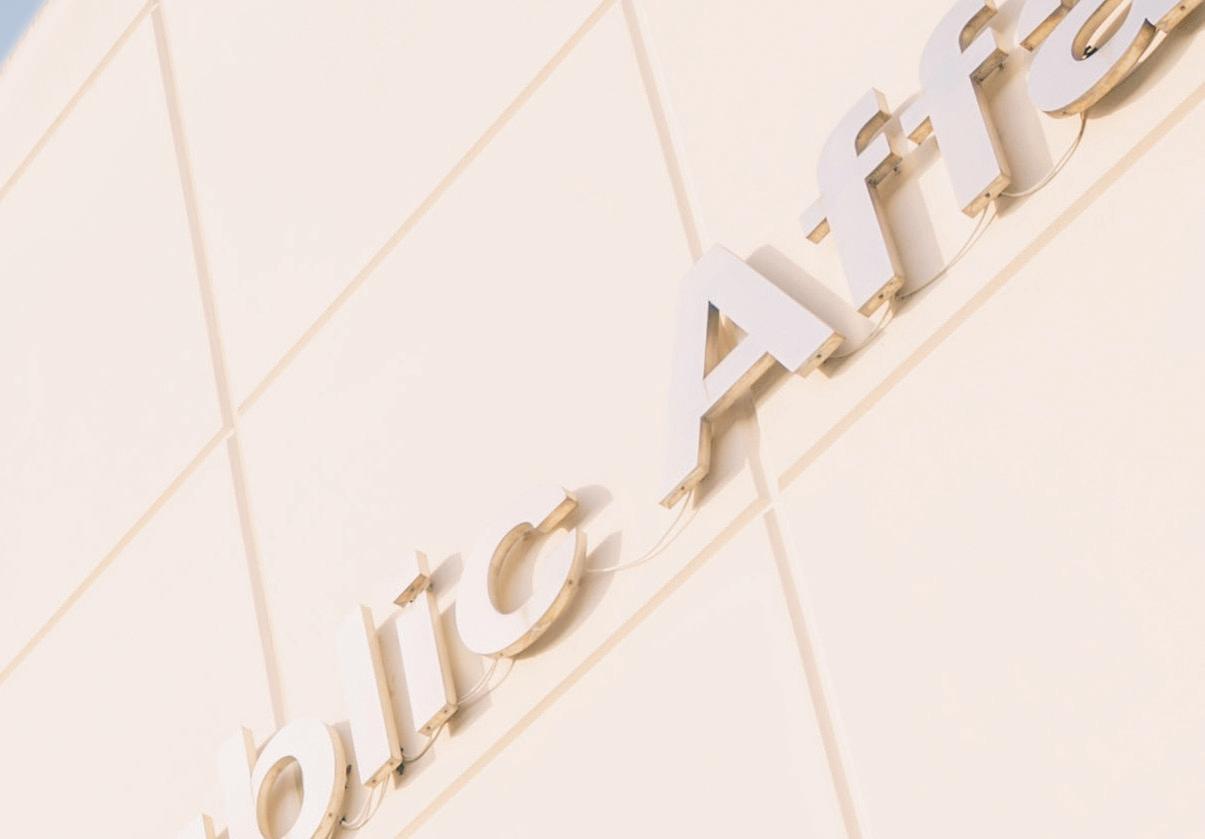
“Recent global events show how important international dialogue is,” says Steven J. Green, a former ambassador and the benefactor who invested in the school that now bears his name. ”FIU and the Green School are preparing our students to be the global leaders and change makers of tomorrow who inspire and guide us in building a more peaceful and prosperous world.”
FIU’s quick rise to membership speaks to an intentionality that predates the formal creation of the Green School as a freestanding college in 2008.
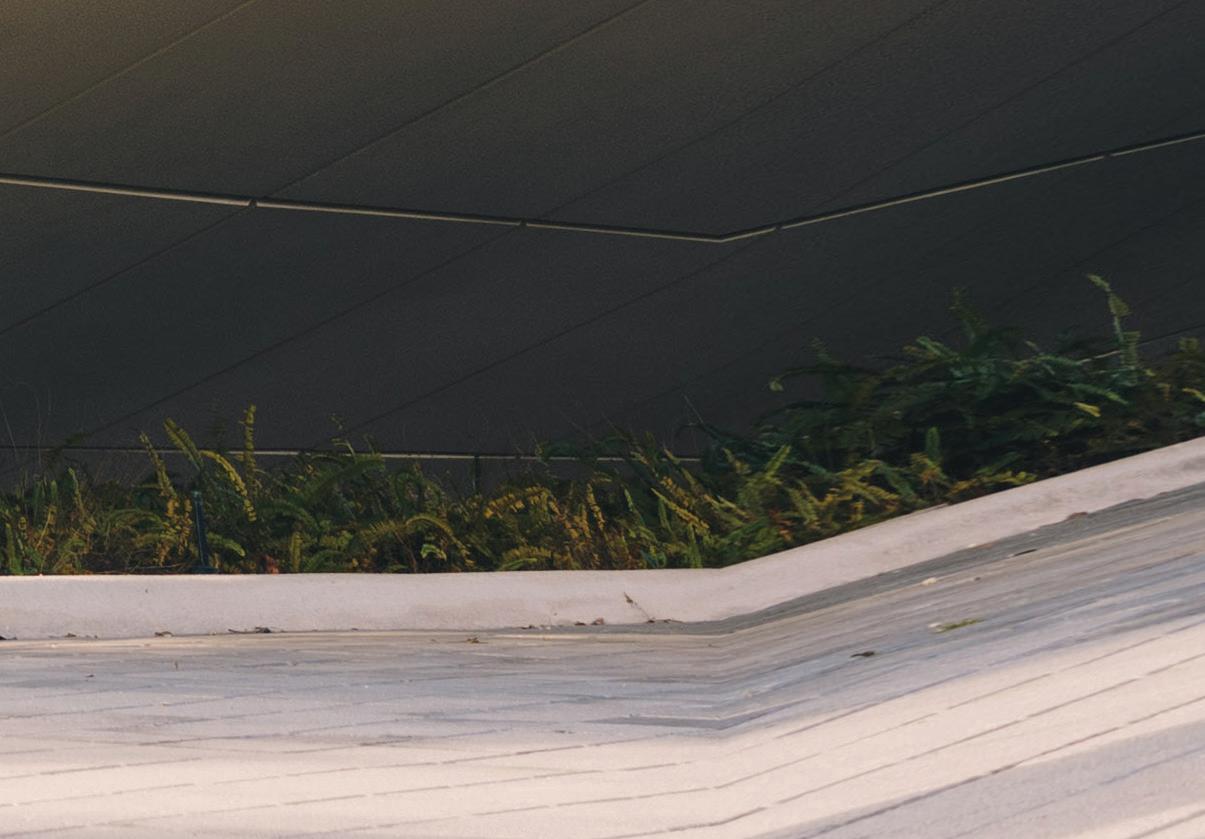
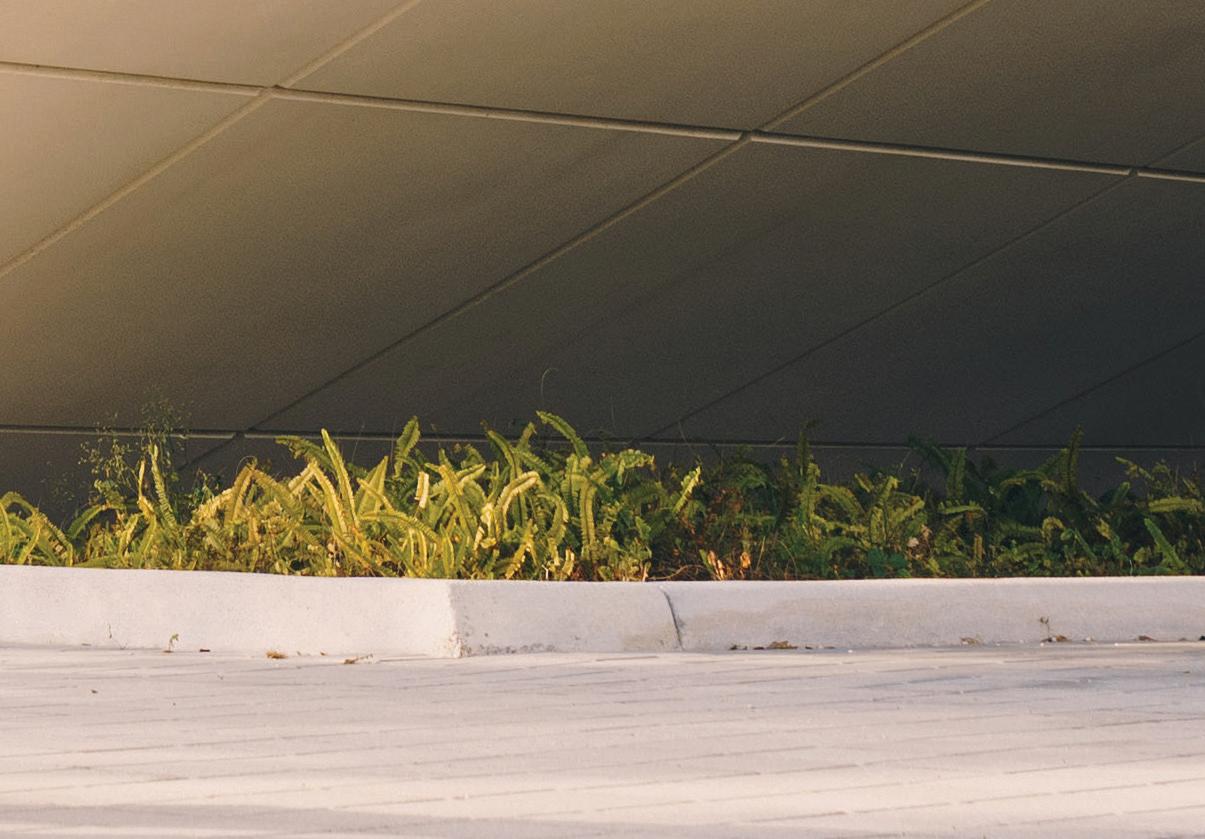
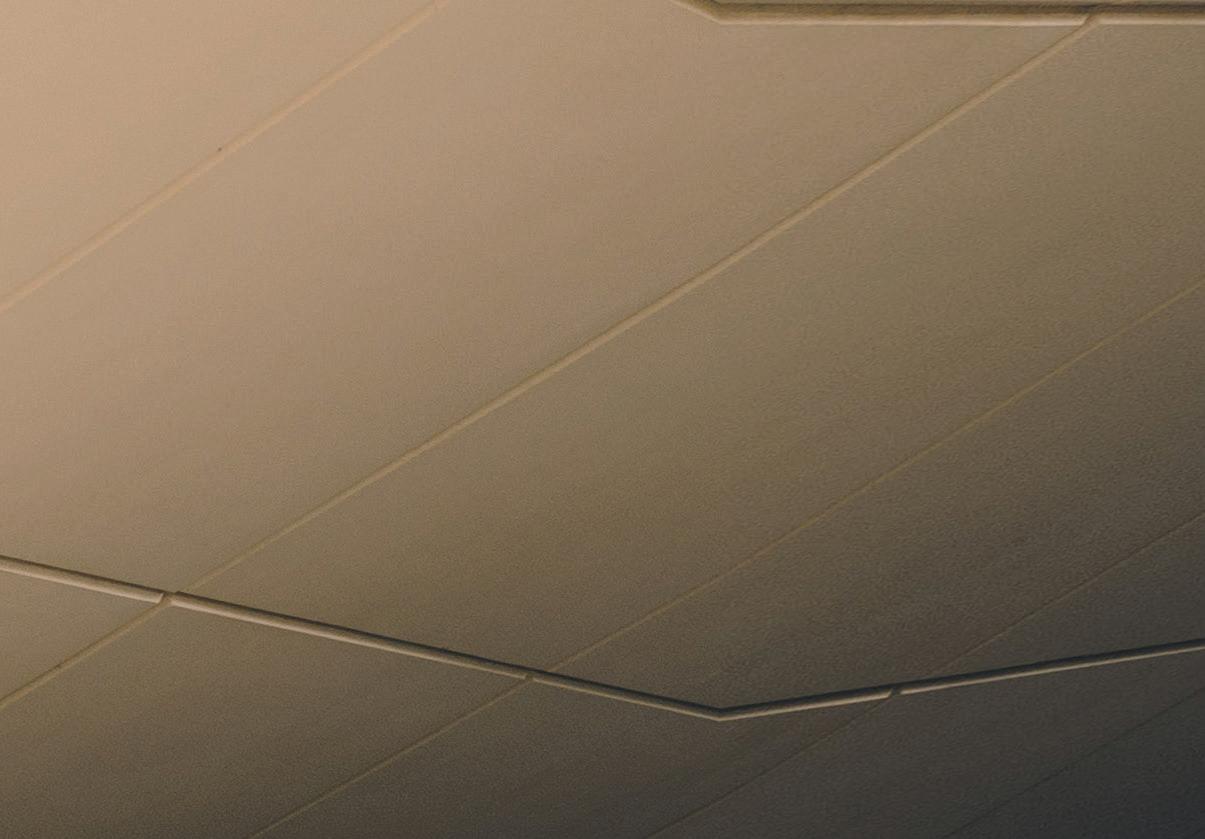

“What’s really special about this election is the fact that we are a very young school,” says Shlomi Dinar, an associate dean who guided FIU’s membership application through the rigorous process. He attributes the success to the work of expert faculty, many of whom are active within the 17 centers, institutes and programs housed within the school.
“These are faculty who are not only known in their fields,“ Dinar says, ”but also faculty who have gotten high honors
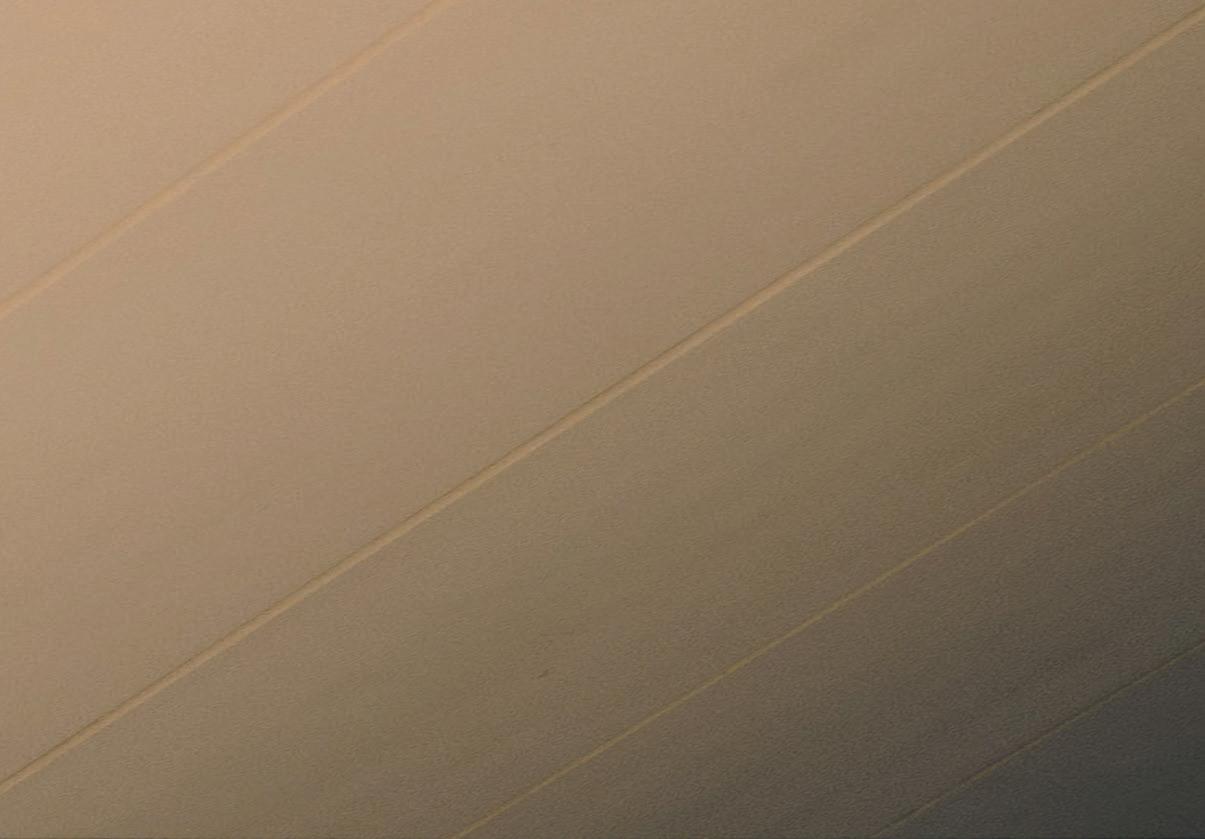
outside of FIU, have been recognized by disciplinary societies and at the same time have engaged in very robust research.”
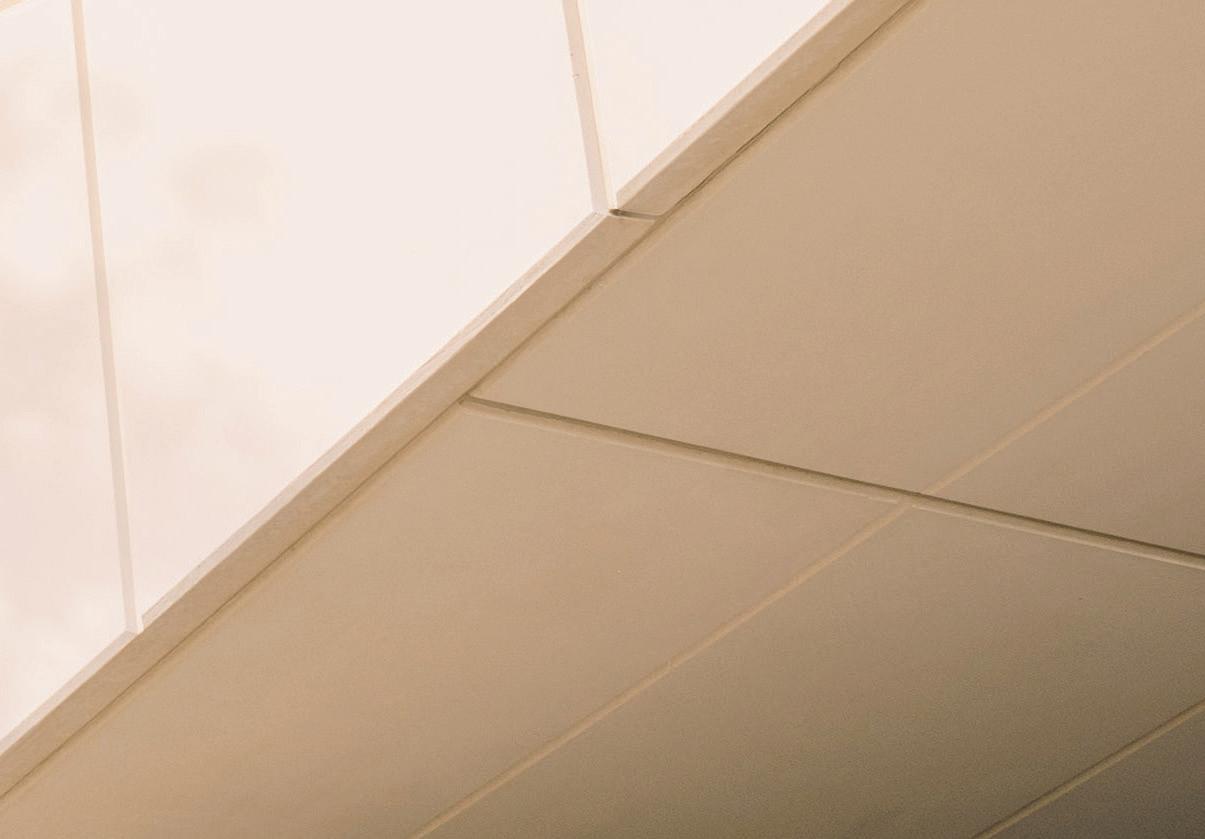
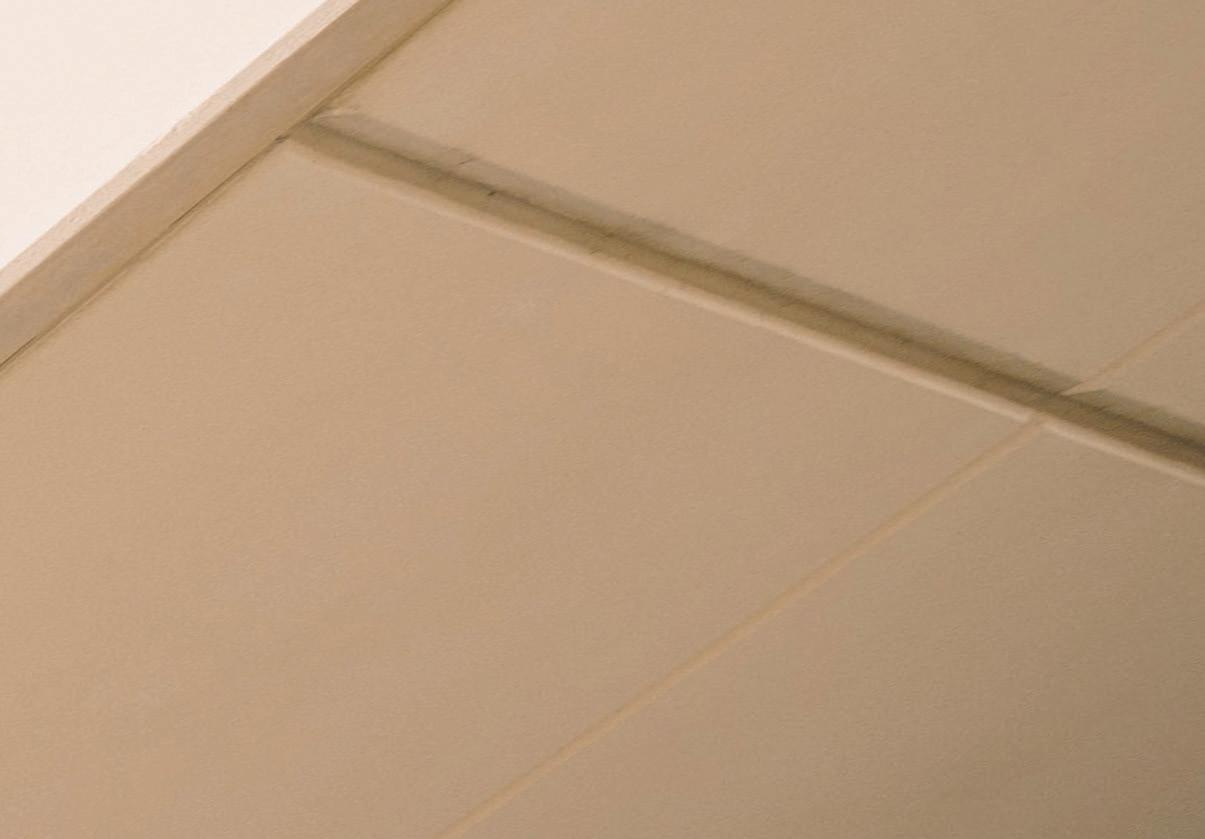
Funding from the U.S. Agency for International Development (USAID), the National Science Foundation and the National Institute of Justice has increased over the years. Scholarly studies in top journals have drawn attention to the school for its policy-oriented work. And notably, several former government officials have joined the faculty in recent years, among them a president of Costa Rica, a UN ambassador and a U.S. assistant secretary of state.
Students benefit by learning from cutting-edge researchers and former leaders with experience in dealing with real-world problems. Many graduates go on to secure high-level positions within government, nonprofits and the private sector.

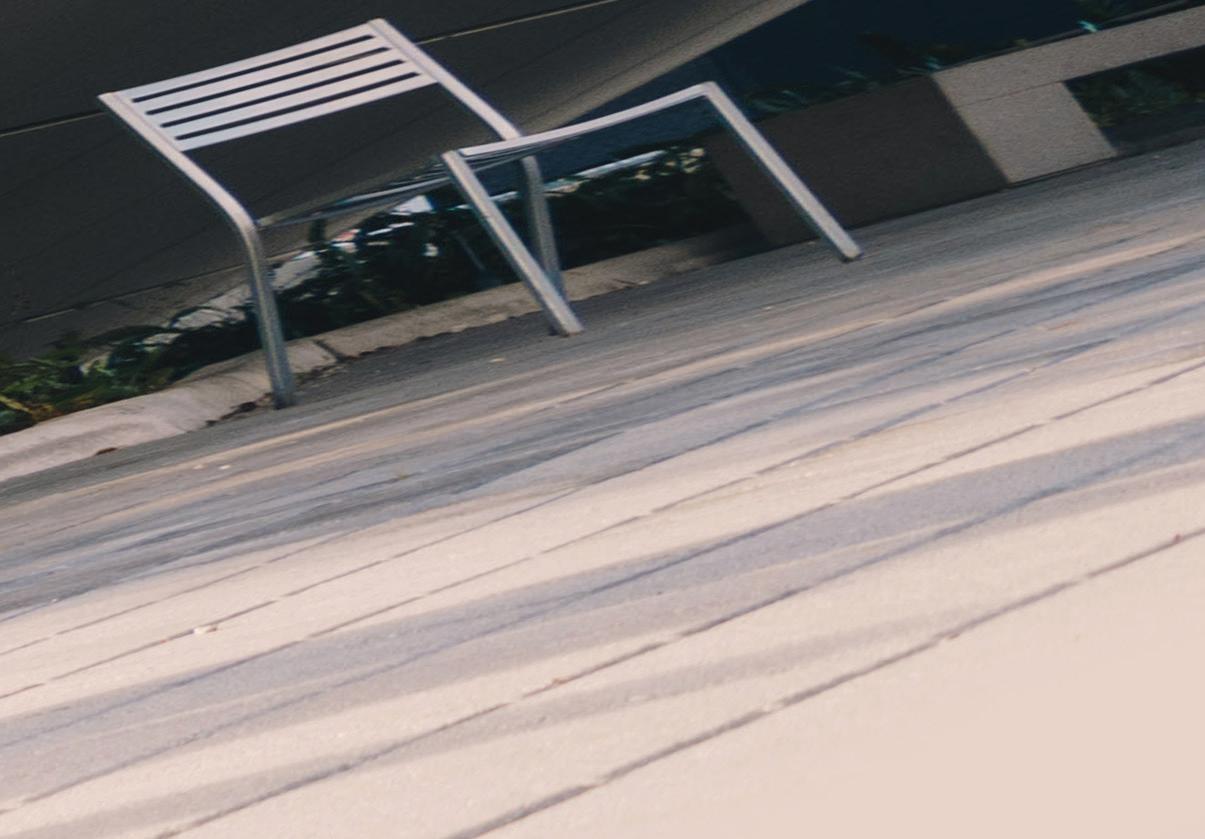

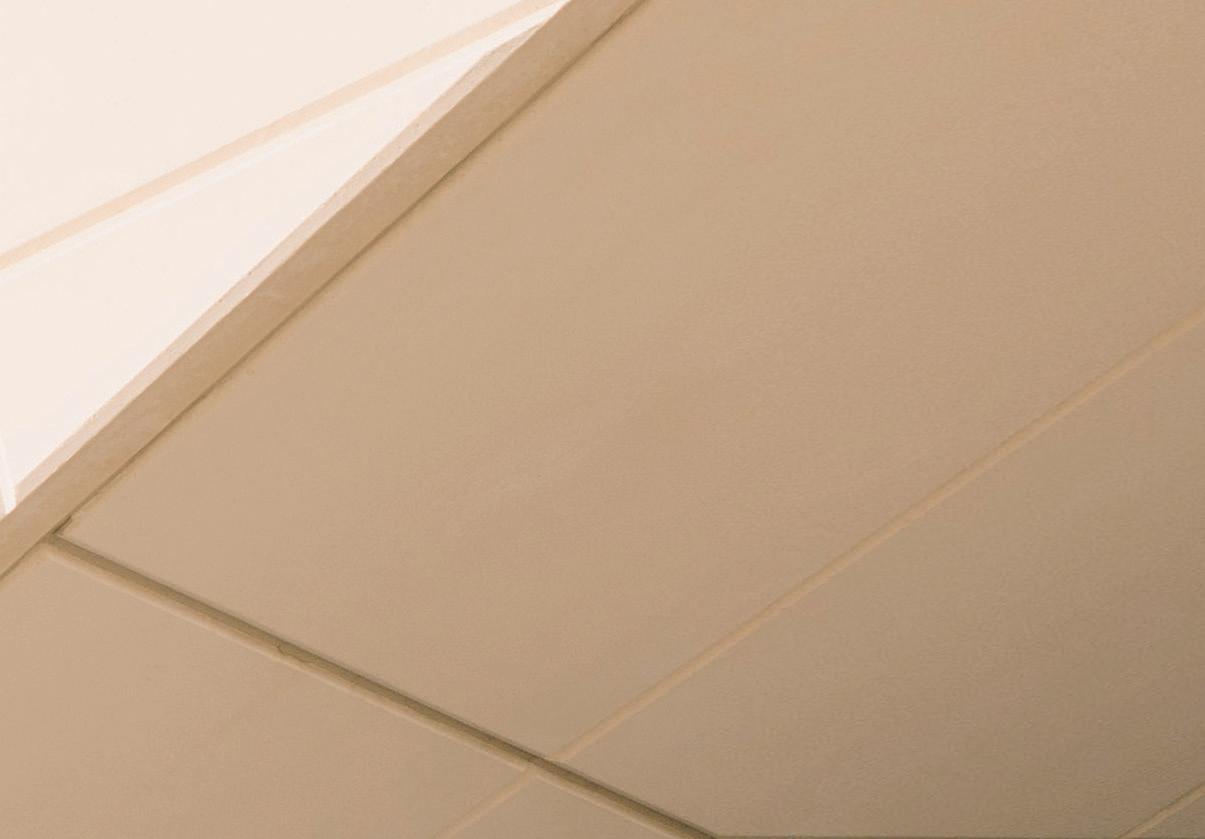



Ana Rosa Quintana ’11, MS ’13 earned bachelor’s and master’s degrees from the Green School and currently serves as a professional staff member for the Foreign Affairs Committee of the U.S. House of Representatives. She appreciates both the classroom instruction she received while on campus and the ongoing support of some of her most valued professors, among them Eduardo Gamarra, an expert on Latin America and the Caribbean who conducts research and teaches in the areas of security, democratization and elections.
“He had his own views and that’s great, but he never tried to force you to adopt them,” Quintana says of Gamarra, with whom she took both undergraduate and graduate courses and has since interacted with professionally during her career. “We have had a relationship for easily over a decade,” she adds, “and he’s somebody whose opinions and research I still rely on to this day.” •
“OUR
TO TEACHING AND RESEARCH STANDS OUT AND HELPS PREPARE STUDENTS FOR THE CHALLENGES AND OPPORTUNITIES AHEAD.”
NEWS.FIU.EDU/MAGAZINE | 7
FIU GOES BOLDER IN WASHINGTON
The university for years has brought faculty researchers to the table with government officials and agency funders while enhancing the education of undergraduates eager to lead. Now that effort is heating up.
environment that leads to greater visibility, more opportunities for collaboration with other entities and a growing reputation as a source for leading researchers and workforceready employees.
Todd Crowl, a professor of environmental ecology and director of the Institute of Environment, says the university’s presence in the capital over the years has amounted to a game-changer.
This summer, FIU expands to a new 5,000-square-foot executive briefing center on Capitol Hill to provide academic space for students and showcase the university's research impact.
FIU has built a network of influence in the nation’s capital that has produced phenomenal success. For decades, the university has connected with legislators in numerous, productive ways. Then in 2016, it established an all-important physical presence in the U.S. seat of government that has helped secure nearly $70 million for work in critical areas, among them the development of antenna technologies for use in defense systems. And just this past year, FIU was first among institutions of higher education requesting millions in direct appropriations from Congress.
FIU's strength in Washington, D.C., lies in the university’s ability to leverage a wide circle of leaders and officials from the public, private and non-profit sectors as well as FIU alumni who have stepped into positions of authority. The synergy makes for a dynamic
“We’re building a network, and, when it comes to federal research funding, that network starts in D.C.,” he says. “Being there opens doors that you don’t open through email or phone calls.”


On the heels of solid accomplishments, the university is claiming a new and expanded location just steps from the Capitol building to double down on efforts to showcase FIU as a go-to solutions center while providing transformational leadership opportunities for students.
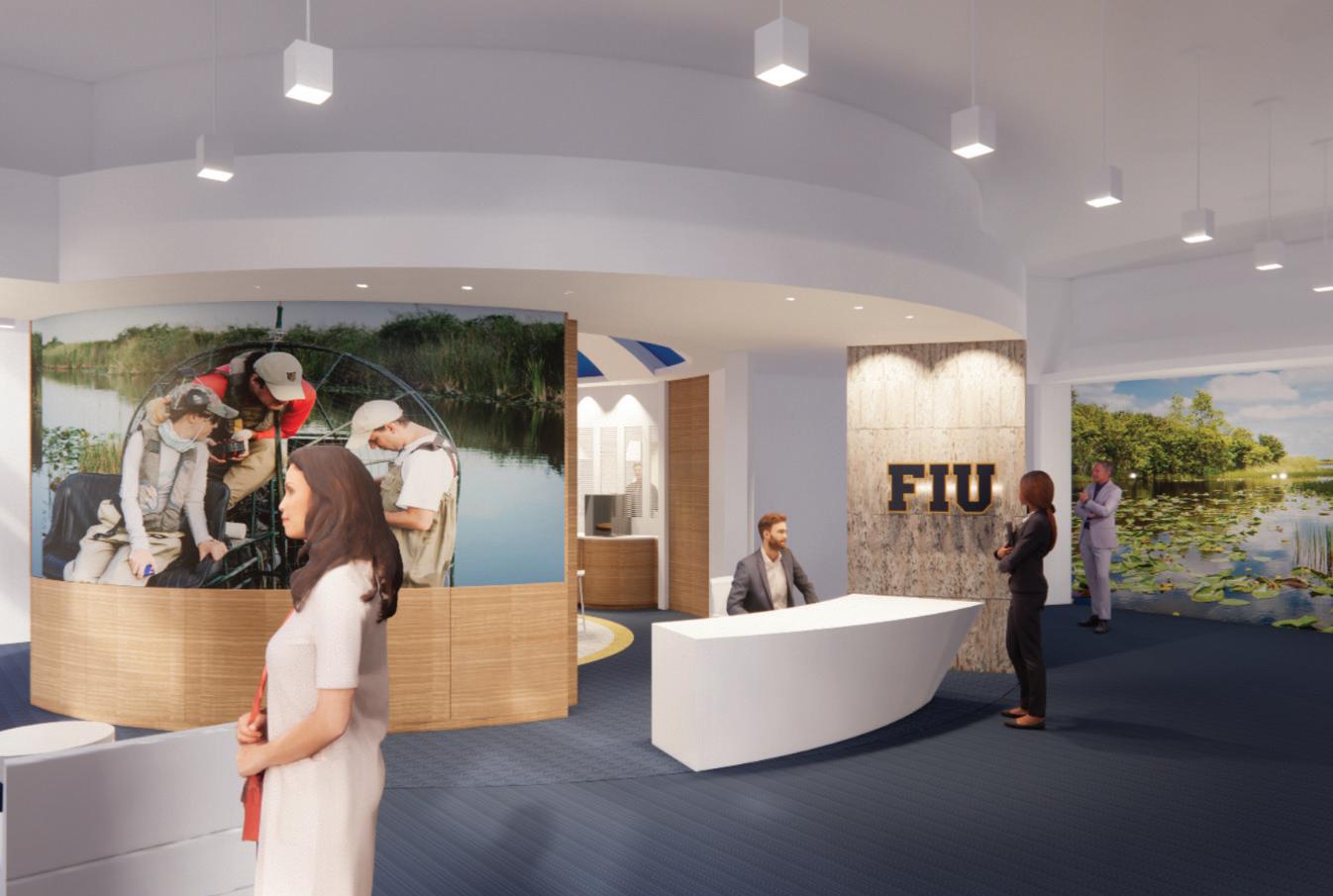
The soon-to-open space, known formally as “FIU in DC,” will house a seminar room and classroom, a high-tech “decision theatre” in which researchers, policymakers and the business community can meet about the most important topics of the day and a media lab from which to share live programming.
Faculty will utilize the facility as a briefing center to support agency collaboration and host executive education conferences with partners around the country looking to learn
about the latest advances coming out of FIU research centers in Miami, be they related to the building of resilient coastal infrastructure or community health issues.
“This is going to be an incredible platform for our preeminent researchers to assert leadership,” says Carlos Becerra, associate vice president of government affairs. “Their cutting-edge research will truly be on display.”
Hundreds of students annually are invited to visit Washington, D.C. — with expenses covered by FIU’s student government — for three-day educational sessions and formal introductions to government officials, agency representatives and others in a bid to deepen their knowledge, secure internships and, eventually, land jobs.
The new 5,000-square-foot Washington, D.C., home will allow FIU to impact even more young people. Professors across the university are formalizing plans to bring students to the capital for semester-long courses, and journalism majors will move their existing capital bureau into the space.
“If you’re even remotely thinking of doing anything related to politics, international development or simply want to work in the capital, FIU in DC is the place to go," says Sabrina Pecorelli '21, who majored in political science and international relations and now works as a program associate at the International Republican Institute. "They have this way of connecting you with organizations, internships and employers that will be a good fit for you." •
8 | SPRING 2022
THE TALENT LAB
100+ student internships, including 50 on Capitol Hill
1200+ participants in careerfocused “fly-in” seminars aimed at connecting students to job opportunities
ALUMNI INFLUENCE
4,000 Panthers working in the area, including 50 Congressional staffers, White House appointees (among them Assistant Director for Strategic Health and Cancer Science Henry Rodriguez ’88) and others in positions of power (such as Senior Vice President and Chief Economist of the World Bank Carmen Reinhart ’75)
AGENCY PARTNERSHIPS
15 key federal agencies looking to FIU for solutions in a variety of areas, among them the National Oceanic and Atmospheric Agency seeking storm surge modeling, the Federal Highway Administration seeking new bridge technologies, the Environmental Protection Agency seeking water quality data and the U.S. Agency for International Development seeking diverse talent
IMPACT IN WASHINGTON, D.C., THROUGH PEOPLE, POLICY AND PARTNERSHIPS

(2020-2021)
RESEARCH ADVOCACY
$74.3M in appropriations increases, secured grants and earned earmarks through faculty advocacy and programming in Washington, D.C.
POWER 65 programs presented to policymakers by faculty experts in areas of FIU preeminence such as water quality, the future of tech talent and brain health
CONVENING
NEWS.FIU.EDU/MAGAZINE | 9




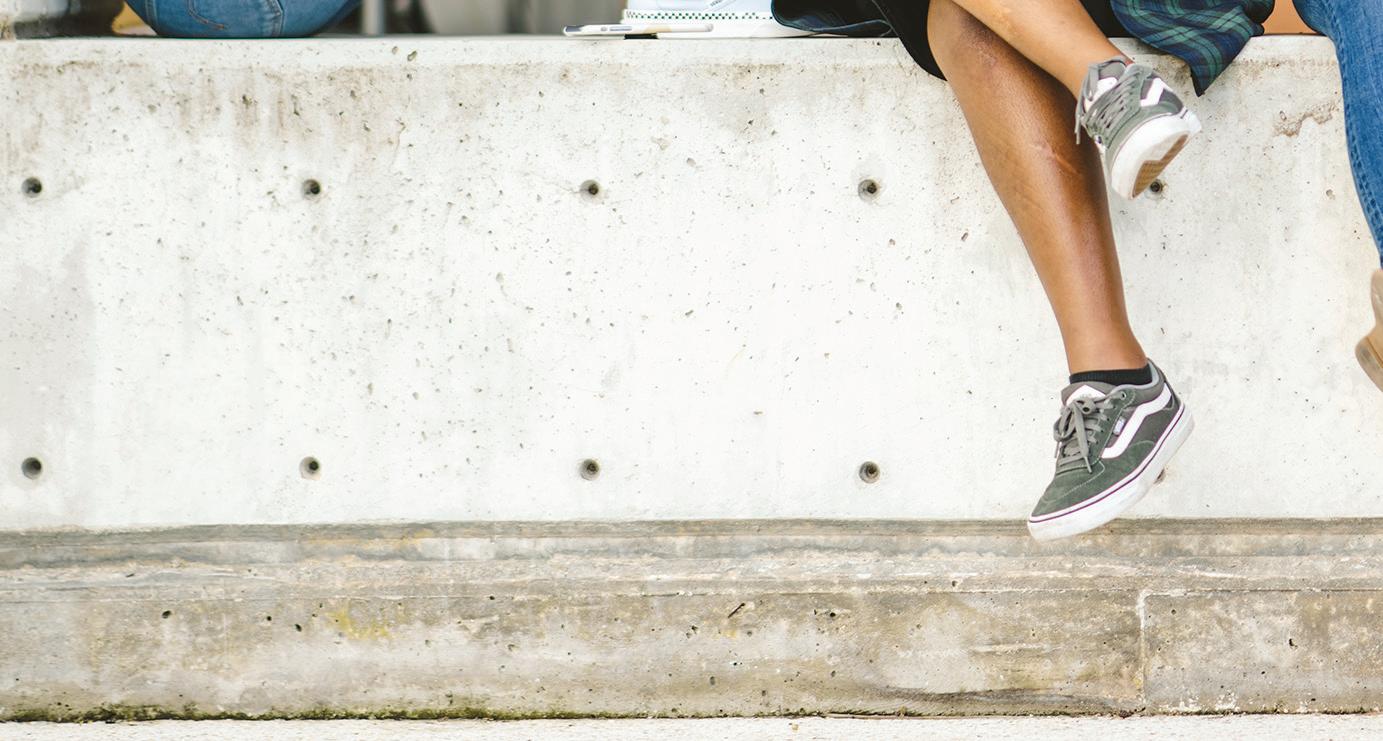

HOW DOES A PUBLIC RESEARCH UNIVERSITY WITH THE LARGEST MINORITY ENROLLMENT IN THE COUNTRY ANNUALLY GRADUATE THOUSANDS OF DIVERSE STUDENTS WHILE MAINTAINING EVERY STANDARD OF EXCELLENCE? NATIONALLY RENOWNED PHILANTHROPIST MACKENZIE SCOTT HAS BET $40 MILLION ON FIU’S WINNING FORMULA. CHALLENGE CHALLENGE 10 | SPRING 2022
ACCEPTED ACCEPTED
When Andrea Ramírez Torres walked across the outdoor commencement stage in December of 2021 — wearing a traditional cap and gown in defiance of the 80-plus-degree temps hanging over FIU’s oncampus football stadium — few considered the barriers that could have kept her down, among them the hurricane devastation in her native Puerto Rico that forced her family to South Florida in the fall of 2017.
Heartbreak and financial struggles aside — FIU helped from a tuition fund established specifically for storm survivors — Torres applied to and excelled at the university. She joined the Honors College, earned a prestigious research award for work she initiated in a campus forensic lab and has since presented the latter to industry and academic experts at conferences.
With dual bachelor’s degrees in biochemistry and natural and applied sciences in hand, Torres joined 15,000 others who graduated from FIU in 2021. She came out of a 58,000-strong student body that is 48% bilingual, nearly 50% eligible for need-based government Pell Grants and 86% minority. And she found her way at a 49-year-old university that these days competes head-on for federal research grants and top faculty at institutions decades, if not centuries, older.
59% Pell Grant recipients
Special programs and targeted support have helped students of all backgrounds excel and resulted in FIU’s four-year graduation rate more than doubling over the past seven years.
BIRTH OF A RESEARCH POWERHOUSE
Much like Miami itself, FIU has never dwelled on what it might lack or how outsiders might look down at its very existence. Instead, the once upper-division-only institution, early on considered by legislators simply an extension of the local community college, has defied the odds and shocked the naysayers. “Challenge accepted” became something of a mantra as the university rapidly expanded.
Despite an uneasy initial relationship with state government in Tallahassee — which notably took years to give the go-ahead to establish a public university in Florida’s largest metropolitan area — FIU has never looked back. In the 1980s and ’90s, under one of the country’s first Hispanic presidents, the university fought tirelessly to do and offer
more, always with the backing of students and alumni, who often convened en masse in the state capital to lobby leaders. Big victories arrived with the right to open law and medical schools. The legislature has been a champion of FIU ever since, with the body choosing in recent years to fund the construction of key academic buildings and provide recurring funds for the university's strategic initiatives.
And then, in 2015, as a result of the scholarship of an expanding and hardworking faculty, arrived the holy grail: designation as a Carnegie Research 1 (R1) university, or “very high research activity,” a measure of faculty investigation and innovation that puts the university in the company of just 3% of U.S. institutions, some of them founded hundreds of years ago.
Of the 2021 graduates who started as freshmen at FIU and earned degrees within four years, nearly 60% had received federal fi nancial aid in the form of Pell Grants, typically awarded to those whose families annually earn $20,000 or less. NEWS.FIU.EDU/MAGAZINE | 11
In 2020-2021, FIU recorded research expenditures of $237 million. The university is home to hundreds of millions of dollars of federally sponsored projects in areas such as public health, engineering and the environment. Research funding supports the work of some 4,500 faculty — an increasing number of whom have been elected to membership of the National Academies — and extends hand-on opportunities to both undergraduates and graduates.
UNPARALLELED IMPACT
The fourth largest university in the nation, FIU serves as a gateway to upward mobility on a scale no other institution in the country can match. FIU is No. 1 in awarding bachelor’s and master's degrees to Hispanic Americans and among the top 10 in awarding undergraduate degrees to African Americans. Many are the first in their families to attend college.
Even as FIU attracts students from around the country, and the world, for its top-rated programs in marine biology, international business and hospitality management, among others, the majority come from the immediate area. Eager to earn an education that leads to rewarding positions in their chosen fields, graduates take jobs all over the world while many find work within the region itself, a hub for more than 1,100 multinational firms and a magnet for a growing number of startups.
“There are not many R1 universities that remain so keenly aware of their community and work so hard to support their students,” says Andréa Rodriguez, director of urban initiatives at the Association of Public and Land-Grant Universities.
And none of it is by chance. “We have created evidence-based approaches to help our students thrive, complete their degrees and launch successful careers,” explains Interim President Kenneth A. Jessell. “With great intentionality, we have taken steps to build their knowledge and skills as well as leadership qualities while catalyzing their entrepreneurial spirit.”
MAKING THE GRADE University leadership collectively made the decision to continue to educate a broad spectrum of students — rather than pivot exclusively to increasing research capacity, a model adopted by other schools — and expend new efforts to see them to timely graduation.
Known for turning the impossible into the inevitable, FIU got to work. Beyond hiring additional advisers to serve throughout the university's nonstop, year-round schedule, significant innovations were implemented.
Some 20 prerequisite courses with overly high failure rates were redesigned to incorporate greater engagement and interaction with the goal of improving pass rates. A peer “learning assistant” model that hires high-achieving undergraduates to aid in certain science and math courses made possible individualized help on the spot. A STEM “transformation institute” supported more than 12,500 undergraduate STEM majors and developed research-based best practices to prepare them for successful careers. A math-mastery lab opened as an alternative to traditional lecture learning, with peer mentors guiding the way. Programs to spur first-gen minority students to consider and prepare for graduate school
were ramped up. Completion grants were distributed to reduce the burden on lowincome learners to maintain long working hours as they neared graduation. “Active learning” classrooms, easily reconfigurable for small-group collaboration, began dotting the campus.
And the payoff has been huge: Today, students who qualify for federal scholarship funds — typically those whose family income falls below $20,000 — represent nearly half of enrollment but the largest percentage of those who graduate in four years.
Those results have turned heads not only in the state, which in 2021 named FIU No. 1 among the 12 institutions in Florida’s public university system according to performance-based metrics, but caught the eye of audacious philanthropist MacKenzie Scott. She and her husband last year made an unsolicited donation of $40 million to the university, a recognition of the combination that makes FIU a rarity in higher education: excellence and breadth in research, high diversity in the student body and enviable academic accomplishment.
“Higher education is a proven pathway to opportunity,” Scott wrote at the time, explaining that she chose to support “institutions successfully educating students who come from communities that have been chronically underserved.”
Interim President Jessell called the gift “rocket fuel” to launch young people to achieve their full potential, as the money will fund new and expanding programs. “At FIU, we are defying gravity,” he says. “We are investing in the success of our students and, ultimately, our community.” •
12 | SPRING 2022
PROFILES IN








EXCELLENCE




A2022 finalist for the Rhodes Scholarship, representing his native Jamaica, Bentley Walker has captured attention for embracing a big goal: to promote unprecedented economic development and prosperity in the Caribbean.
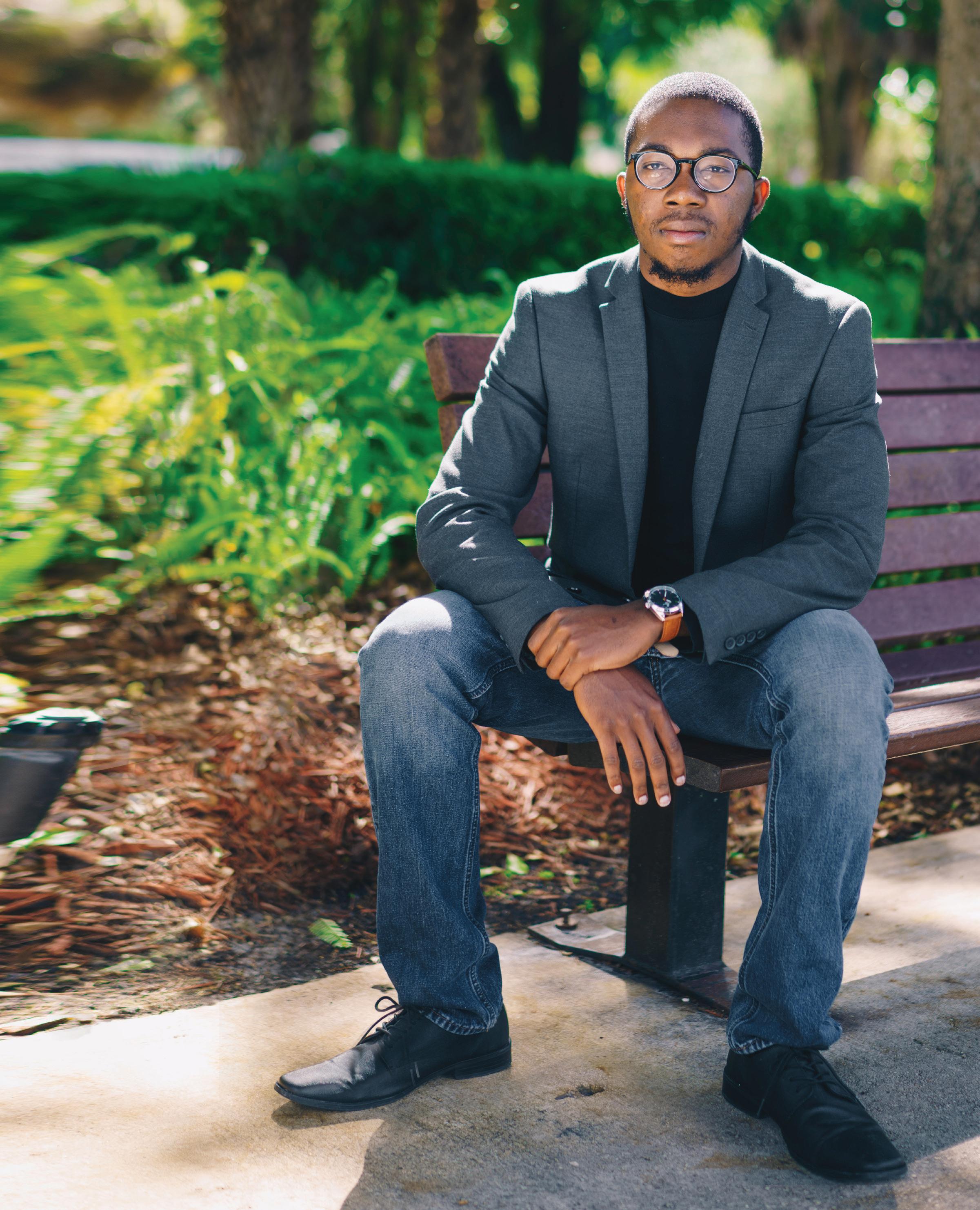
The lofty aim infuses every aspect of the young man's life, from pushing him to study French and Dutch as complements to the Spanish he has already mastered — the better to communicate with the widest swath of the region’s population — to starting a nonprofit dedicated to building a support network for the islands’ small businesses. Already he has created an online marketplace, soon to launch, and is helping another student establish a Haitianowned enterprise around rice production. The latter is one step, he says, to building back a formerly thriving industry now lagging behind imports and controlled by foreign firms.
Eyeing an MBA, the Honors College student distinguishes between finding ways to help others meet basic needs through viable work and, more critically, watching them thrive by reaching their creative and entrepreneurial potential — the latter making possible the kind of success he and fellow-Caribbean ex-pats have found in the United States.
“I want to see people fulfill their dreams. People shouldn’t have to leave their homeland just to survive or realize their goals. This has really impacted my heart and my soul.”
GLOBAL SCHOLAR ON A HEARTFELT MISSION NEWS.FIU.EDU/MAGAZINE | 13
BREAK
A DAZZLING OUTPOST FOR BIOMEDICAL SCIENCE HIGHLIGHTS A NEW APPROACH TO ACCELERATING DRUG DEVELOPMENT
FIU has strengthened its research capacity with a newly outfitted building that completes a dynamic triangle dedicated to investigative medicine. The Center for Translational Science (CTS) is part of a complex in Port St. Lucie, Florida, that also includes a hospital and separate research facility both run by Cleveland Clinic.
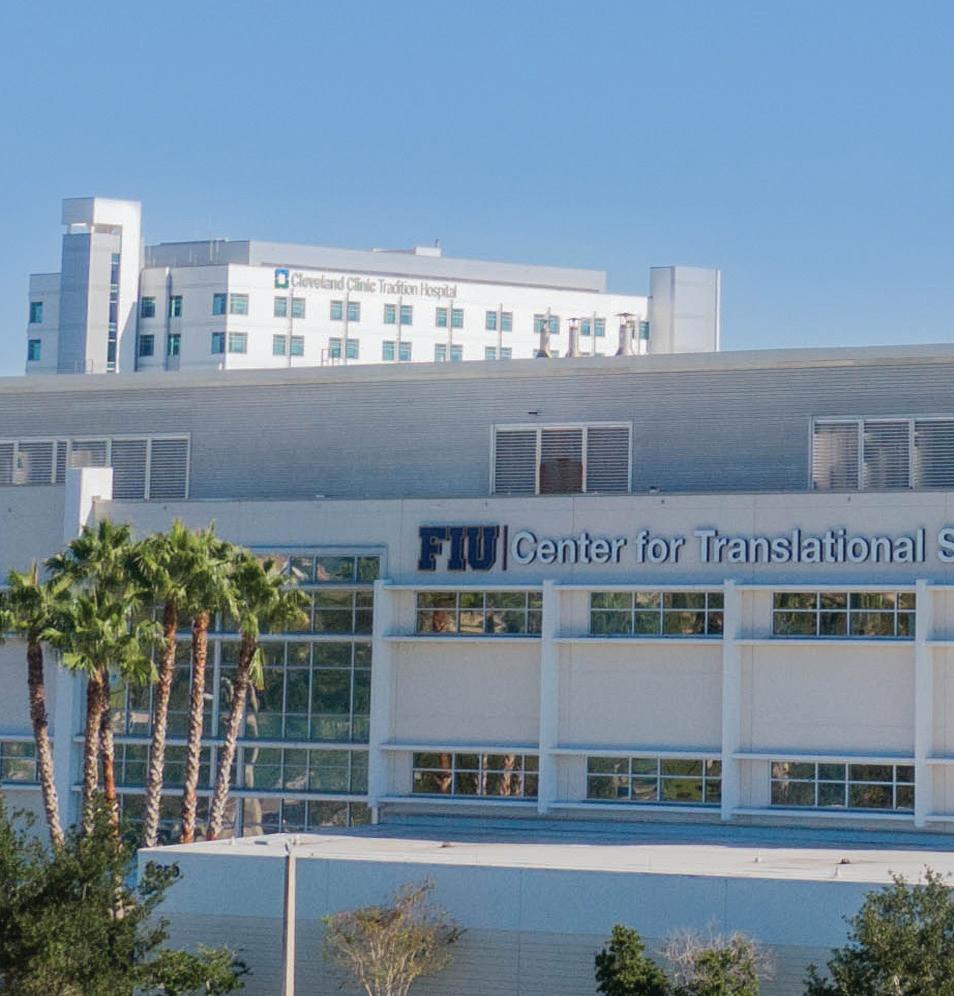
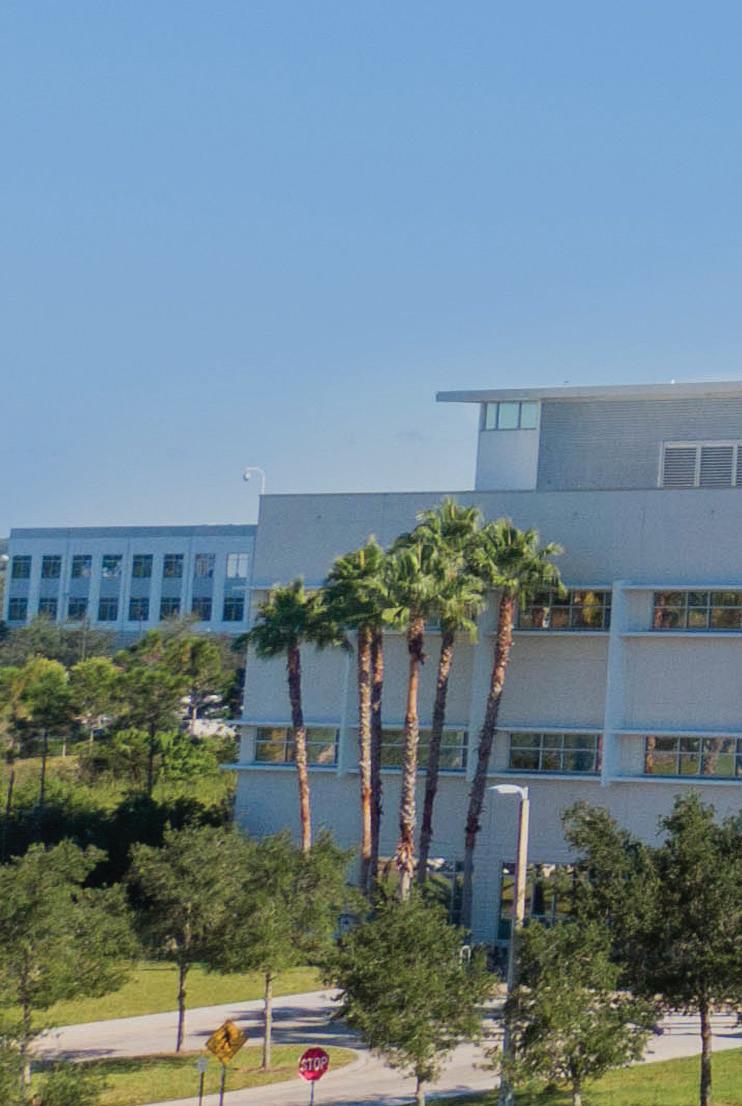
A two-hour drive from the university’s main campus, the CTS serves as a natural extension of FIU’s research prowess at a time when wider partnerships have grown increasingly important. It represents an exceptional opportunity to work creatively, and smarter, in support of scientific advances to more quickly make a difference in patients’ lives.
The new space lays the ground for a continuum that begins in the lab and includes cooperating with other institutions as well as companies that can run with the resulting discoveries.
ING SILOS


“The days of somebody being able to work in their lab and do everything under one roof are gone,” says Stephen Black, an expert in pulmonary vascular disease and the director of the center. “The fundamental thing is to be willing to collaborate.”
Black, formerly chief of translational and regenerative medicine at the University of Arizona medical school, looks to the lightning-fast COVID-19 vaccines rollouts as examples of productive synergy that must be applied to cure cancer, Alzheimer’s, lung disease and more. Developing a new pharmaceutical typically takes a decade or longer, he explains, “so the potential impact on human health care is fantastically high here.”
Experts in areas such as brain injury and aging, inflammation and infection, and environmental medicine are on board, and the four-story building will eventually house 300 scientific personnel.
NO MORE TURF WARS

At the core of the new approach: collaboration among investigators across projects and disciplines. If secrecy and closed doors ruled in the past, openness and interactivity now reign.
Nowhere is that more evident than in the laboratories themselves, each of which features approximately 5,000 square feet to accommodate multiple research teams and adjacent rooms filled with specialized equipment. Black purposefully tore down walls and put folks with overlapping interests in proximity of one another to encourage cross-pollination.
Research activity there complements endeavors within FIU's Herbert Wertheim College of Medicine and Robert Stempel College of Public Health & Social Work.
LOOKING OUTWARD


FIU likewise works side-by-side with outside collaborators, such as the Cleveland Clinic, which has a hospital and research institute each within a few walking minutes of the CTS. All three facilities have a common goal

14 | SPRING 2022
of saving lives through groundbreaking discoveries and innovation.
Michaela Gack, scientific director of Cleveland Clinic Florida Research and Innovation Center (FRIC), opened in 2020, embraces the sharing of “complementary infrastructure and core facilities.” She anticipates giving FIU researchers access to the FRIC’s high-containment biological lab — a state-of-the-art facility for the study of infectious viral agents — and to a “biobank” of tissue samples. And the co-submissions of grants, emphasize a commitment to mutually beneficial relationships that put the interests of science first.
“Cleveland Clinic really has a knack for making that work,” Gack says. “That [approach] could really profit not only FIU and us but, honestly, the whole region.”
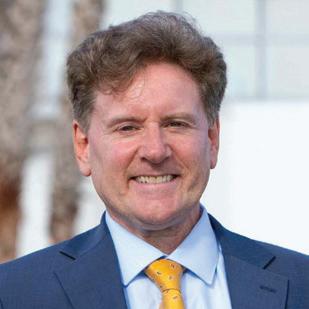
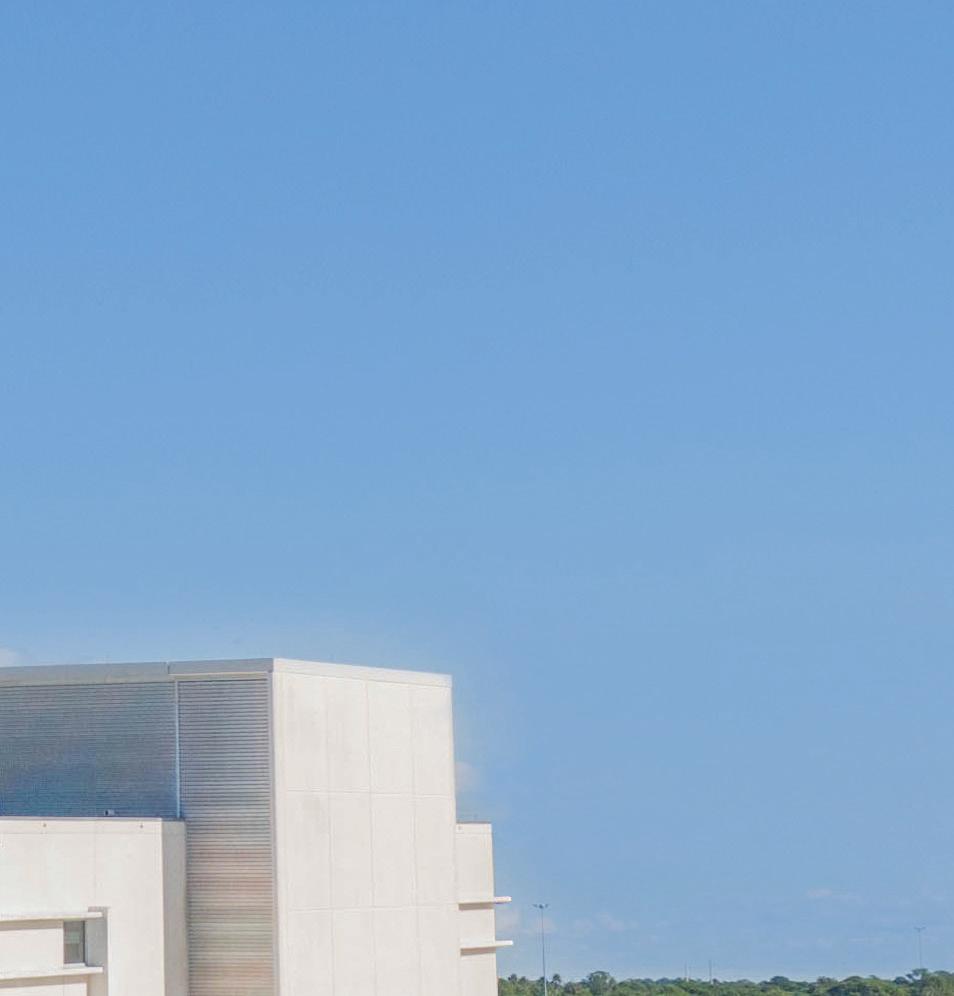
To close in on the actual delivery of lifeimpacting therapeutics, FIU is turning to business partners. While foundationalresearch funding comes primarily from the National Institutes of Health — grant totals for work at the CTS are expected to reach $45 million to $50 million annually by fiscal
year 2026 — getting to human trials and, eventually, the marketplace requires an infusion of private capital.
Ronald J. Shebuski, president and CEO of Patmos Therapeutics, a Florida biotech startup, is excited about work out of Black’s own lab that identifies new molecular “targets” involved in respiratory illnesses and for which drugs can be developed.

A former senior scientist at Merck, a former director at what is today Pfi zer and a former two-term adviser to the FDA’s Center for Drug Evaluation, Shebuski recognizes that pharma pipelines have gone dry. “There’s got to be a commercialization bent to the research,” he says of the critical need to pursue scientific inquiry to a consequential end. Together, he and Black have secured an NIH Small Business Technology Transfer grant in support of testing to validate the latter’s studies in advance of seeking investors.
THE LONG VIEW Human infrastructure remains more important than new buildings to long-term success. Educating young investigators,
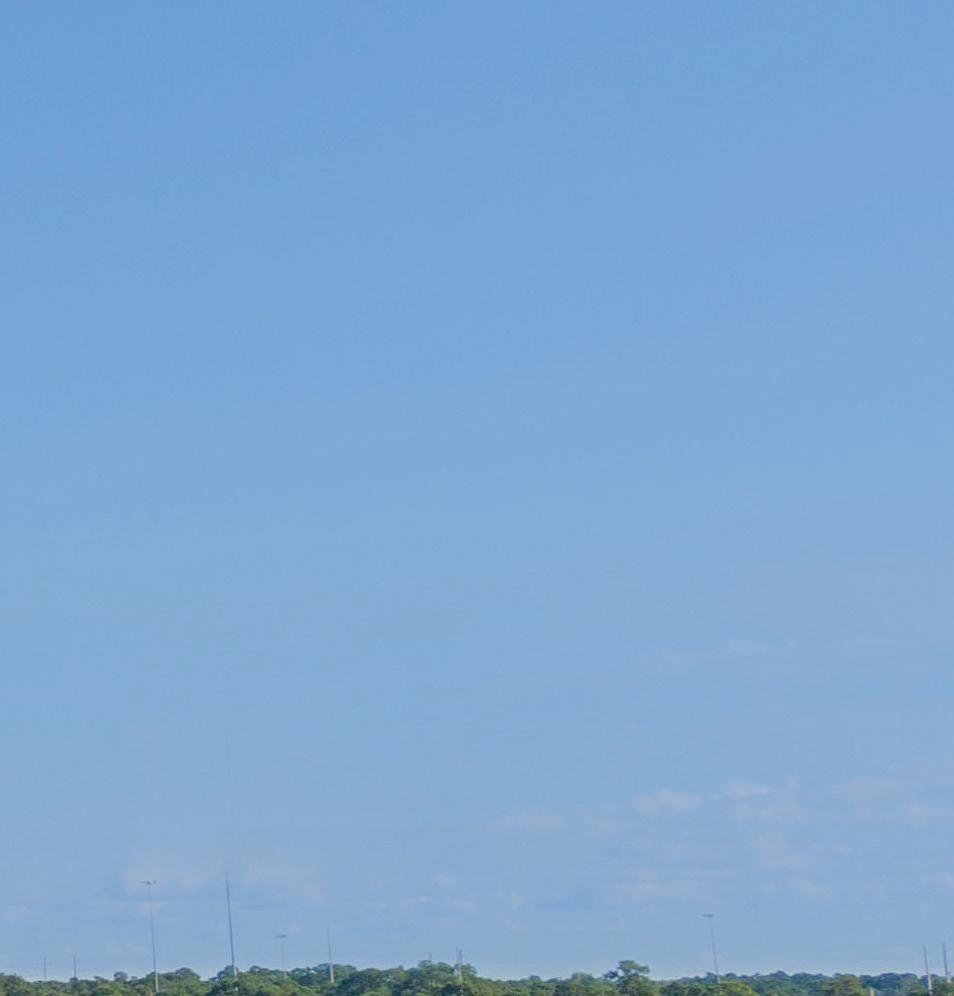
such as post-doctoral associate Alejandro Garcia Flores, will ensure that future projects reach fruition.
“It’s a very exciting opportunity for me for growth,” says Garcia, who marvels at the seamless integration of teams at CTS. “If we have an idea for an experiment, we can right away discuss it with others, especially if it’s the first time for me doing a certain [analytic procedure],” he says. “We don’t have to communicate with a far-away place that specializes in this.”
As Garcia and the others take advantage of synergies that push the pace of research, Black infuses modern momentum with oldschool integrity.
“It’s an honor to be trusted with these resources,” he says of the moving parts that comprise a brave new world in the university’s medical science exploration, “so I can leave a dynamic research environment and have, hopefully, trained people who are smarter than I am, smart people who can interact, to keep this vision going. If we can do that, then we’re going to be very successful.”
•
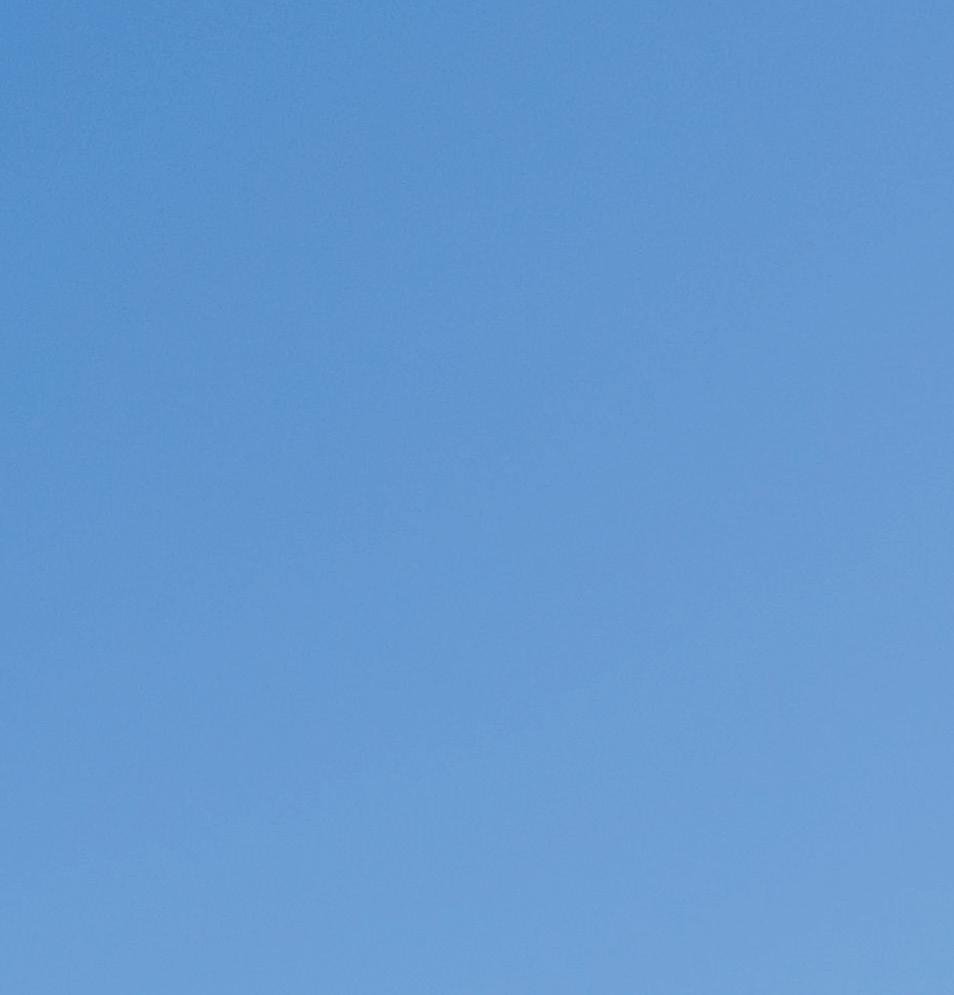
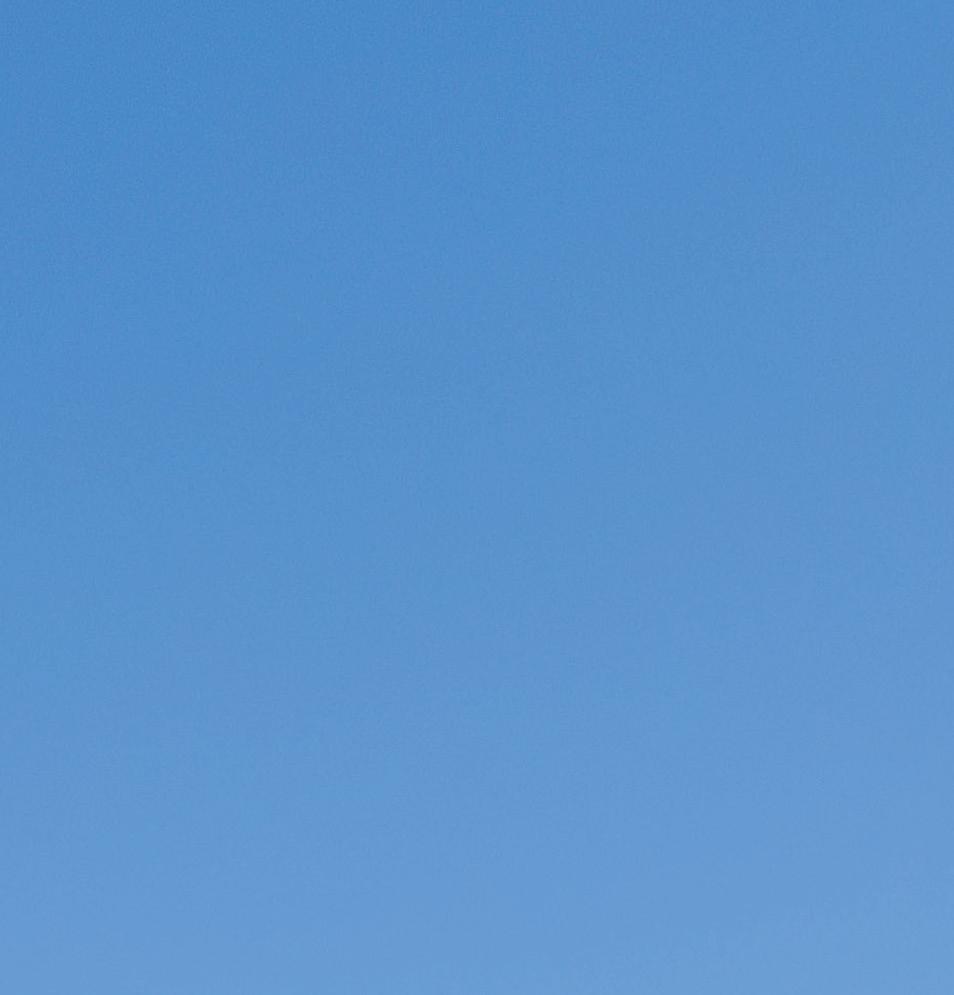
“WE‘RE
DEVELOPING TOMORROW‘S THERAPIES TODAY.”
TRANSLATIONAL
TRANSLATIONAL
NEWS.FIU.EDU/MAGAZINE | 15
STEPHEN BLACK, ASSOCIATE VICE PRESIDENT FOR
RESEARCH DIRECTOR, CENTER FOR
SCIENCE
Aquarius Reef Base is the world’s only underwater laboratory. Located 60 feet beneath the surface of Florida Keys National Marine Sanctuary, the unique facility provides unparalleled opportunity to study the ocean, test and develop undersea technology, train specialized divers and engage a worldwide audience through in-person and virtual experiences.
Coral reef nurseries advance research in reef protection and conservation with studies that look at stress to shallow-water species and how scientists might improve their resilience.
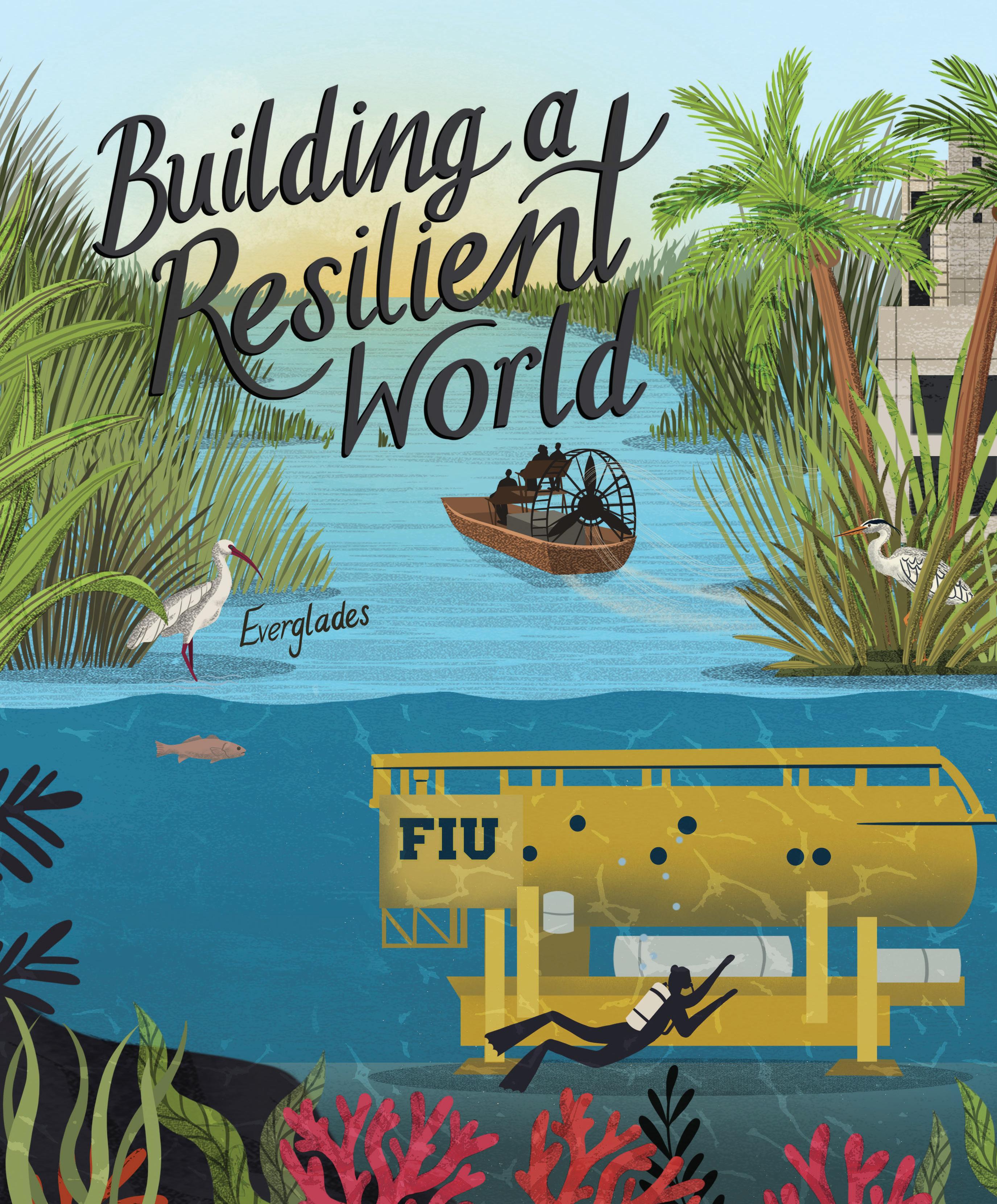
The study of extreme weather events through a dedicated institute includes research and applications related to preparation, mitigation and recovery from disasters, often related to wind and water. Among active, long-term projects is one that seeks to reduce risk in urban areas of Central and South America.

Research that improves tropical storm, hurricane and typhoon forecasts informs the National Hurricane Center and the Navy’s Joint Typhoon Warning Center. FIU has also collaborated with the NHC, a federal entity on FIU’s campus, to develop a storm surge database for Haiti and the Dominican Republic to support decision-making on evacuations.
Contributing to the largest environmental restoration project on the planet, FIU provides the science behind federal water quality standards to protect our drinking water and the native plants and animals that rely on a healthy Everglades.
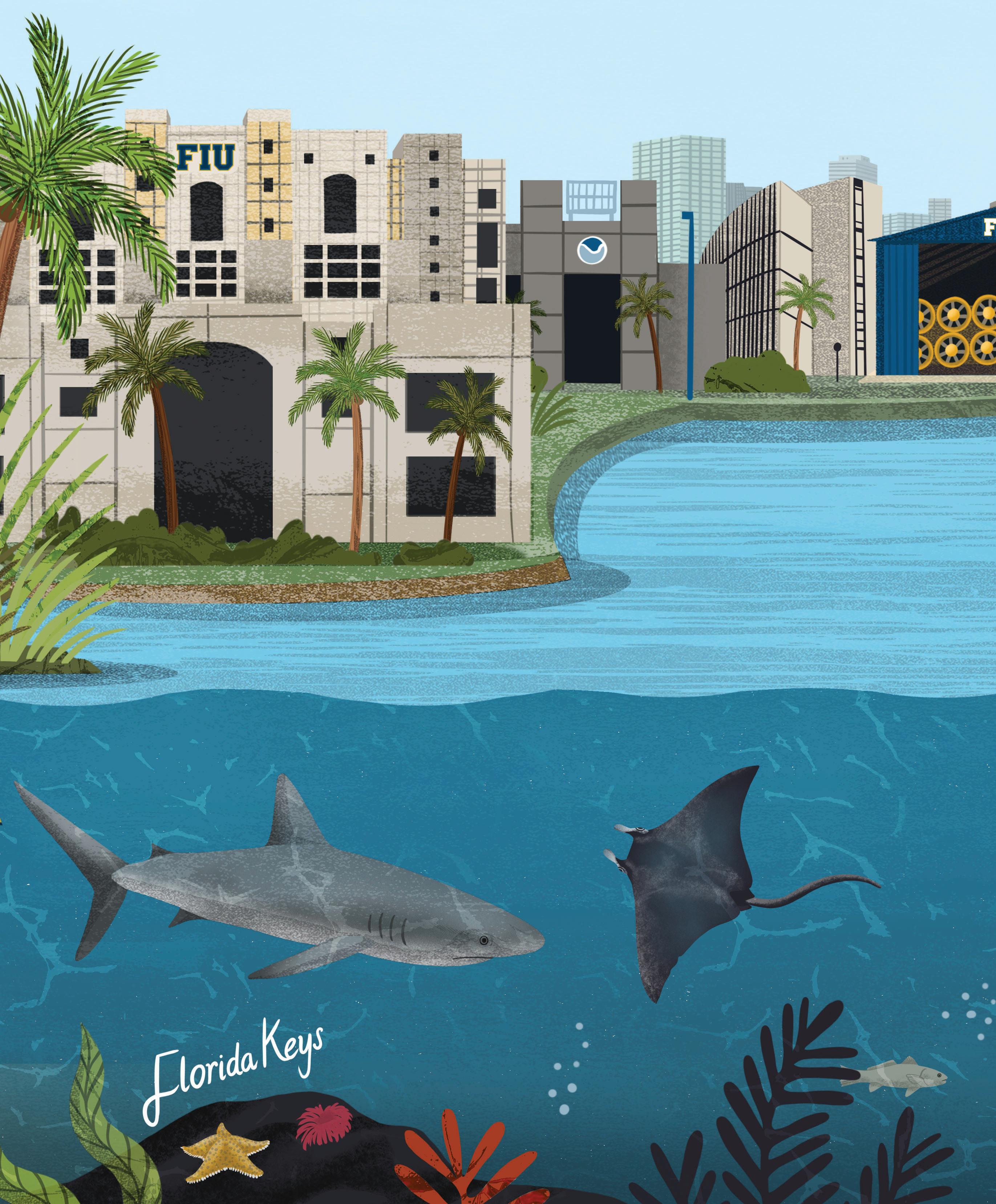
Ensuring sustainable fisheries through use of the latest remote technologies and advanced modeling protects a critical global food source.
The FIU-led Global FinPrint project unites researchers around the world to survey sharks, rays and other marine creatures on more than 400 coral reefs and helps countries to establish needed protections for these critical species.

The UNESCO Chair on Sustainable Water Security at the university’s Institute of Environment addresses regional, national and global issues through interdisciplinary research and partnerships.



A new academic degree program in sustainable tourism, undergirded by continuing research, provides training and education focused on sustainable operations and lessening the impact of tourism on the environment.
The only university facility that can generate Category 5 hurricane winds, the Wall of Wind tests components and whole structures with the goal of improving product durability and strengthening building codes.

Resilient and sustainable coastal infrastructure is prioritized through work in the College of Engineering and Computing, which has a focus on developing innovative technologies to build and retrofit structures that can withstand challenges associated with changes in climate.
The longest-running water-quality program in the nation, at 30+ years, is using autonomous technologies to track and measure contaminants, harmful algal blooms and other environmental impacts in South Florida’s Biscayne Bay as well as Florida Bay and the Everglades.

Tropical plant research around the world aims not only to protect species but to harness their potential to treat diseases, help stem global food shortages and even help reduce the impacts of extreme heat.
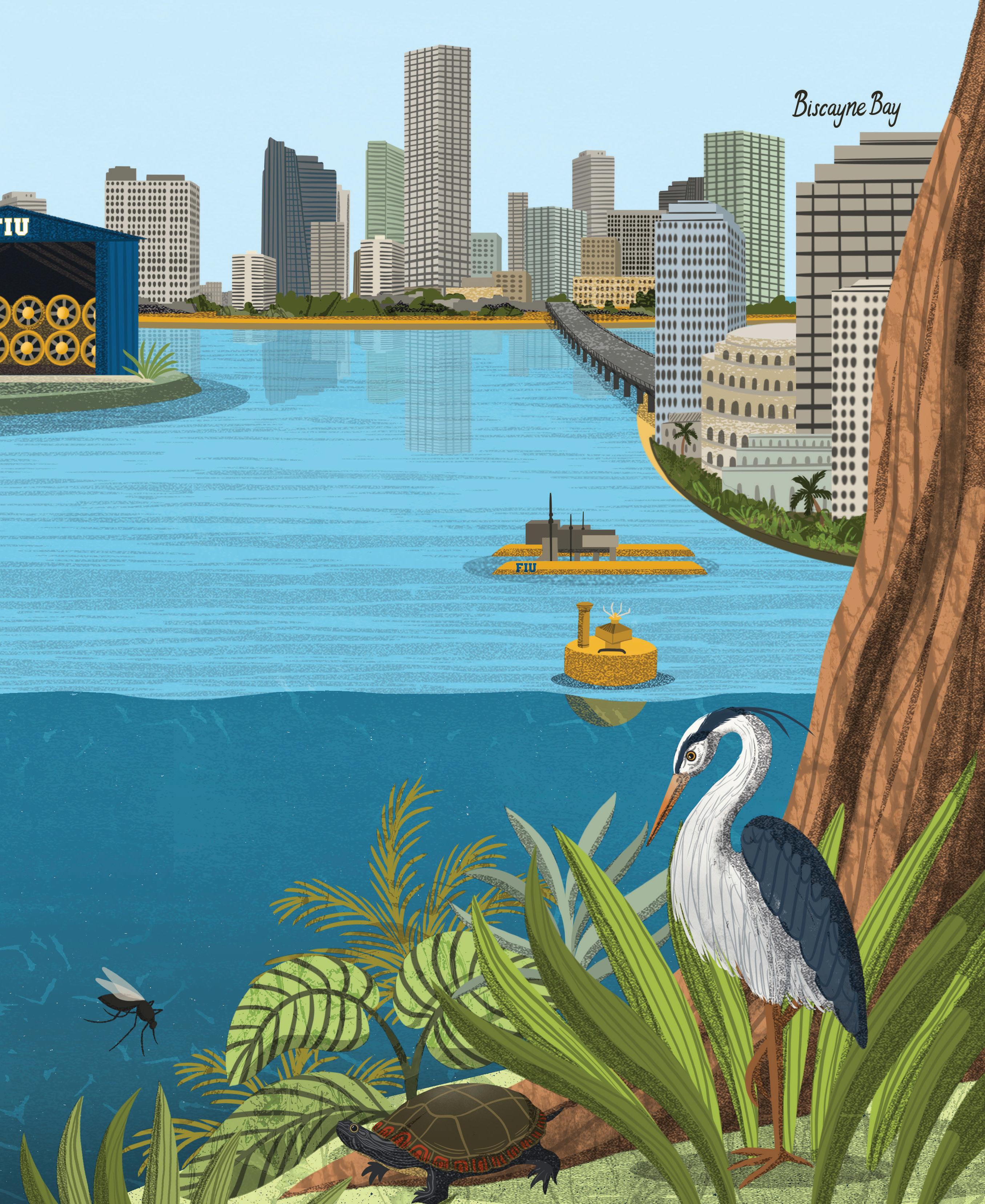
Research
FIU’s commitment to environmental resilience has roots in the understanding that nature and the built world are integrally intertwined. The loss of species, rising seas that flood urban areas and droughts that jeopardize food crops have a common denominator in changes taking place around the planet.
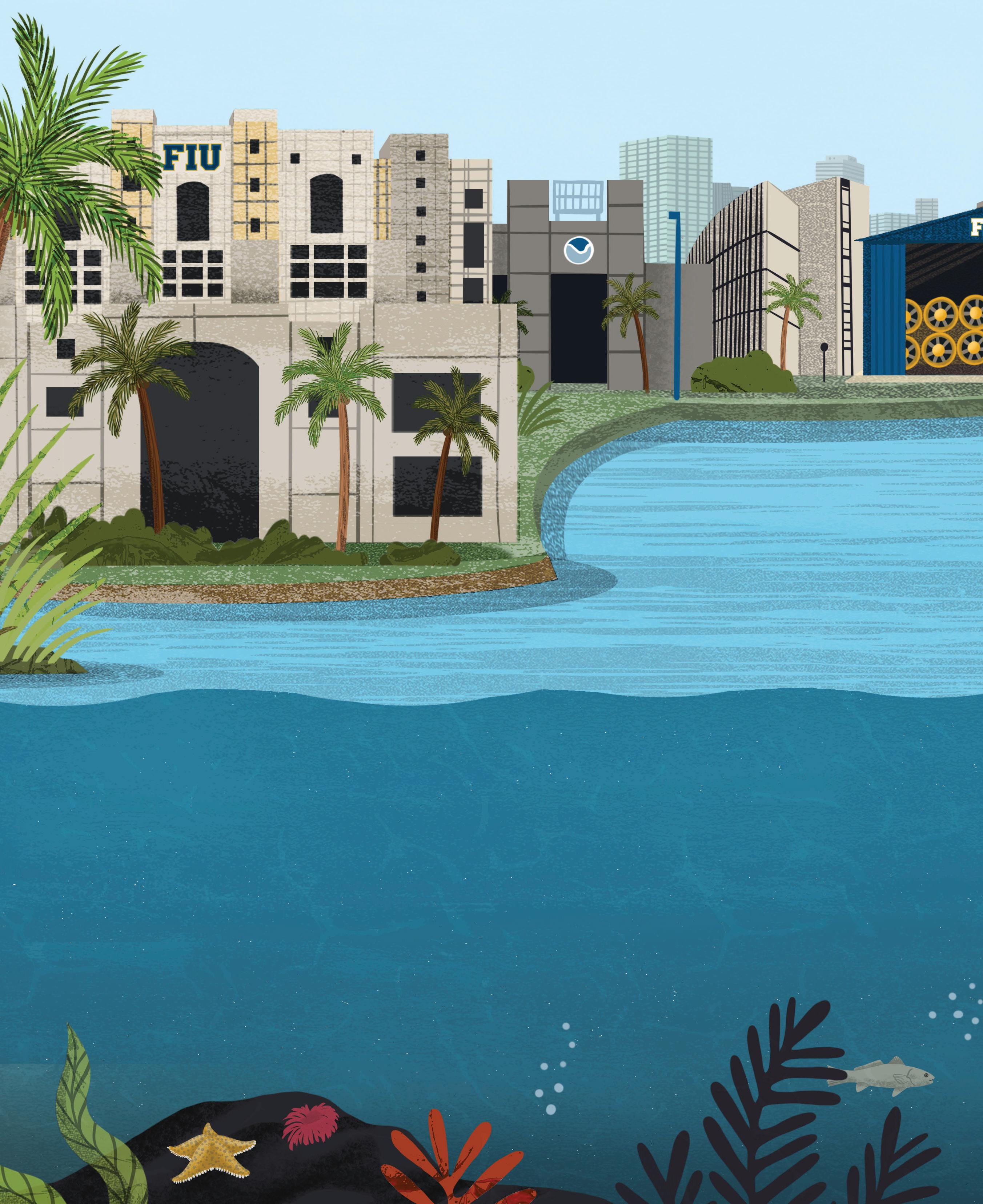
At FIU, projects to ensure sustainability involve experts in multiple fields collaborating across disciplines. Millions of dollars in funded research for work related to coral reef and shark protection around the world, Florida Everglades









restoration and Biscayne Bay recovery have pushed FIU’s earth and environmental sciences researchers to among the most highly published on the subject (No. 1 in the U.S. among universities less than 50 years old, No. 23 in that category globally, per Nature Index rankings).
With a recognition of deep interconnectedness across a host of growing problems and potential solutions, FIU scientists and students are taking a hopeful approach by putting their knowledge and ingenuity to the test in the interest of us all.
No. 11 in the world for impact on Life Below Water by Times Higher Education Impact Rankings No. 28 in the world for impact on Life on Land by Times Higher Education Impact Rankings No. 37 among public universities for Environment & Ecology by U.S. News & World Report subject rankings 3,000+ students enrolled in programs related to environmental resilience $400M in research awards for environmental resilience in the past 10 years 200+ faculty members engaged in environmental resilience research and teaching 200+ local, state, national and international collaborations around the environment
f a sustainable planet Research f a sustainable planet
POET WITH A PLATFORM

Ashley M. Jones MFA ’17 is the first person of color and youngest individual to be named poet laureate of Alabama, a position created in 1931.
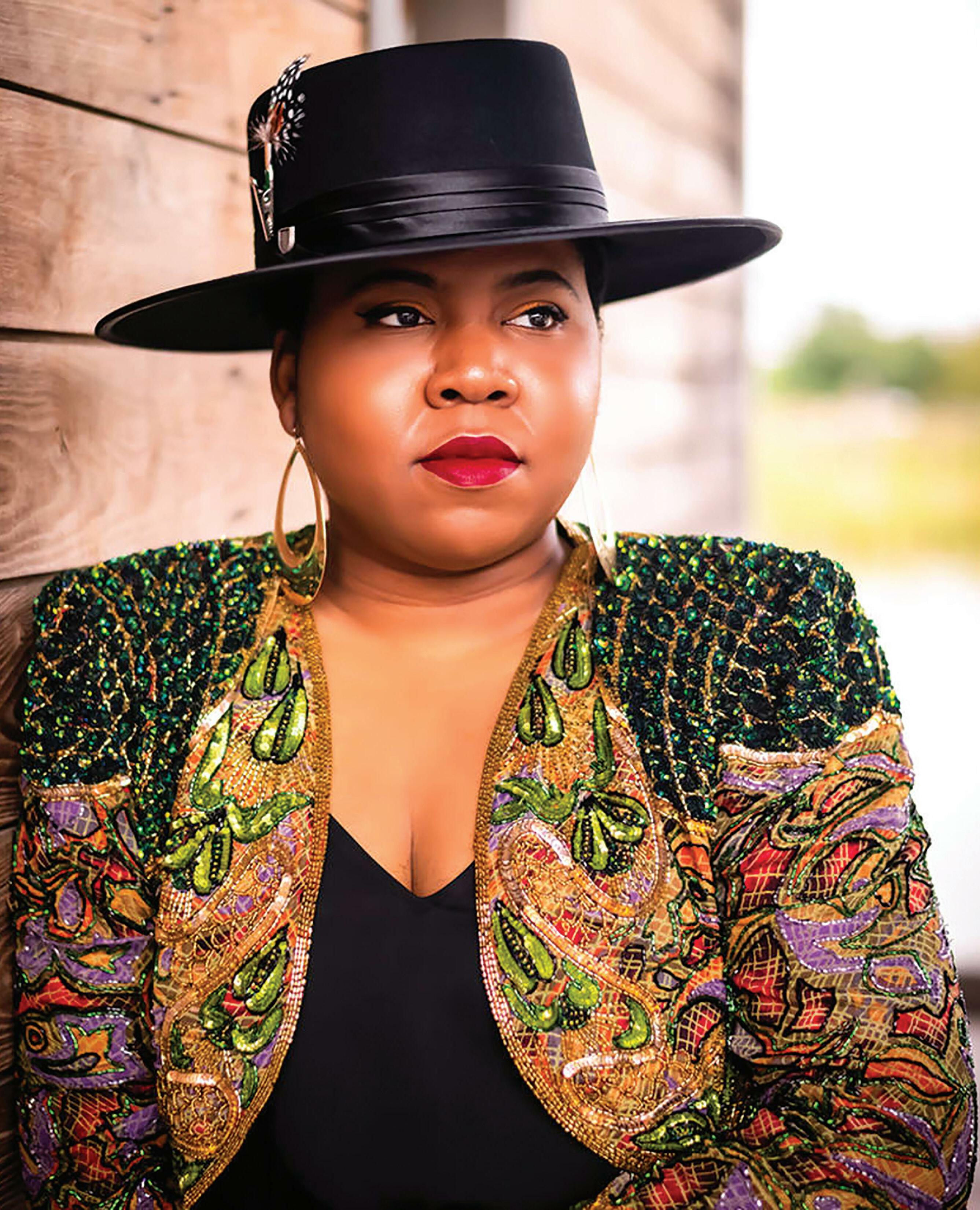
A degree from FIU’s nationally renowned Creative Writing Program — where she studied with the likes of MacArthur Foundation “genius” Campbell McGrath — helped set her up to achieve the longed-for honor of representing her home state, albeit years sooner than she ever expected.

A writer since the age of 7, Jones remembers the first time she understood the power of verse: reciting to classmates a poem about the indefatigable Harriet Tubman. She teaches at the high school and college levels, runs a nonprofit that produces a literary festival and has published three poetry collections. Much of her writing focuses on social issues as she actively challenges the narrative that the South is to blame for the sins of the nation.
“There are a couple things I hope people get from my position as poet laureate. I hope people understand that all of us can be anything. Whatever they dream of doing, they can do it.”
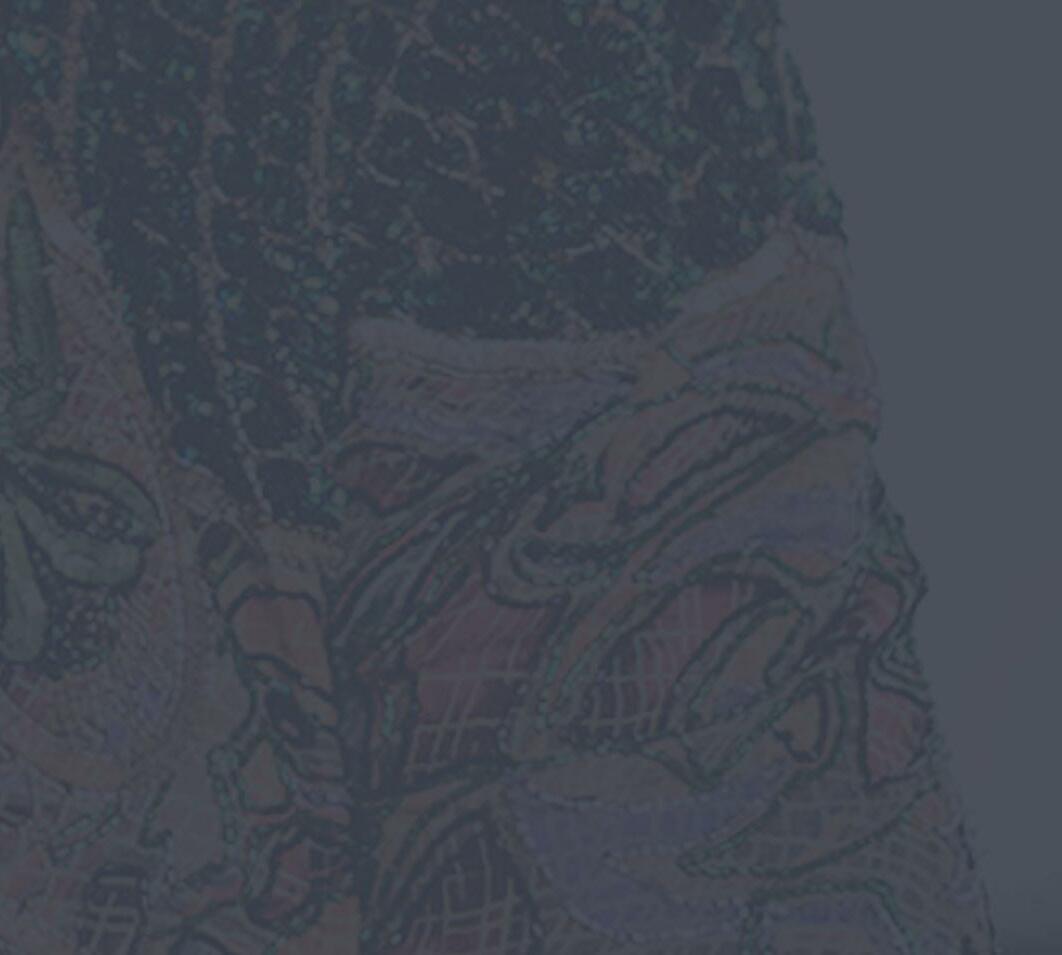
EXCELLENCE 20 | SPRING 2022
PROFILES IN
PROFILES IN EXCELLENCE



PHYSICIAN TO 9/11 HEROES








Between patient visits at a hospital in Brescia, in his native Italy, Dr. Roberto Lucchini caught glimpses on TV of the aftermath of the World Trade Center terrorist attacks. The occupational medicine specialist fixated on the plume of toxic dust that descended as a ghostly layer of ash and contained, he knew, a mix of cement particles, asbestos, heavy metals and chemical pollutants that could pose catastrophic health consequences for everyone in its wake.
By 2012, Lucchini understood the dangers intimately as he began working directly with first responders as director of the WTC Health Program Data Center at Mount Sinai Hospital in New York. “These health issues resemble what is seen among veterans who were exposed to chemicals and psychological trauma in war zones,” he says of the many who reported respiratory ailments, cancers, persistent mental health challenges and cognitive losses.
On Lucchini’s watch, the monitoring and treatment of recovery workers who labored for months on the scene — often without benefit of the personal protective gear now recognized as critically necessary — led to studies that have since informed operations at disaster sites such as the 2019 fire at Notre Dame cathedral and the 2021 South Florida condominium building collapse.
As a professor in FIU’s Robert Stempel College of Public Health & Social Work, Lucchini continues to prioritize the aging population of 100,000+ remaining heroes and other survivors with research into how exposures have impacted their later years. And as many retire to Florida, he has hopes of establishing a source for their specialized care — a concern that emanates from more than simply a doctor’s call to duty.
“I became emotionally invested because you get in touch with people and listen to their stories.”
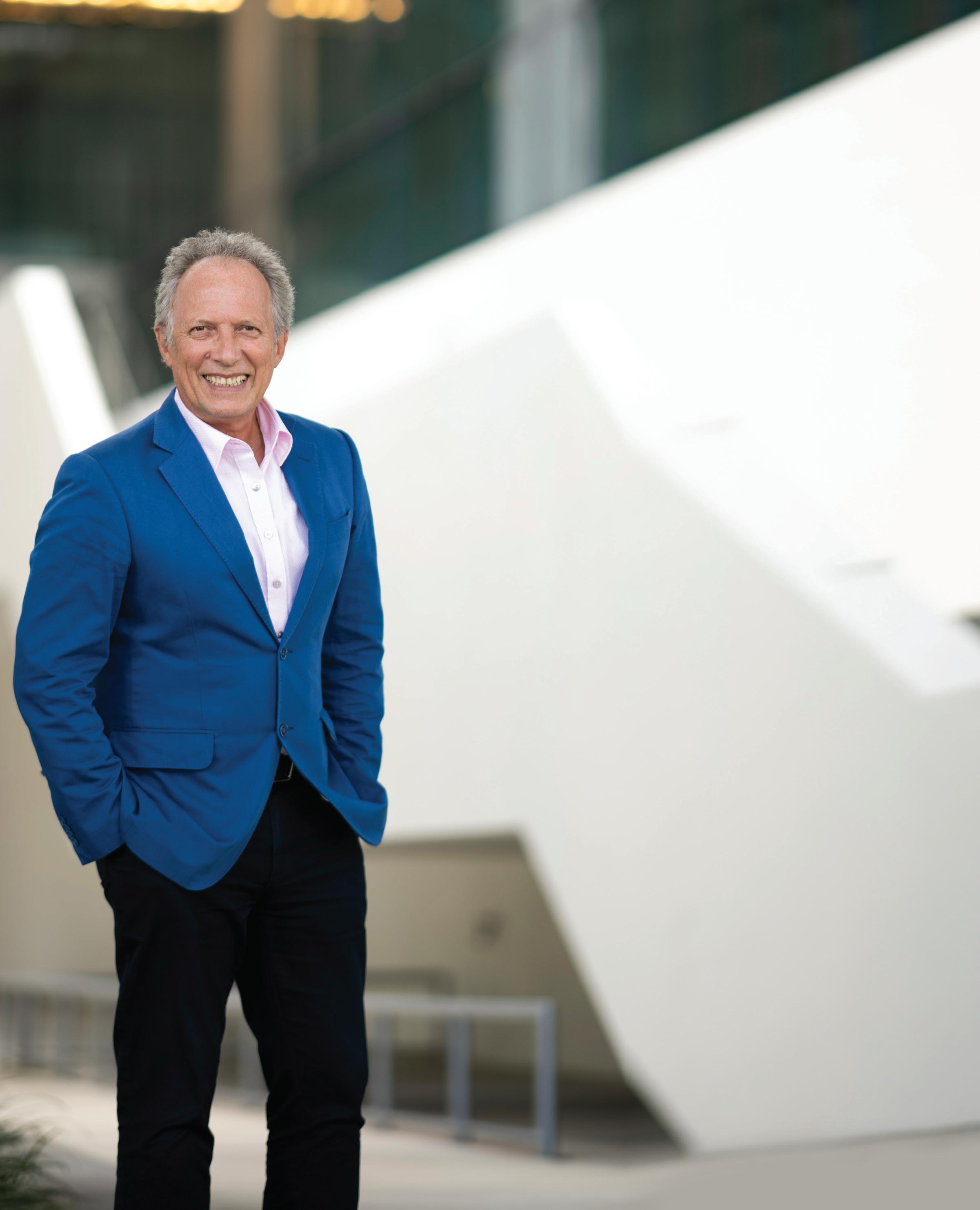
NEWS.FIU.EDU/MAGAZINE | 21
010LIGHTING THE FIRE ON A NEW
WITH LOCAL AND INDUSTRY LEADERS CALLING TO MAKE MIAMI THE NEXT SILICON VALLEY, FIU IS LEADING ON THE COMPUTING FRONT
FIU is a driver of the new South Florida tech boom. With a history of turning out highly qualified graduates who together have laid a foundation for the growing industry, the university is redoubling efforts to meet the demands of an exciting, unprecedented era.
Miami Tech, shorthand for a technology hub now in the making, has a buttress in FIU’s College of Engineering and Computing.
“This is our moment,” says John Volakis, dean of the college. “We realize that we have a responsibility to enable the Miami
Tech movement, and we are taking that responsibility seriously.”





And that responsibility goes way back.
“We were here before #MiamiTech,” says Steven Luis, executive director for technology at the college, referencing the hashtag that first appeared in early tweets that called for marshalling ideas and resources in support of a concerted, communitywide initiative. “FIU has been steadily contributing to the success of the industry in Miami for years.”
100100
1000100010001110000100 100010ECOSYSTEM01000 101001000100010001000 22 | SPRING 2022
ALL ABOUT THE PEOPLE
Chief among those contributions: graduating more than 5,000 computer science and information technology professionals in recent years.
“To have a tech boom, you need an educated workforce,” says Jason Liu, interim director of the Knight Foundation School of Computing and Information Sciences. “Companies come here, and they’re going to look for talent, and FIU is the No. 1 feeder into this market.”
Already the country’s top producer of minority graduates in STEM, FIU has a commitment to honing local talent. “Why import tech workers when we can grow our own?” ask folks like Miami Mayor Francis Suarez ’01 and others within the community. Enrollment in computing and information technology majors at FIU has doubled in recent years and, nationally, experts predict an unprecedented demand for tech employees. According to the U.S. Bureau of Labor Statistics, jobs in computer and information technology are expected to grow 13% by 2030, resulting in more than 650,000 jobs. According to one analysis, Florida ranked among the top five states for information technology job postings.
It was growing demand – from Miamians who are increasingly seeking careers in tech and from companies that need skilled talent – and FIU’s steps to meet the demand that motivated the Miami-based John S. and James L. Knight Foundation to invest $10 million in the school last year (which has since been renamed in recognition of the donation). The contribution, says Raul Moas, senior director of community and national initiatives at the foundation, “is leveraging an undeniable trend of increased demand from our community to break into tech and FIU’s commitment to meeting those aspirations head on.”
FIU has since promised $100+ million over the next few years to advance tech education. Already the university has broken ground on a nearly $75 million, six-story building complete with makerspaces, active learning classrooms and research labs.
AN EDUCATION IN TUNE WITH INDUSTRY
The heart of FIU’s efforts to turn out workforce-ready graduates remains hiring top professors and working with industry partners to ensure a robust curriculum that meets real-world needs.
PROPELLING WOMEN OF COLOR TO ENTREPRENEURIAL SUCCESS
FIU and the city of Miami have partnered to help businesswomen of color get the attention of venture capitalists. Led by alumna Kenasha Paul ’10, an attorney and founder of the Black Professionals Network, the new initiative aims to fix a problem that threatens the success of the Miami tech movement: Women of color attract disproportionately less investment money than their white and male counterparts.

Underserved, these entrepreneurs deserve better, say local and university leaders, and their companies remain critical to the region’s fastdeveloping innovation ecosystem.
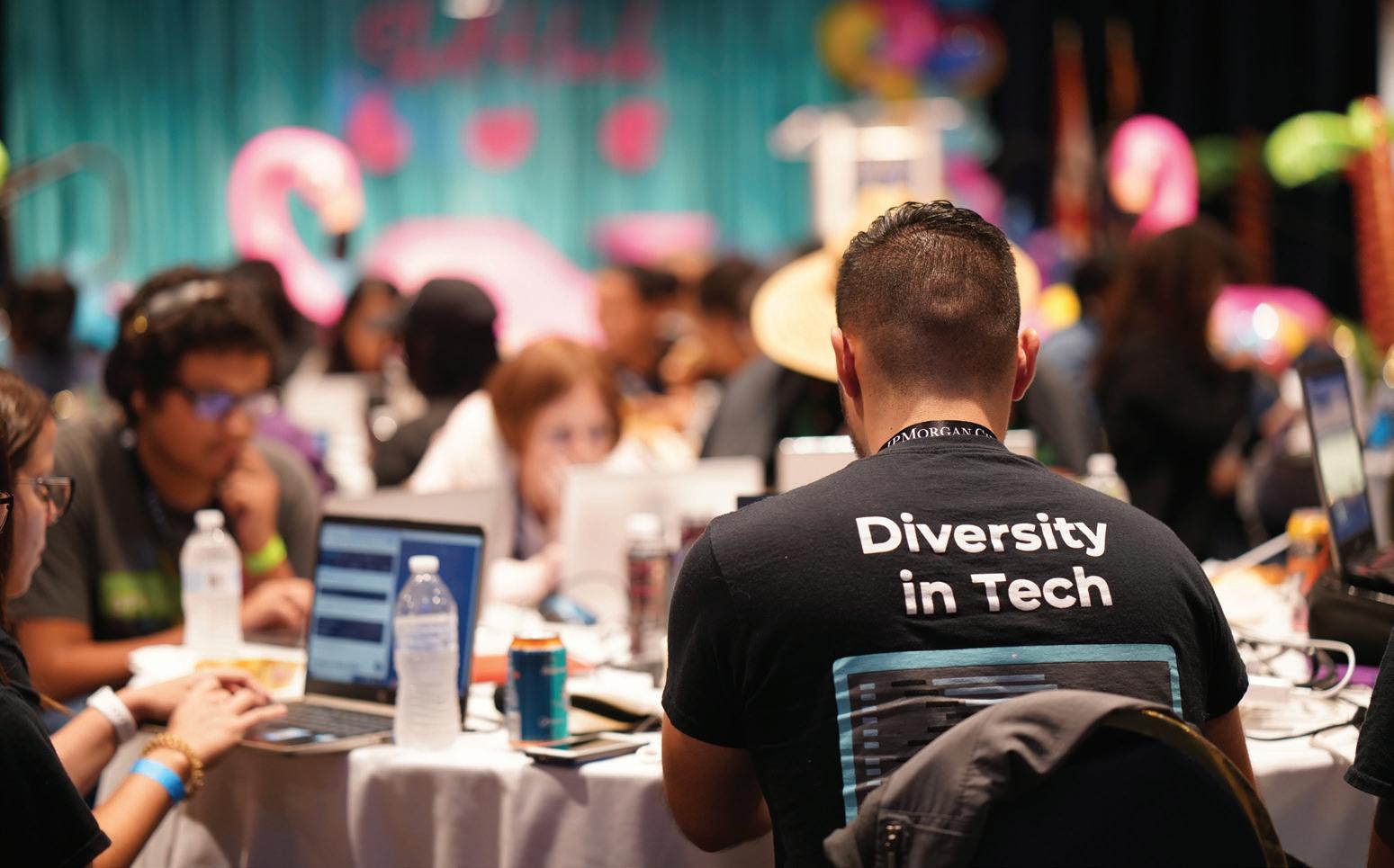
“Miami is the hub of social capital. I know we already have the talent and resources,” Paul says. “I’m going to be a champion for the women who get overlooked. We want to create those connectivity points so that investors see the genius that already exists in this city.”
The Venture Miami Opportunity Program, run by the Office of Engagement and supported with a $150,000 grant from JPMorgan Chase, in January recruited its first cohort of business owners. Many run tech-based companies and all head enterprises with the potential to break into billion-dollar industries. Participants meet with financial and other advisers within the university and the community to fine-tune their businesses and build strategic growth plans in preparation for a catalytic infusion of capital. The goal: having at least 50% of participants ready to pitch their companies to investors during Miami Tech Month in April.
Sophronia McKenzie ’09 (pictured), founder of visuEats Imagery Solutions, joined the first cohort and recognized immediately the gamechanging nature of the program for her and her business. “I’m most excited to gain access to like-minded female entrepreneurs, knowledgeable coaches and business experts,” she says. “I am really excited about the doors and opportunities that lie ahead.”
NEWS.FIU.EDU/MAGAZINE | 23
COMPUTER HONOR SOCIETY A NATIONAL STANDOUT
One of the largest student tech organizations in the country is killing it at FIU. The university’s chapter of the national Upsilon Pi Epsilon honor society has 800+ members and hosts the largest hackathon in Florida.
ShellHacks annually attracts more than 1,000 students (previously in person, currently hybrid) from Florida and beyond and rounds up dozens of Fortune 500 company sponsors — including Microsoft, Google, Facebook and Oracle — as well as established and burgeoning local tech firms. Participants work in groups to develop innovative solutions to real-world problems, learn about the latest advances, network with industry representatives and more.
In 2020, UPE launched a new hackathon at the request of FIU’s leadership. PantherHacks was born to focus on solutions around the COVID-19 pandemic.
“We really develop programs to provide experiential learning opportunities where students can bridge their education with their career and break into the tech industry,” says UPE president Nicholas Gonzalez (pictured), a computer science major who has interned at Facebook and NASA’s Kennedy Space Center.
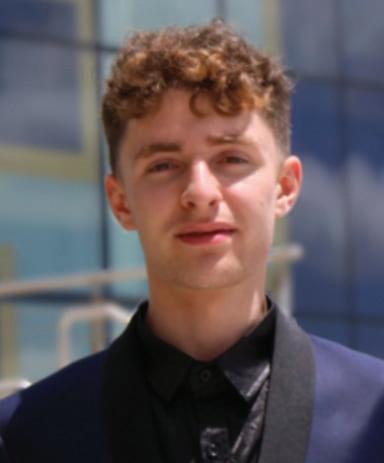
Gonzalez says UPE plays a pivotal role in preparing students to contribute to the hot Miami tech scene around which local industry and city leaders have converged. “We have the talent pipeline available,” he says of what he sees among his high-achieving peers.
The organization also sponsors workshops to deepen students’ skills in areas such as application development and hardware engineering, and conducts outreach at local high schools, particularly in underserved communities, to spark interest among the next generation.
“FIU’s mission of really providing students with learning and leadership opportunities and putting students first,” Gonzalez says, “that’s really what sets FIU apart.”
Expected to be completed in the fall of 2023, a new College of Engineering and Computing building will house makerspaces and research labs for the Knight Foundation School of Computing and Information Sciences.
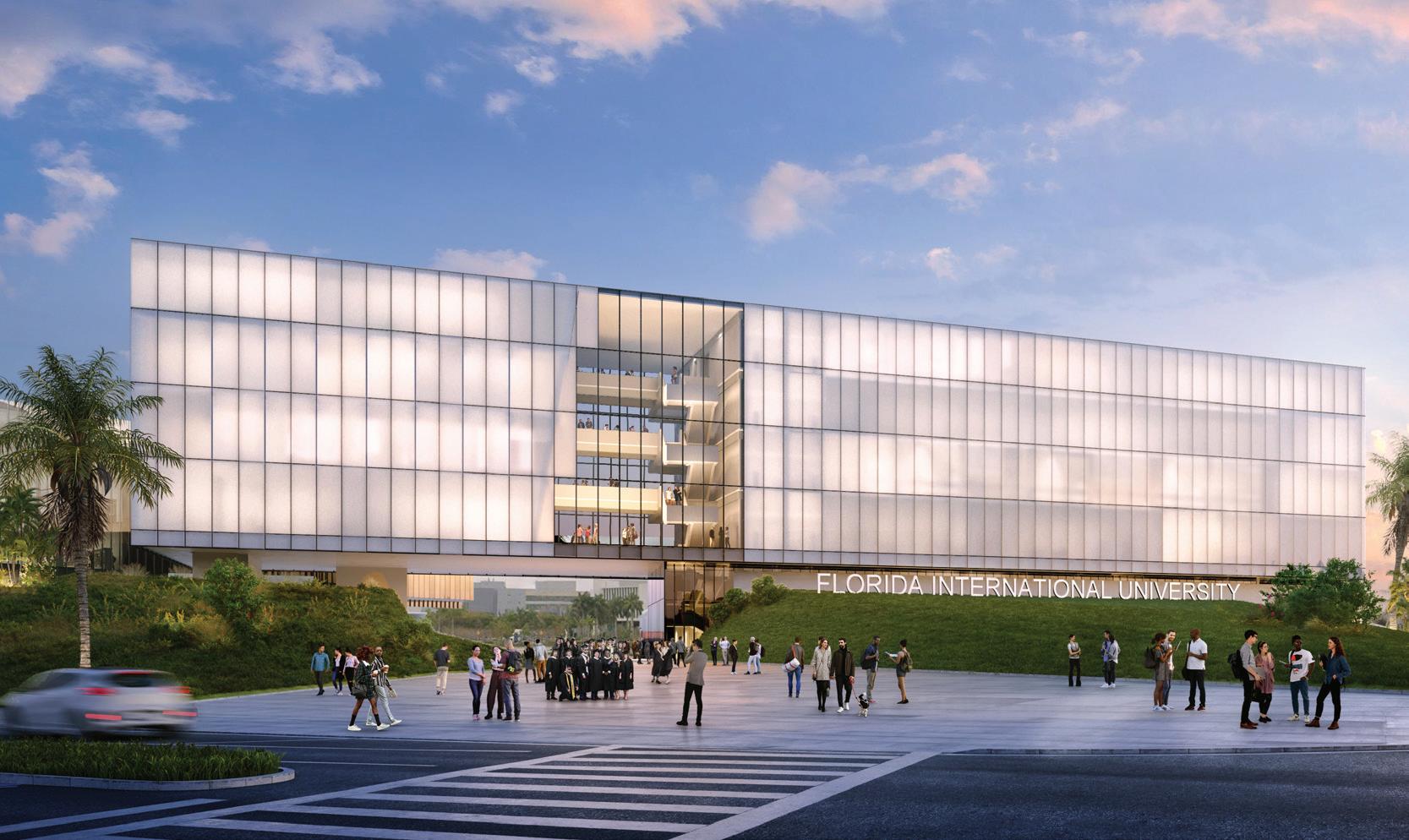
“We’re asking companies to work with us so that we develop students’ core competencies in the skills that are needed in the region,” FIU’s Luis says. “We can’t do this alone. We want to create a strong tech ecosystem with companies.”
Industry goliaths such as security software company Kaseya and human resources software company Ultimate Kronos Group, both based in South Florida, began partnering with FIU years ago. Company and school leaders met together to discuss ways to ensure a primed workforce, and hundreds of students and graduates have since accepted internships and jobs with the two firms in recognition of the highquality education and ready-to-go skills behind them. Kaseya and Kronos have followed up with in-kind donations to the school and support for a variety of student activities as well as on-campus trainings in specialized areas.
More recent collaborations include a joint $2.25 million investment from
the Knight Foundation that will allow expanded programming with national nonprofit CodePath to increase diversity in computer science and engineering.
FIU is also powering the new SoftBank Operator School to prepare students to run tech startups and partnering with Break Through Tech to propel women and members of other underrepresented communities into technology careers.
THE PROOF IS IN THE OUTPUT
Wildly successful alumni like Rachelle Tobkes ’16, who within a few short years earned the title of “Rockstar Engineer” among the more than 2,000 software engineers at multinational tech giant Citrix, can’t say enough about the launching pad she found on campus.
“FIU prepared me for being a software engineer in the real world,” Tobkes says. “FIU not only developed me for my career, but also connected me to professionals, internships and job opportunities, which played a huge role in landing and excelling in my current position.”
24 | SPRING 2022
Another Panther in the field: Jason Dettbarn ’00, MS ‘03, founder and CEO of Miamibased Addigy Technology. Following time at Motorola and elsewhere, he started the cloud-based IT management platform for Mac users in 2014. To complement his earlier FIU computer science training, Dettbarn applied for a spot in the highly competitive StartUP FIU entrepreneurship engine to hone his business skills. Soon he raised more than $9 million in venture capital to support a global expansion of his company, which today has 75 employees.
Dettbarn has returned frequently to campus to host quarterly meetings with his management team and mentor senior students as they complete required design projects.
“More than half of our employees come from FIU,” says Dettbarn, who scoops up a handful of graduating seniors at the conclusion of each design-project showcase. “It’s like going back to the wishing well and tapping into the finest of Miami,” he says. “The people of FIU continue to be a big part of my journey and success.”
#Miami Tech, here we come. •
MIAMI MAYOR IGNITES AN INNOVATION EXPLOSION
When someone on Twitter in December of 2020 suggested turning Miami into a tech hub, the city’s Mayor Francis Suarez ’01 (pictured) responded, “How can I help?” That set off a firestorm of activity among industry, academic institutions, nonprofits and others eager to act on the idea. The FIU alumnus recently commented on his alma mater’s role in this bold initiative.
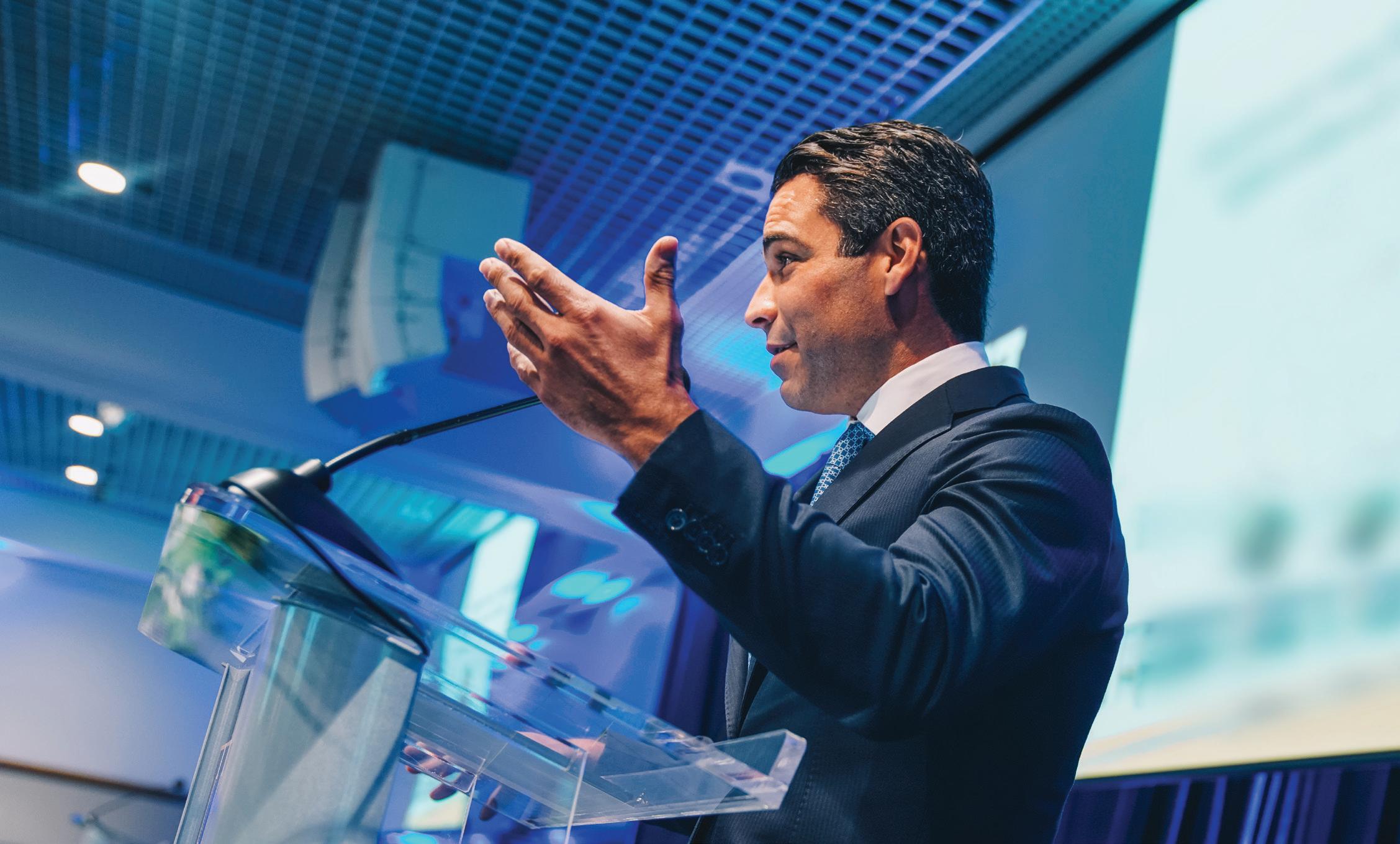
Why a Miami tech hub and why now?
Our city takes great pride in allowing innovation to grow and prosper. Technology is an essential feature in all our lives, and it is no secret that our children, and their children, will grow up in a world where technology will be the main way to interact with the world around us. By fostering innovation and shaping the brilliant minds of tomorrow, we will build a city around technology. Our trajectory will become the blueprint for other cities, effectively putting the future generations in a spot where they can thrive in an ever-changing social landscape.
Great talent has always been here, but it has often not stuck around. How can we reverse the technology “brain drain”?
We have outstanding students with high potential coming out of our universities, and we want those who graduate to stay in Miami and build their companies. This is why it’s important to offer them excellent educational resources, such as the ones found at the Knight Foundation School of Computing and Information Sciences. By offering our next generation of leaders access to resources and mentorship here in Miami, we propel their careers locally.
Listen to Mayor Francis Suarez ’01 make the case for Miami‘s tech boom.

NEWS.FIU.EDU/MAGAZINE | 25
INSPIRING INNOVATOR
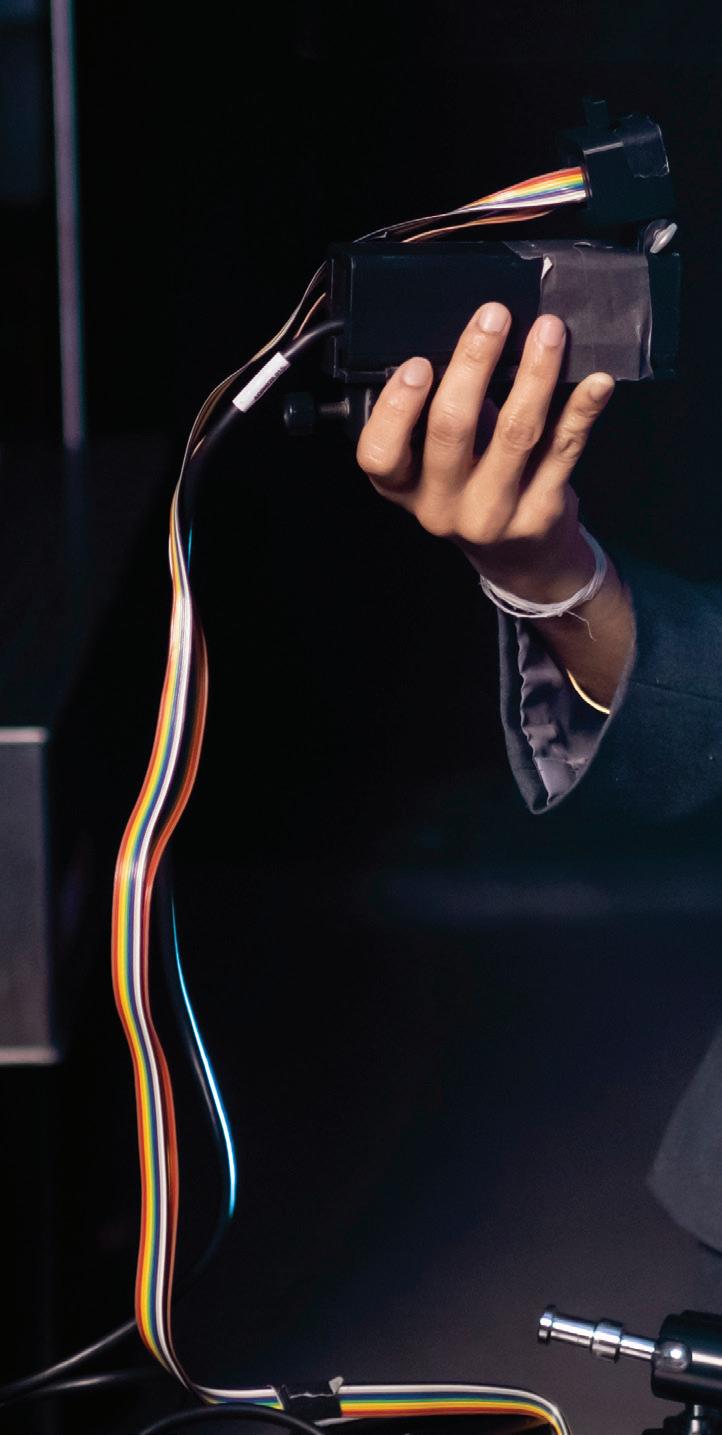






Anuradha Godavarty has created new technology that she hopes will help doctors spot and reverse devastating medical conditions that affect millions worldwide — and the National Academy of Inventors has already recognized her for her efforts. Named a senior member of the organization in 2021, the associate professor of biomedical engineering has for years sought to harness the use of near-infrared, or invisible, light in the service of life-saving imaging.
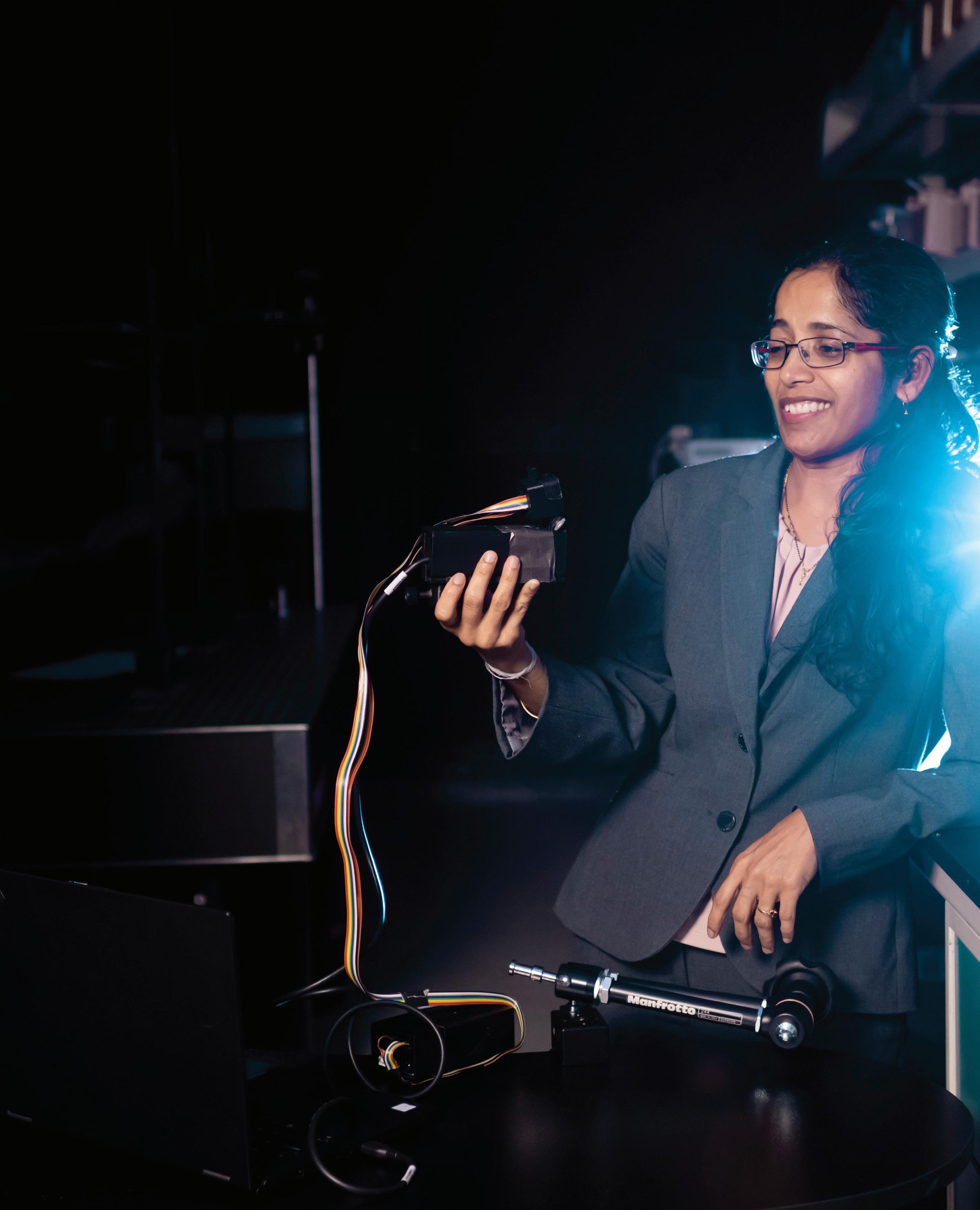
Her low-cost, portable device (pictured) promises the hope of quick, in-office checks for ulcers associated with diabetes and peripheral vascular disease. The ability to regularly monitor the flow of oxygenated blood around a sore — something currently difficult to do, even with advanced imaging such as MRI — by essentially looking under the skin with a maneuverable tool could help physicians prevent the worst complications of tissue and bone damage that annually lead to some 150,000 lower-extremity amputations in the United States alone.
Godavarty holds 14 issued and pending U.S and global patents related to the development of hand-held and smart phone-based devices as well as approaches to analyzing physical changes indicative of either deterioration or improvement. Such achievements mean little, however, says the seasoned researcher, who is already testing her inventions, until the day they make a difference in lives.
“My motivation, what drives me always, is to see if I can translate the technology. Can I actually take it and help people?"
PROFILES IN EXCELLENCE 26 | SPRING 2022
PROFILES IN EXCELLENCE







FIU is the first state university in Florida featured on The College Tour, the new series on Amazon Prime. Catch Amelia Raudales and other students as they describe their FIU experience.

A RENEWED SPIRIT READY TO TAKE ON THE WORLD
It wasn’t long ago that senior international relations major Amelia Raudales doubted her ability to earn a university degree. Having dealt with imposter syndrome, the Honors College student now looks back upon an academic career buttressed with reassuring advice and packed with high-level activities to launch her future as a human rights attorney.
With a professor’s guidance, Raudales conducted research projects related to human trafficking for the State Department and the International Bureau of Narcotics and Law Enforcement Affairs. With help from FIU in DC (see page 8), she secured a congressional internship to better understand the legislative process. With support from the university’s innovation and entrepreneurship engine, she collaborated with three alumni to develop a charitable-giving app for which the student-focused Center for Leadership and Service granted seed money. She also served as a student government senator and earned three national fellowships, among them one from the United Nations.
The daughter of an FIU alumnus who emigrated from Honduras and a mother from Argentina, Raudales plans to work one day at the international level and has newfound confidence to get her there.
“When FIU opened its doors to me, that’s really something [for which] I can never show how thankful I am. It really did change my life. Because of all the opportunities and all of the amazing people I’ve met, I truly feel like there is no limit to my potential, and that’s not something I would have said five years ago.”
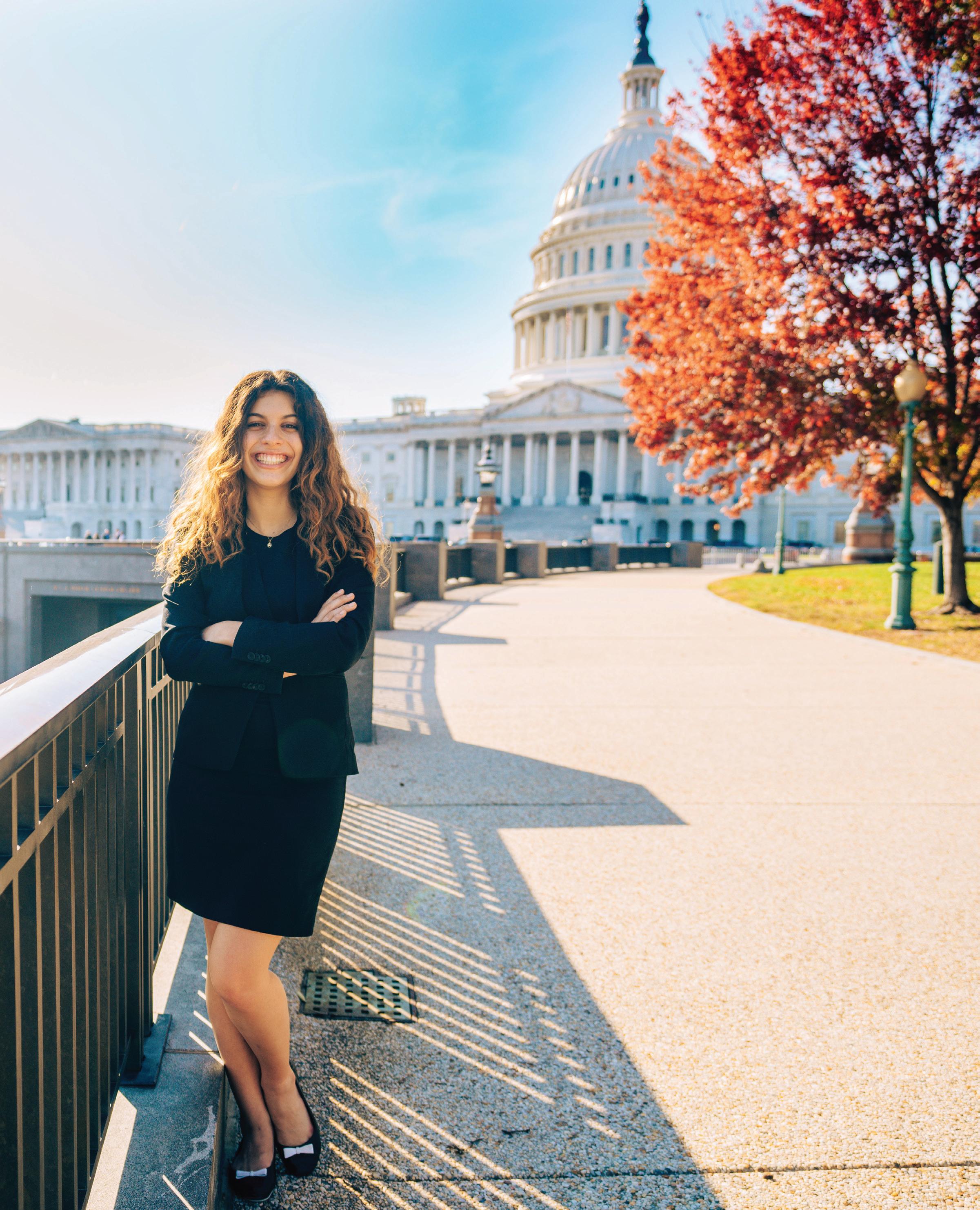
NEWS.FIU.EDU/MAGAZINE | 27
COLLABORATIVE BRAIN CANCER RESEARCH CONTRIBUTES TO HOPES FOR NEW TREATMENTS, CURE
An FIU-led study has revealed a correlation between the presence of a protein variant and poor survival in males suffering from the deadliest form of brain cancer.

The breakthrough followed analysis of 441 patient blood samples and focuses on the translocator protein 18 kDa (TSPO) present in various types of human cells. Researchers found that patients who exhibited a variation in the structure of the protein fared worse than those who didn't. And while the variant is common among the general population, it appeared to be associated with worse outcomes in glioblastoma patients who are male.
Some 13,000 adults in the United States are diagnosed annually with glioblastoma, and males are 1.6 times more likely to be affected. The brutal disease leads to seizures, persistent headaches and personality changes in addition to impairments in speech, cognition, sight and movement. The median survival time is 12 to 14 months after diagnosis, and fewer than 7% of patients live more than five years.
The study was conducted by scientists at the Robert Stempel College of Public Health & Social Work in collaboration with Cleveland Clinic Lerner Research Institute and the National Cancer Institute. It was published in a special issue of the peer-reviewed, open access oncology journal “Cancers.”
Tomás R. Guilarte, dean of Stempel College, served as a senior author. For more than 20 years, he researched TSPO, and his pioneering work in validating the protein as a neuroinflammation biomarker recently earned recognition from the Society of Toxicology.
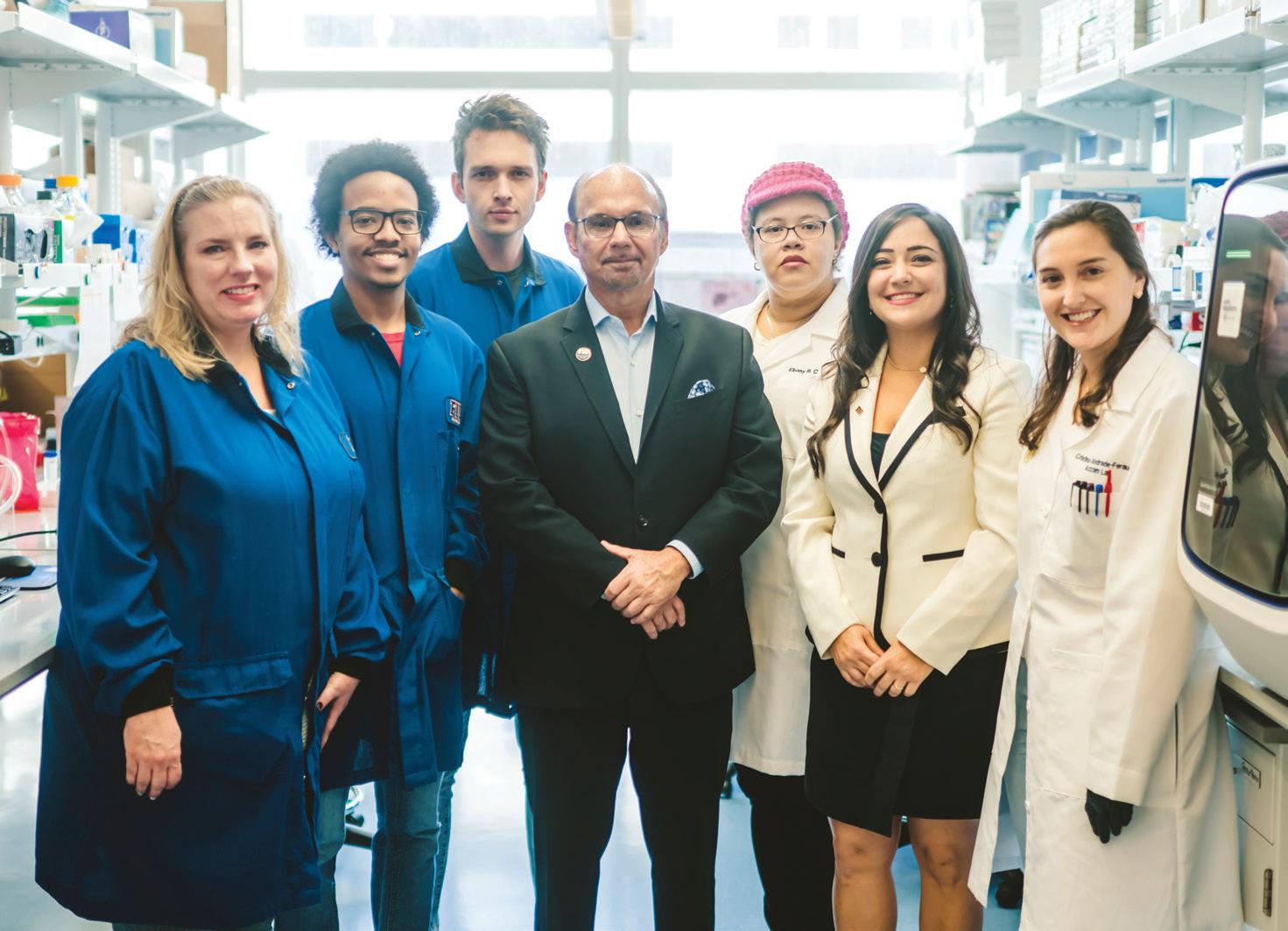
FIU’S PARTNERSHIP WITH CLEVELAND CLINIC AND THE NATIONAL CANCER INSTITUTE LEADS TO GROUNDBREAKING FINDINGS ABOUT GLIOBLASTOMA
28 | SPRING 2022
Led by Tomás R. Guilarte, in suit jacket, and Diana Azzam, in white suit jacket, members of the FIU research team contributed to a new brain-cancer discovery: from left, Jennifer McGlothan Dziedzic, Daniel Martinez, Alexander Rodichkin, Guilarte, Ebony Coats, Azzam and Cristina Andrade-Feraud.
“This could be potentially a prognostic marker,” Guilarte says. ”If we understand why this change in the structure of the protein produces a worse outcome, then we can potentially come out with therapeutics.” As surgery alone cannot eliminate glioblastoma tumors, discovering new therapies is critical.
Diana Azzam, a Stempel College professor and cancer researcher who devised the study with Guilarte, says that understanding the function of the variant will lead to developing alternative therapies for patients who exhibit it. Azzam specializes in personalized cancer therapeutics and sits on the board of the Society for Functional Precision Medicine.
“There is no question that [the variant] could be playing a role in making the cancer in males more aggressive,” says Azzam, who notes that the variant appears to decrease TSPO’s ability to bind with the body’s natural cholesterol and, consequently, might be impacting steroid production. “The question is, ‘How do we treat this?’ And that’s the next step.”
Guilarte and Azzam launched the study after conferring with Justin D. Lathia, vice chair of cardiovascular and metabolic sciences at Cleveland Clinic Lerner, who calls the results “an exciting new direction and will be the focus of future studies.”
FIU Postdoctoral research associate Arlet M. Acanda de La Rocha and Cleveland Clinic Ph.D. candidate Katie M. Troike completed the laboratory work, and with the help of colleagues at the National Cancer Institute, data was produced in an astonishingly quick six months. The study was funded by the National Institute of Environmental Health Sciences. Funding proposals to continue the work have been submitted. •

NEWS.FIU.EDU/MAGAZINE | 29
HUMANITY’S LAWYER







Charles Jalloh is serving his second five-year term as the representative for Africa at the United Nations International Law Commission and complements his teaching in the classroom with several weeks annually in Geneva. The FIU College of Law professor has labored over issues related to holding war criminals to account and understanding the role of sea level rise in creating displaced populations.
The Sierra Leone native has contributed to cases concerning genocide at the International Criminal Tribunal for Rwanda, and his recent book, “The Legal Legacy of the Special Court for Sierra Leone” (Cambridge, 2020), documents the impact of trials in the Hague that followed the brutal, decade-long “blood diamonds” civil wars that erupted in seven African countries.
Several years ago, Jalloh combined his professional expertise with his passion as an educator to establish an internship program that puts FIU law students front and center at the International Law Commission headquarters. There they assist top lawyers from around the globe and observe first-hand the rigorous methods of the commission’s drafting committee as it prepares and amends documents for adoption.
“I get to be at the table with the leading international lawyers of our time. We work on texts that aim to assist states in coming up with common rules that, if taken forward, enable them to function in a more peaceful way instead of going to war with each other.”
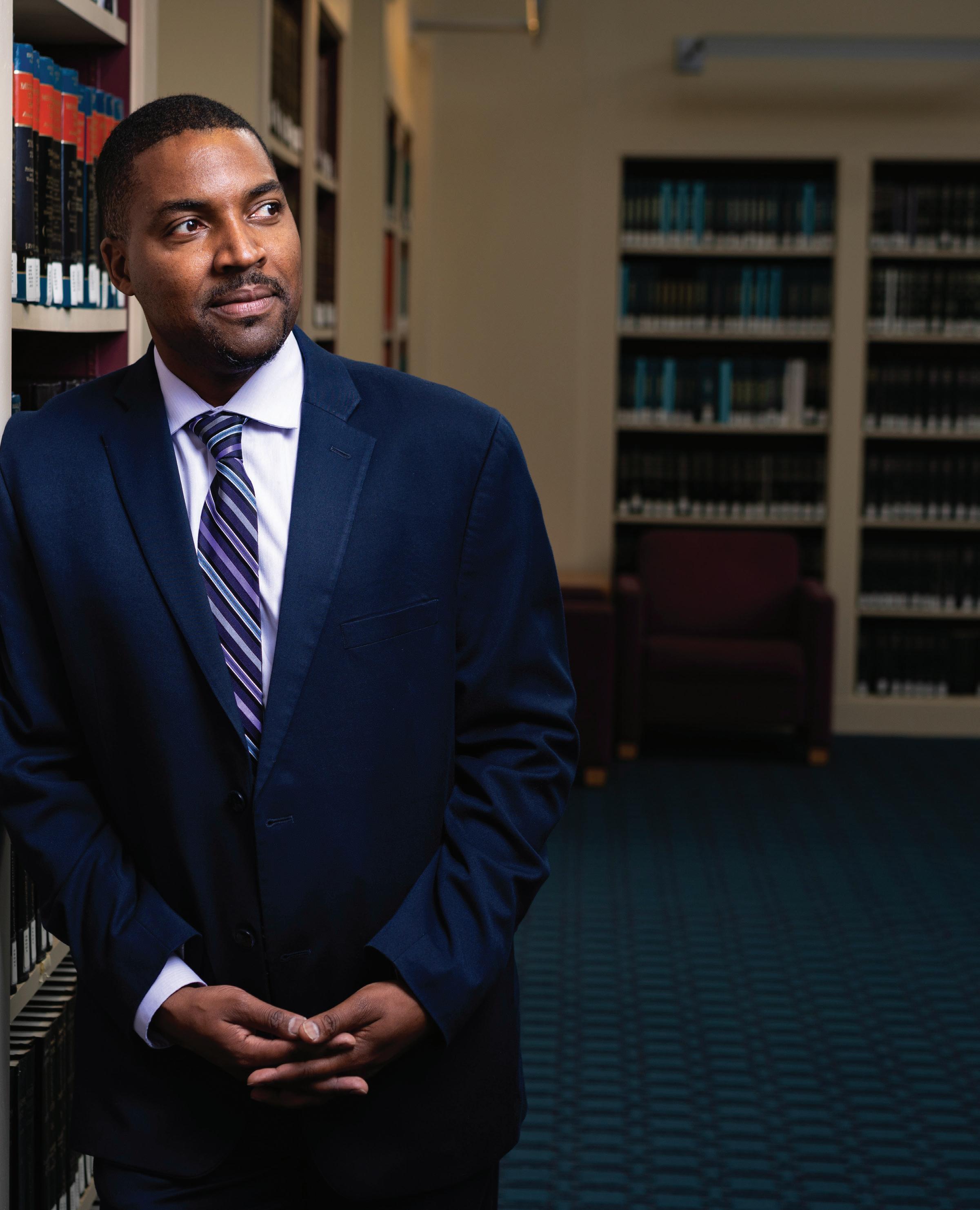
PROFILES
EXCELLENCE 30 | SPRING 2022
IN
HUNDREDS OF MILLIONS OF GOOD REASONS

From proud alumni to the biggest names in philanthropy and beyond, the public is taking note of FIU’s rapid ascent — and investing hundreds of millions in its future.
Recognizing FIU’s role as an anchor institution in South Florida and its goal to become a Top 50 public university by 2025, donors are enthusiastically backing initiatives to drive student success and research excellence through Next Horizon: The $750 Million Campaign for FIU.

An unsolicited, unrestricted $40 million gift from philanthropist and author MacKenzie Scott and her husband, Dan Jewett, is just one example. Scott selected FIU based on its commitment to social mobility (U.S. News & World Report ranked FIU 5th among U.S. public universities for social mobility), serving underrepresented communities and improving student success metrics.
Major foundations and corporations are taking notice, too. A $10 million investment from the John S. and James L. Knight Foundation is increasing the capacity of the newly named Knight Foundation School of Computing and Information Sciences to develop talent to meet the demands of industry and South Floridians seeking to advance their tech skills. And a partnership with Bank of America is helping minority students successfully complete the education and training they need to enter the workforce after graduation.
“Investments like this confirm what we at the university witness every day — FIU is a place of excellence, and many are taking notice,” said Howard Lipman, CEO of the FIU Foundation, adding, “Our donors stay involved with FIU for years because they see





the impact their dollars are making in the lives of students and the community.”
Those who are among the most rooted in FIU’s energetic campus life — its alumni, faculty and staff — are also embracing the challenge. Alumni have contributed $74.6 million to Next Horizon. Faculty and staff have exceeded $32 million in giving, last year reaching 83% participation, placing it atop the State University System and leading among all university employee campaigns.
profession and as an ambassador in the future,” Lalwani said. “FIU is the place where I discovered who I am and how to be something bigger than myself.”
Consider also the $56.1 million in private support raised for cutting-edge research, like the Paul G. Allen Foundation-supported Global FinPrint, an unprecedented project advancing the world’s knowledge of endangered shark species, and the Andrew W. Mellon Foundation-supported Commons

The support is adding up: Donors have contributed more than $95 million to scholarships through Next Horizon (including $36.8 million for scholarships benefiting students who are the first in their families to attend college).
It’s helping FIU students like international relations major and Millennium Fellow Prachi Lalwani leave an indelible mark in the world. Lalwani, from Venezuela, plans to pursue a career as a human rights advocate and has completed internships and apprenticeships in Washington, D.C. She says the private scholarship funds she received defrayed her living expenses in the capital and made her achievements possible — an extension of the support she received from professors and other mentors on campus in Miami.
“FIU provides me a learning environment that will allow me to be a leader in my
for Justice project, which seeks solutions to address racial and ethnic disparities among vulnerable communities in preparing for and recovering from a disaster.
And the university’s endowment — which supports the university in perpetuity and is an indicator of the financial stability of a higher education institution — has grown from $95 million in 2010 to $276 million last fiscal year. Additionally, total net assets have grown from $177 million in 2010 to $473 million last fiscal year.
Lipman is confident this trend of support will continue to grow as FIU continues its rise through the ranks.
“Our generous donors help make FIU’s incredible achievements possible, and in turn, more people will recognize our impact on our students, alumni, community and world.” •

Beyond the eye-popping numbers, contributions to FIU’s $750 million campaign stand out for their intentions
NEWS.FIU.EDU/MAGAZINE | 31
EVERY DONATION FROM A GRADUATE MAKES A DIFFERENCE IN THE LIFE OF A CURRENT STUDENT. ALUMNI GIVING LIKEWISE BOOSTS FIU'S REPUTATION AS SUCH CONTRIBUTIONS FACTOR INTO UNIVERSITY RANKINGS AS ESTABLISHED BY U.S. NEWS & WORLD REPORT.
FIU ATHLETICS
National standout Tyrese Chambers, right — who last year recorded 1,074 receiving yards and nine receiving touchdowns — celebrates with quarterback Max Bortenschlager.
There’s a giant in Miami just coming into its own.
With hundreds of student-athletes competing in 17 Division I sports, FIU has earned monumental wins in recent years, among them a football victory over the University of Miami in 2019 and a takedown of No. 1-ranked Marshall in men’s soccer in the fall of 2021, not to mention the perennially dominant women’s swim and dive team.
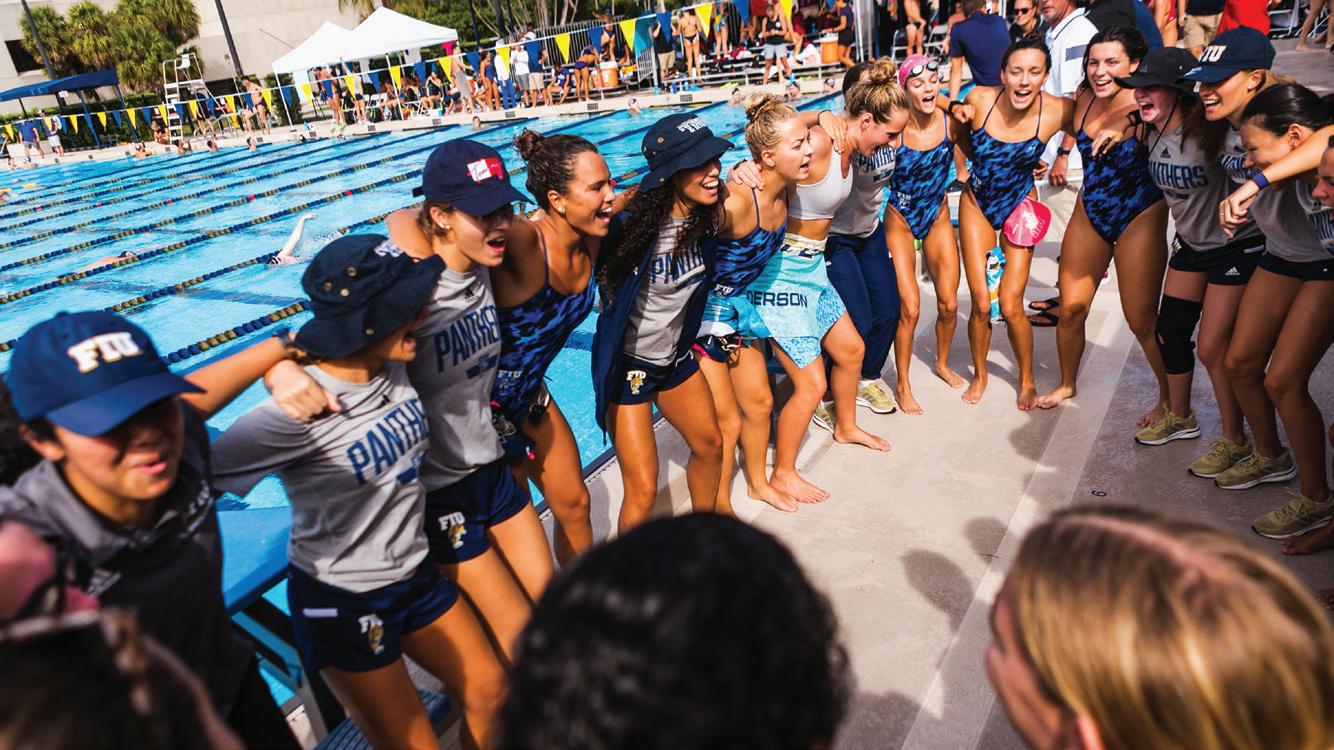
Now. Panther nation is aiming higher.
In November 2021, the university hired Scott Carr as its new athletic director. Formerly with Auburn and the University of Central Florida, where he built one of the country’s standout programs, he comes with 25 years of
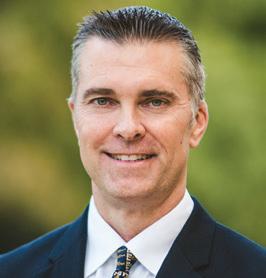
collegiate athletics experience in marketing, branding and communications.
At FIU, Carr immediately noticed the power and potential around him. He told reporters that in the world of college athletics, he aims to make FIU a monster.
“FIU is a young university with a large student body and large alumni base right here in Miami-Dade County,” Carr said. “There’s power in youthful energy and there’s power in those numbers. That’s something that excites me."
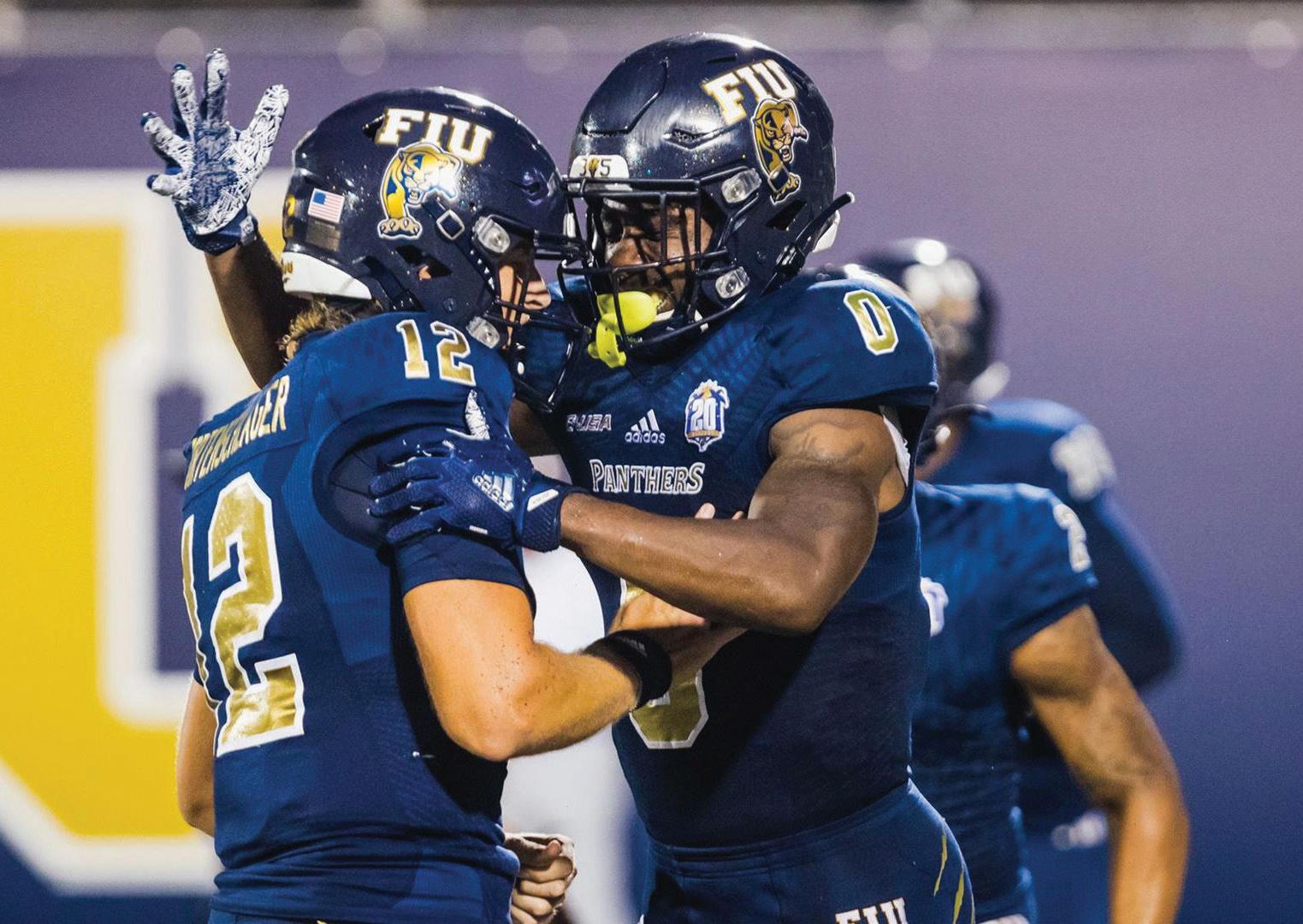
His enthusiasm is coupled with the hiring of a new head football coach: Mike MacIntyre,
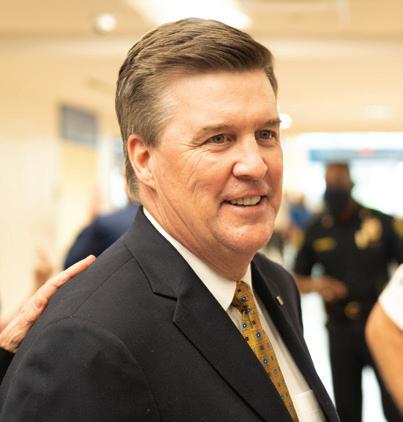
“I KNEW A LOT ABOUT FIU, BUT I DIDN’T REALIZE ALL THE BUILDINGS, THE CRANES, THE 58,000 STUDENTS. I ALWAYS KNEW FIU WAS A GOLD MINE, BUT NOW I KNOW IT’S AN EVEN BETTER ONE THAN I THOUGHT.”
— MIKE MACINTYRE NEW HEAD FOOTBALL COACH
The women of swimming and diving get it done in the pool and out, perennially winning the Conference USA championship while earning the highest GPA across all sports (a 3.61 in the fall of 2021).
Scott Carr
32 | SPRING 2022
The men's soccer team exults in its capture of the Conference USA regular season championship after knocking off No. 1-ranked Marshall at home.
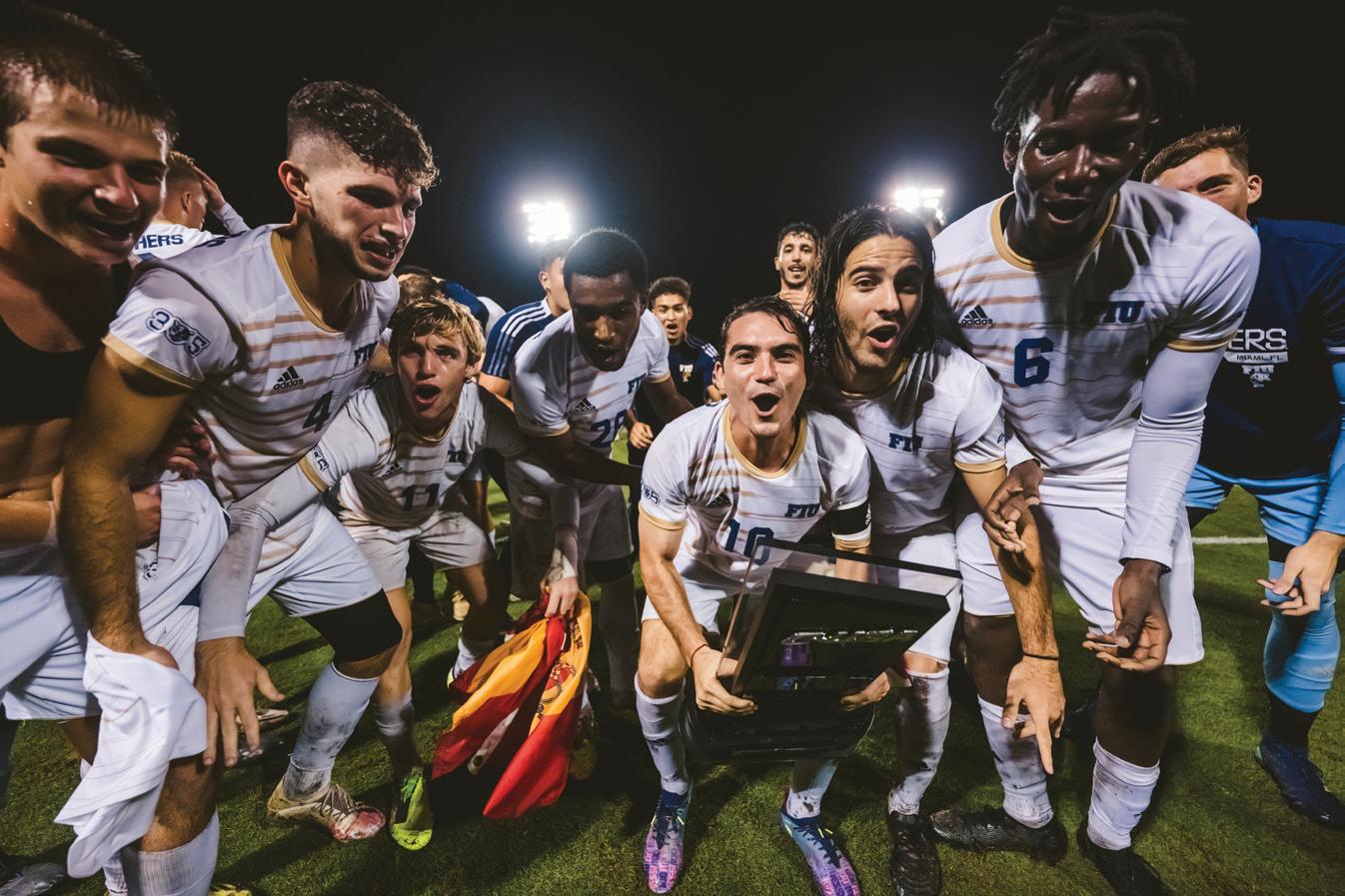
a Miami native with a history of turning programs into national contenders.
“I’ve had other opportunities at other places, but I’ve always thought this area was a hotbed,” said MacIntyre, who won AP National Coach of the Year in 2016.
“I knew a lot about FIU, but I didn’t realize all the buildings, the cranes, the 58,000 students. I always knew FIU was a gold mine, but now I know it’s an even better one than I thought."
After meeting with MacIntyre, football players took to Twitter to share their excitement for the year ahead.
“The first team meeting with [Coach MacIntyre] went great,” freshman recreation and sport management major Keegan Davis wrote. “He has a plan for FIU football. I’m
excited for the future and the next chapter. Can’t wait to get to work.”
Carr and MacIntyre look to build on the accomplishments of a football program that has played in three bowl games over the last five seasons, a women's tennis team that is on its way to a ninth consecutive winning season, a women’s swimming and diving team that, in true dynastic style, has won seven consecutive Conference USA championships and a men’s basketball team on its way to a third winning season in four years.
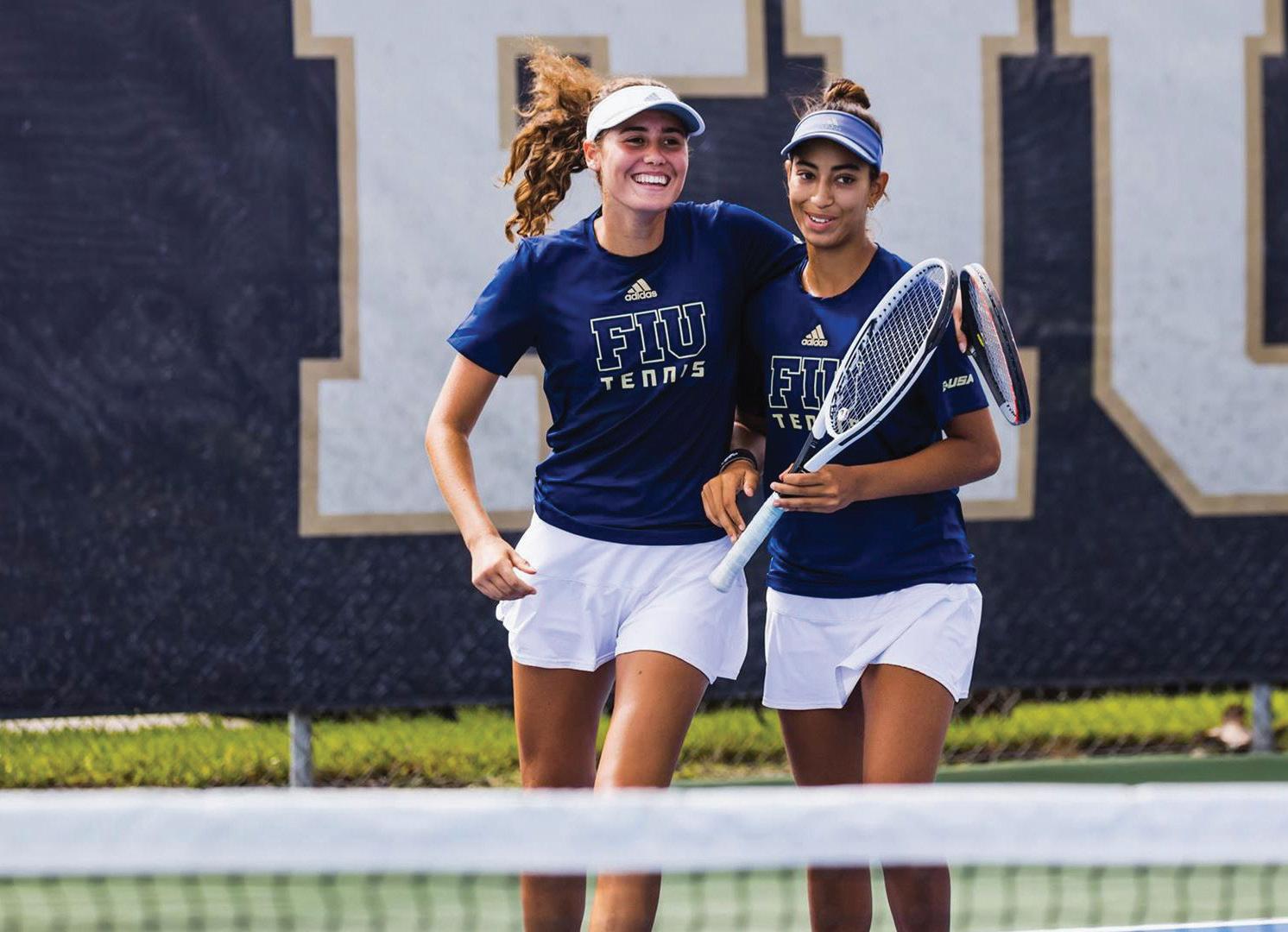
Panthers have also stacked victories in the classroom. In 2019, the athletic department earned the Conference USA Institutional Excellence Award for posting the highest GPA in the league, and student-athletes posted an overall GPA of 3.0 or better in 12 straight semesters.
The rush of energy around FIU athletics is undeniable.
“I’m very excited for what’s to come, and not just football. All of the sports,” said David Hondal '19 MS '21, a secondgeneration fan who, like his dad, has stayed true to his alma mater through the ups and downs. For him, the Panthers now have a winning combination across all teams. Says he: “The future is bright.”
Added to the excitement around new staff are considerations of enhancements and expansion of athletics facilities. Interim FIU President Kenneth A. Jessell recognizes the value of such investment, particularly as South Florida is a recruiting hotbed for multiple sports. “The pride is there,“ Jessell says. “Now let's see just how far we can go.”•
The freshman tennis tandem of Yasmine Kabbaj, right, and Ines Bekrar started the 2021 season red-hot with back-to-back victories while, overall, the team looks to be on its way to a ninth consecutive winning season.
FIUSPORTS.COM | 33
HOME SWEET HOME: In the fall FIU will open its latest residence hall at the Modesto A. Maidique Campus, a 13-story, 600-bed high rise with views of the Miami skyline on one side and the football stadium and Florida Everglades on the other. The new dormitory joins six others, pictured, to form a dynamic living-learning community with access to every amenity that campus and greater South Florida have to offer.

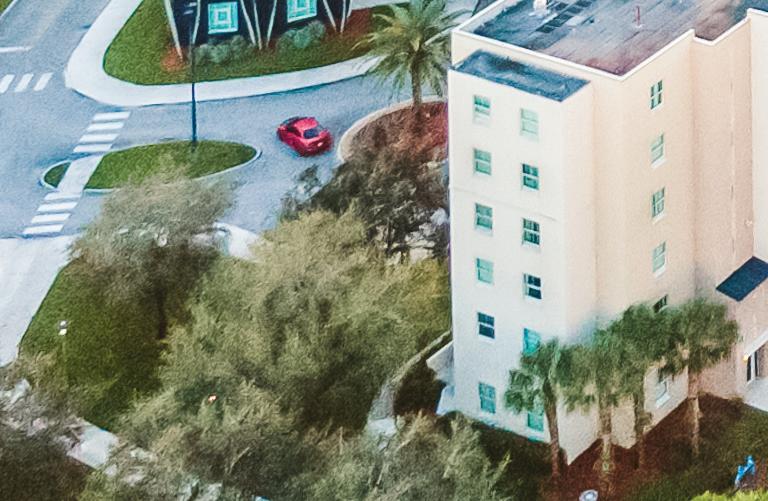
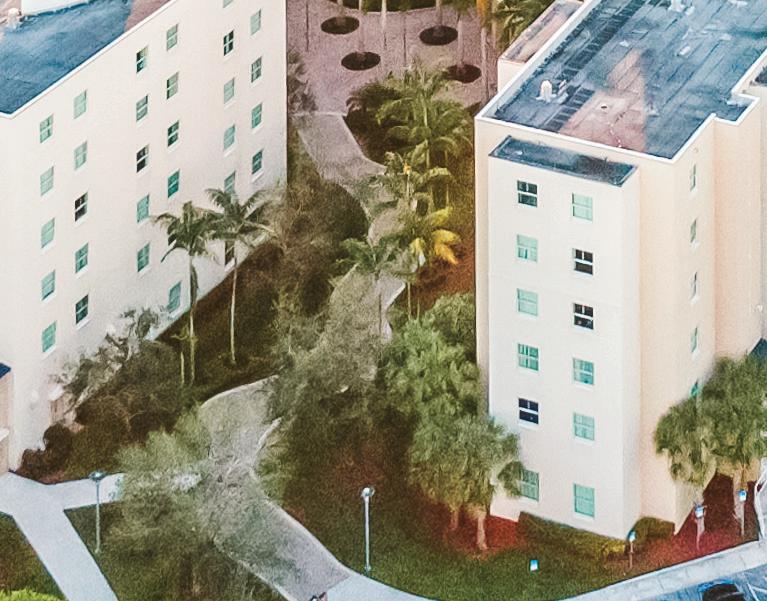
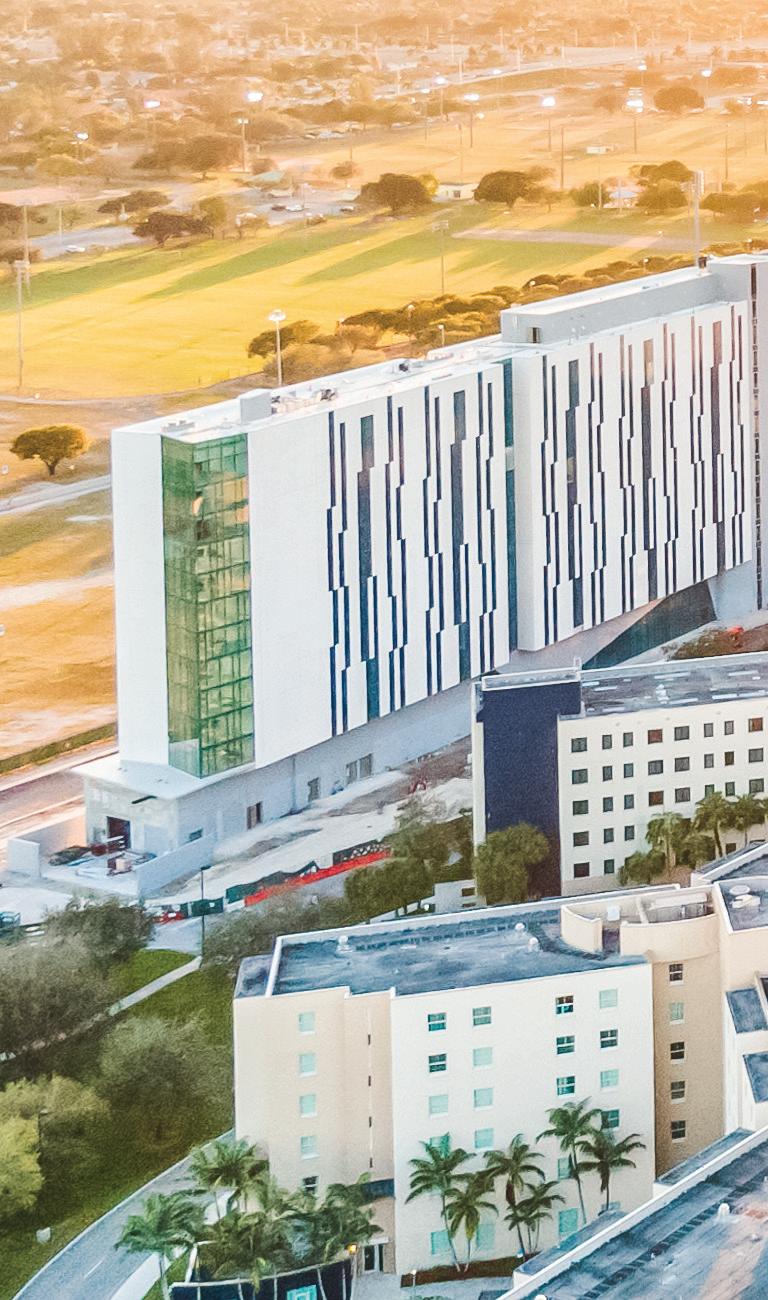
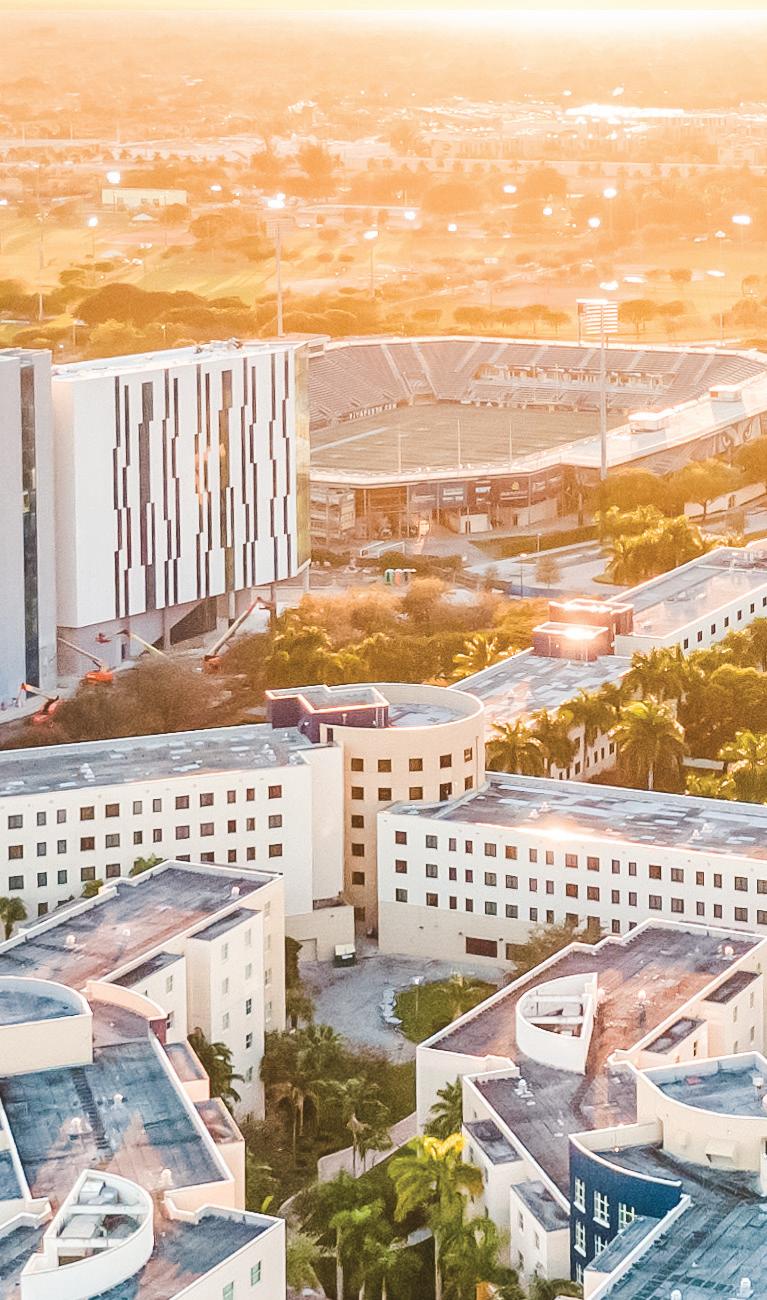


34 | SPRING 2022
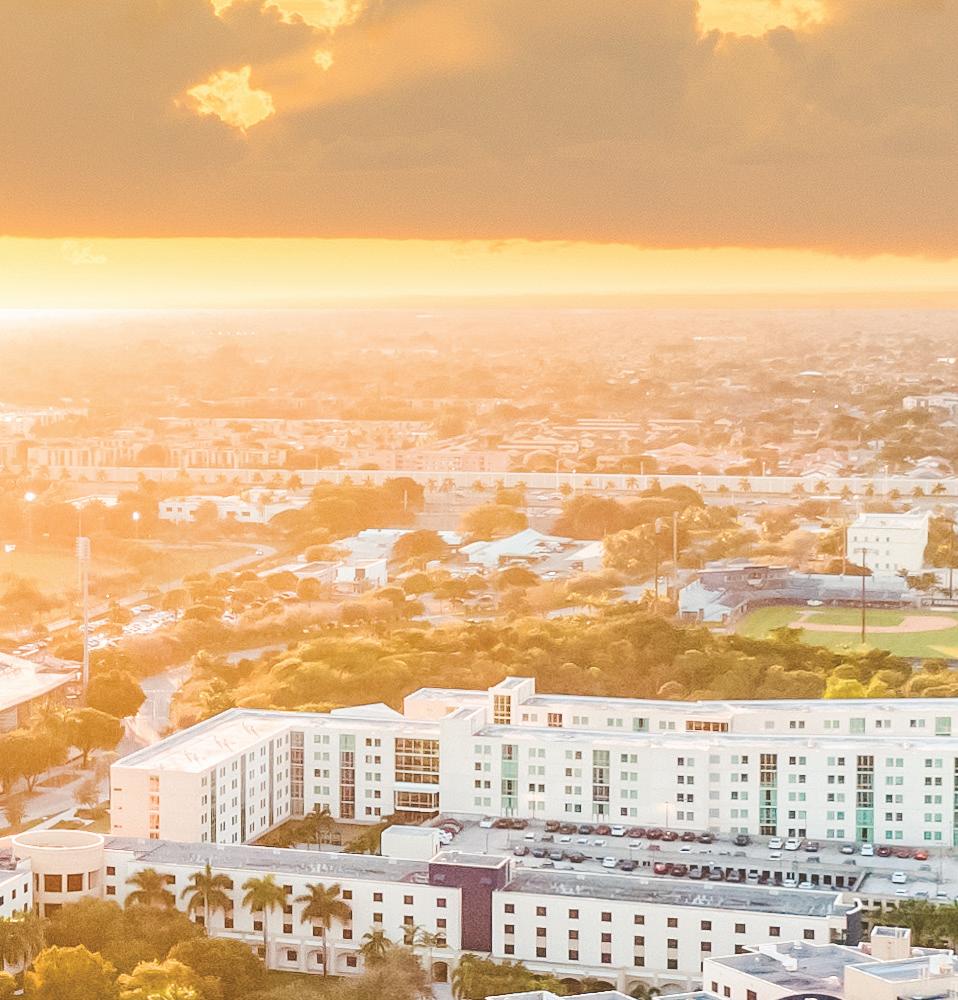
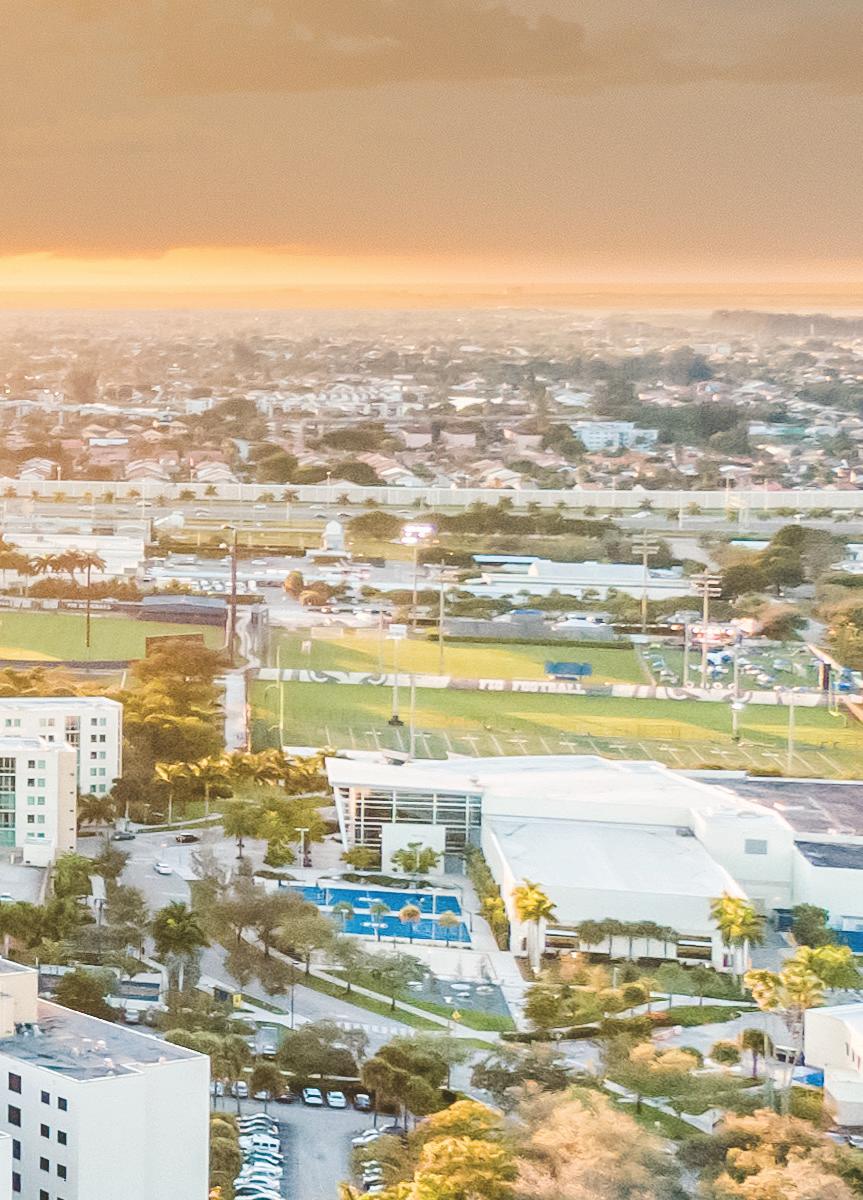
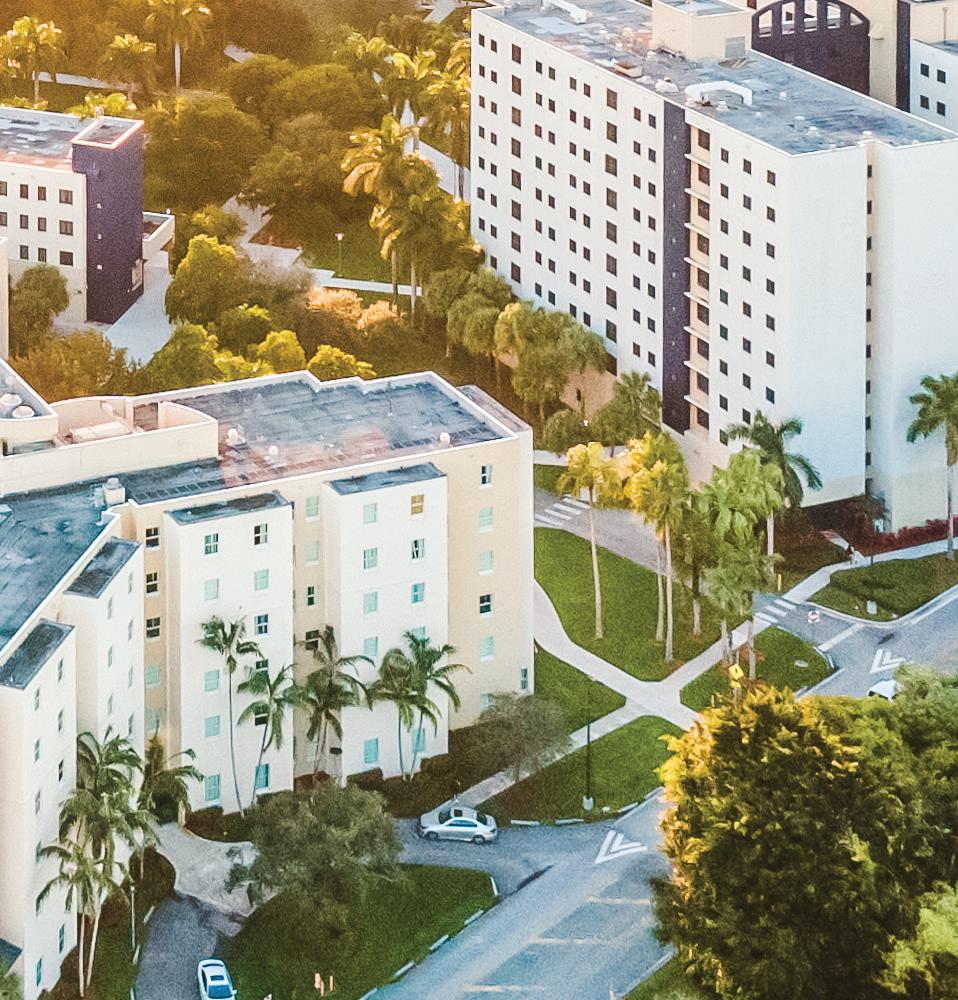
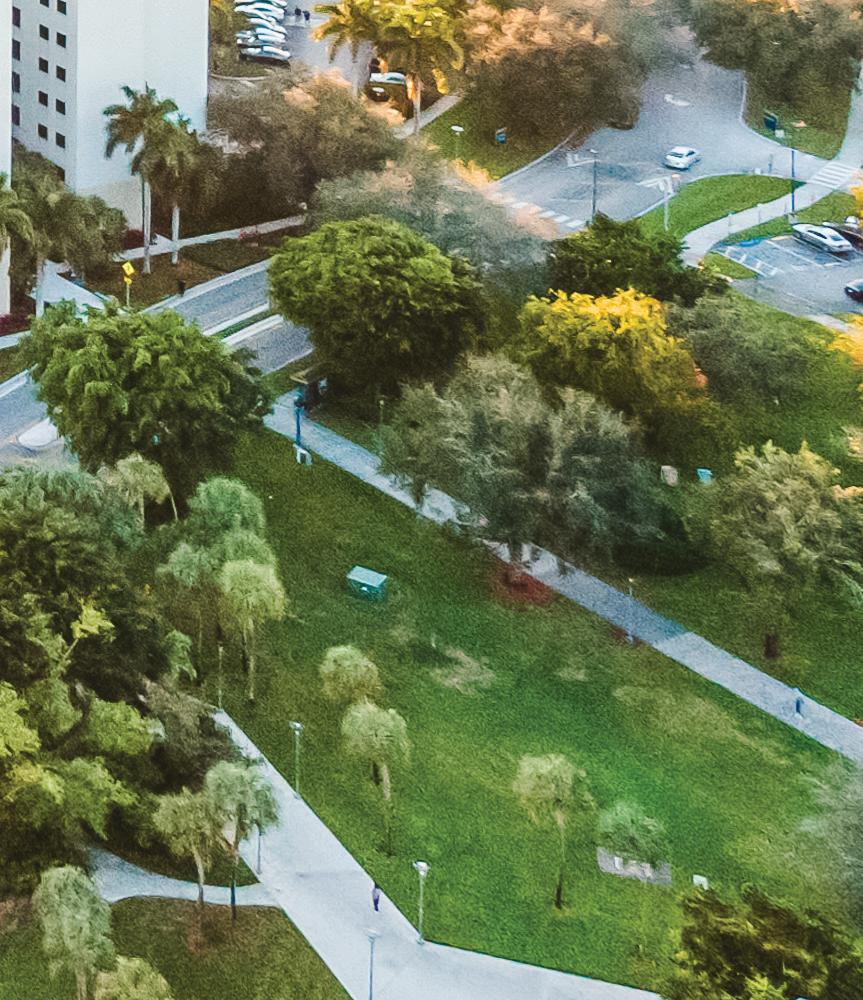

Modesto A. Maidique Campus, PC519 Miami, FL 33199-0001 Electronic
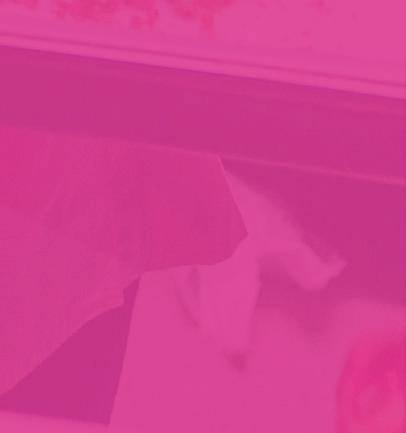

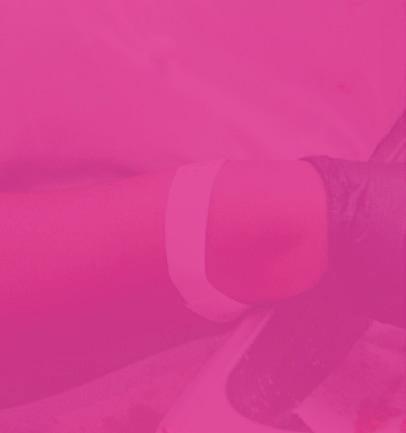
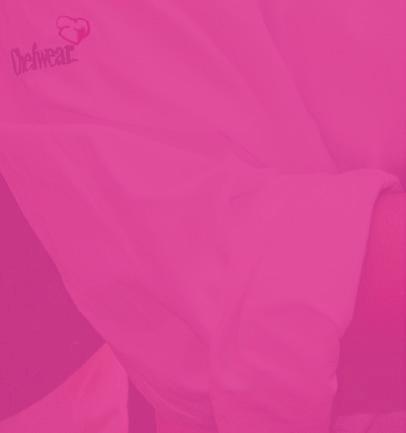
HANDS-ON LEARNING AND A BRUSH WITH GREATNESS

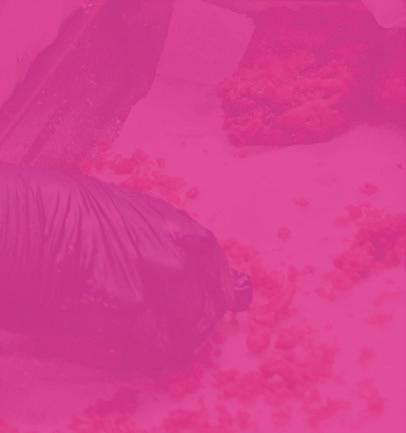
The internationally famous Food Network & Cooking Channel South Beach Wine & Food Festival comes to life on the management skills of students in the Chaplin School of Hospitality and Tourism Management, which offers degrees to aspiring leaders of the restaurant, hotel and related industries. While they put their classroom instruction to real-world use during months of logistical preparations — the festival annually sees thousands of visitors attend upwards of 90 star-studded dinners, tastings and workshops over four days — other students from throughout the university volunteer as servers and, as seen here with Iron Chef Masaharu Morimoto and a pastry professional, assistants to the dozens of celebrity chefs on hand to dazzle the crowds. Since its inception 21 years ago, the fundraiser has supported scholarships and programming with proceeds of more than $30 million.
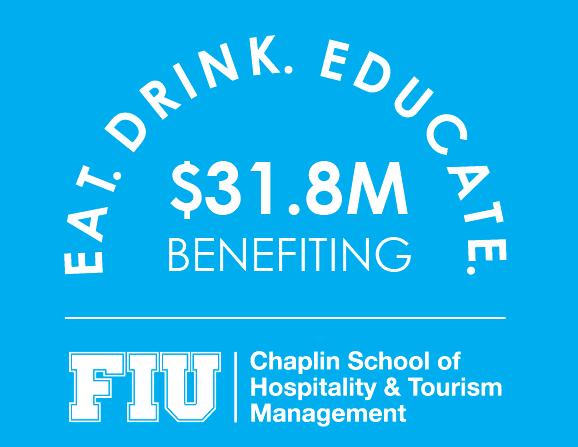
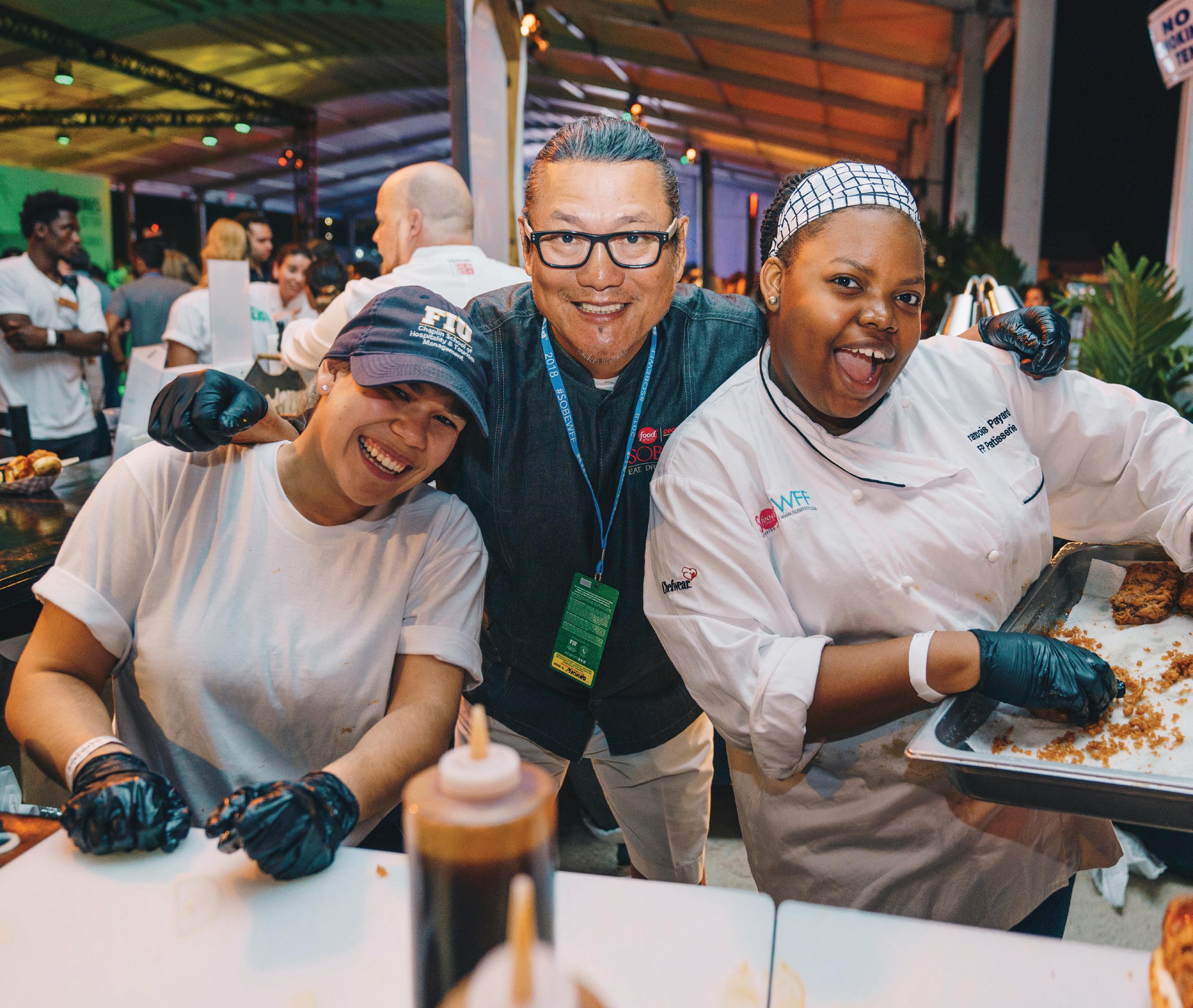 Division of Strategic Communications, Government and External Affairs
Division of Strategic Communications, Government and External Affairs
NONPROFIT ORG US POSTAGE PAID Miami FL PERMIT NO 4040
Service Requested









































































 — JOHN F. STACK JR., FOUNDING DEAN
— JOHN F. STACK JR., FOUNDING DEAN


































































































































































 Division of Strategic Communications, Government and External Affairs
Division of Strategic Communications, Government and External Affairs